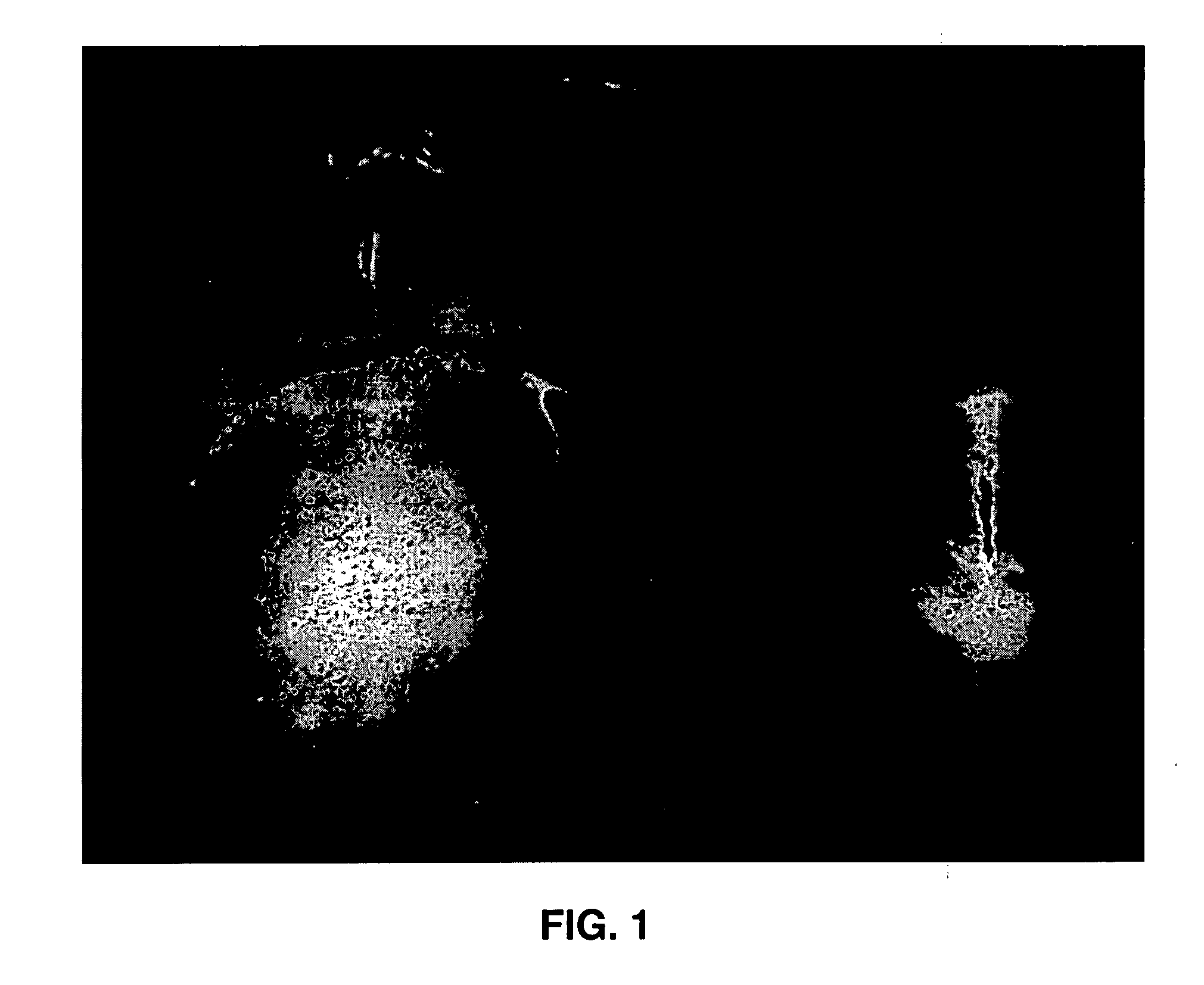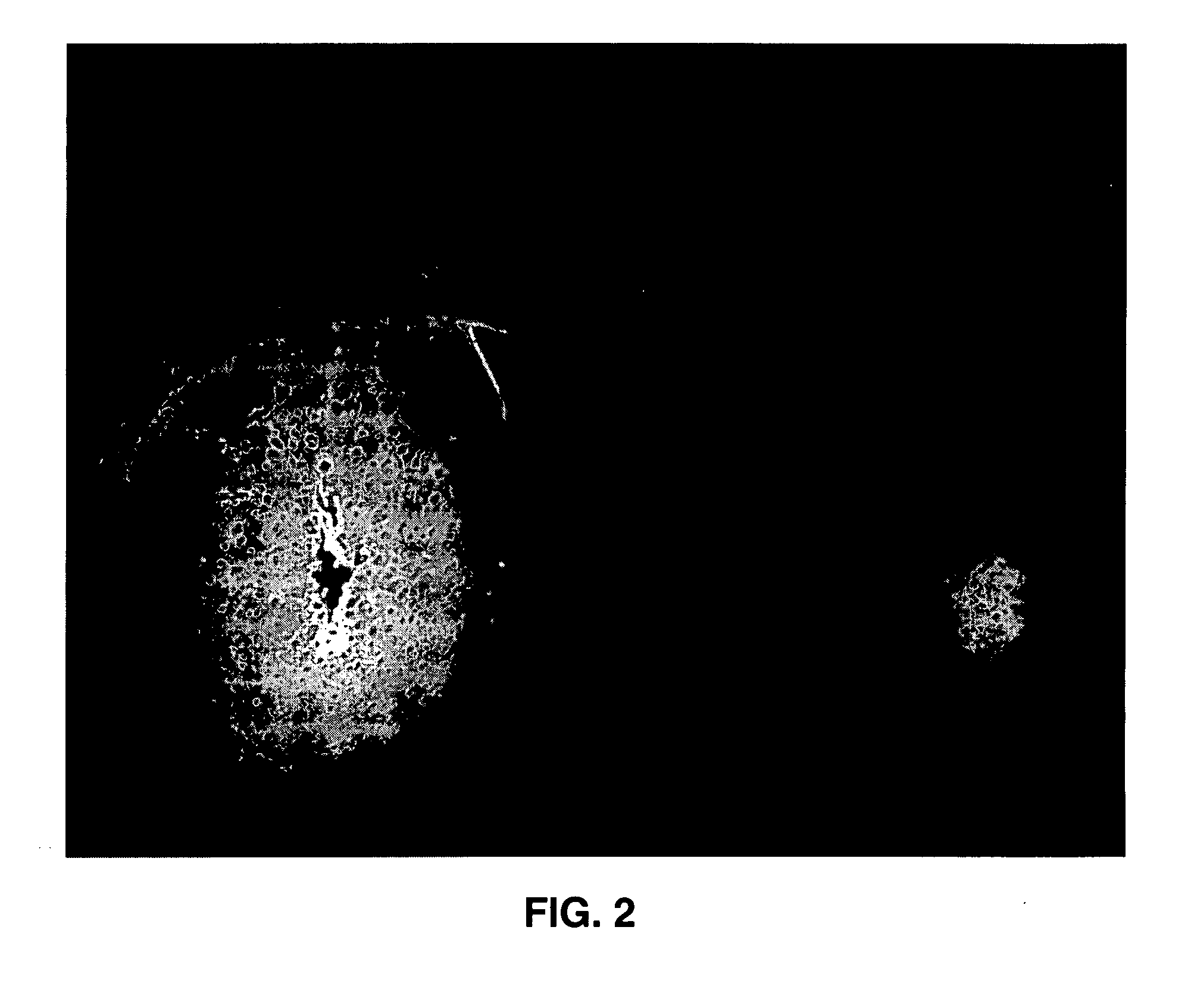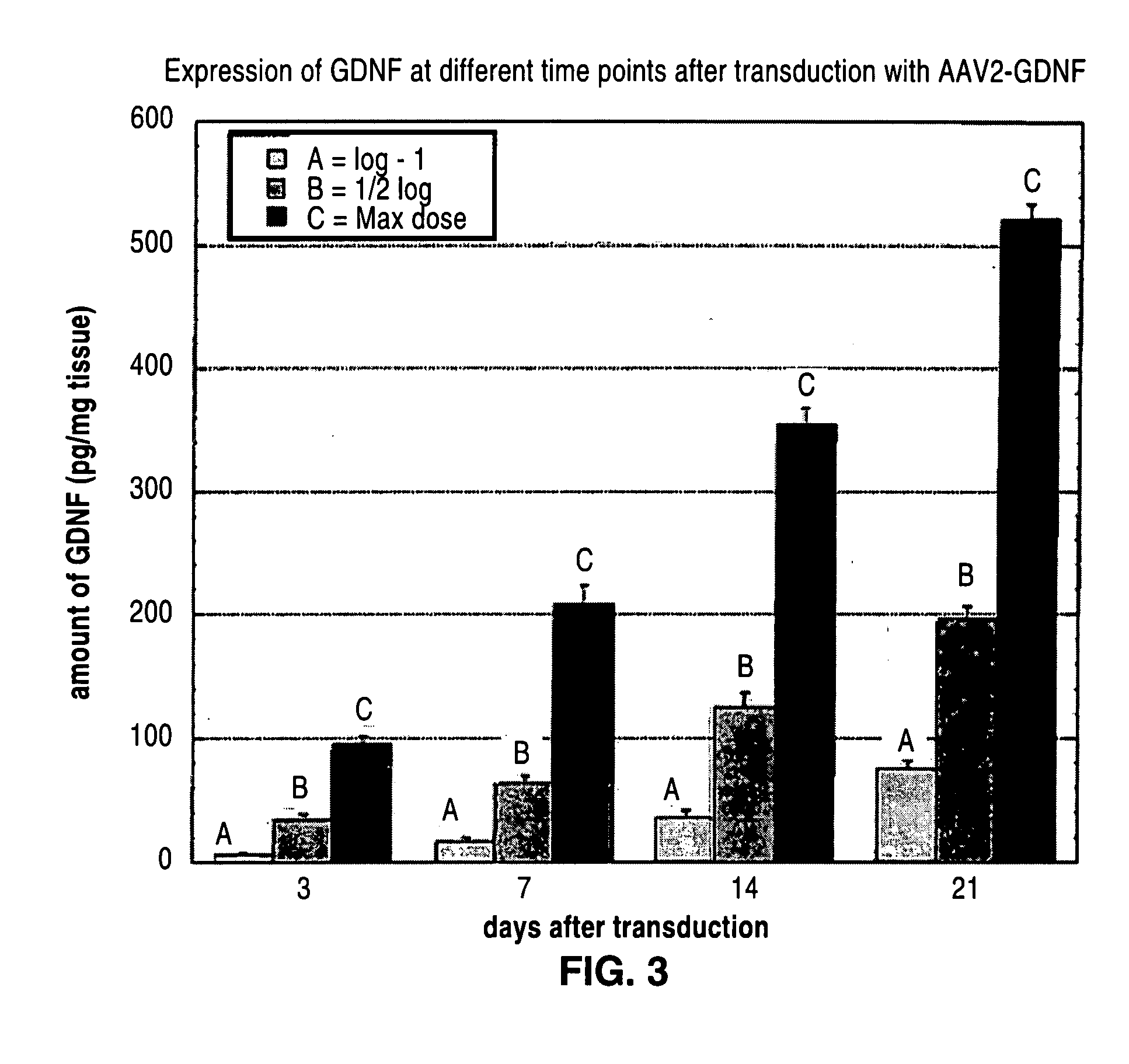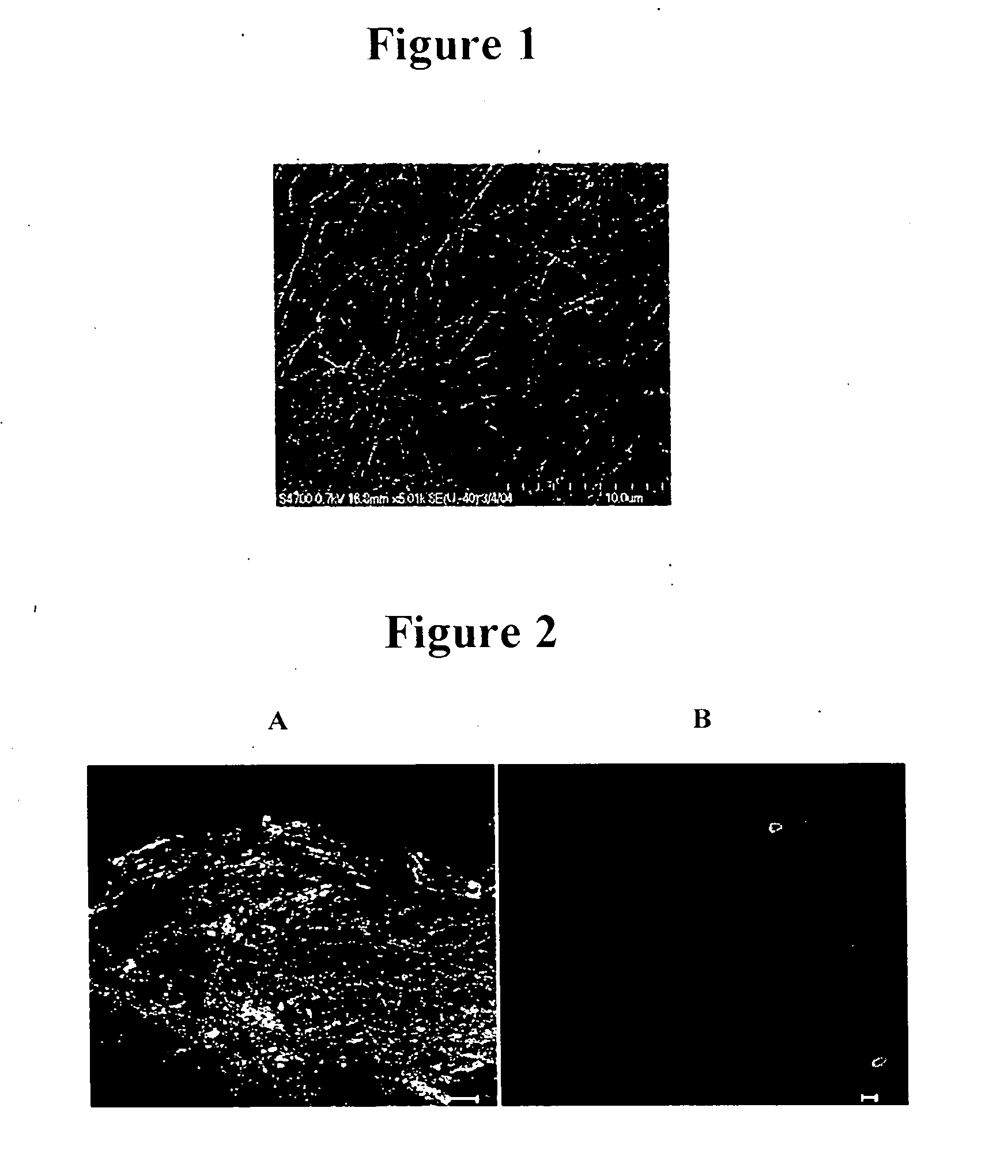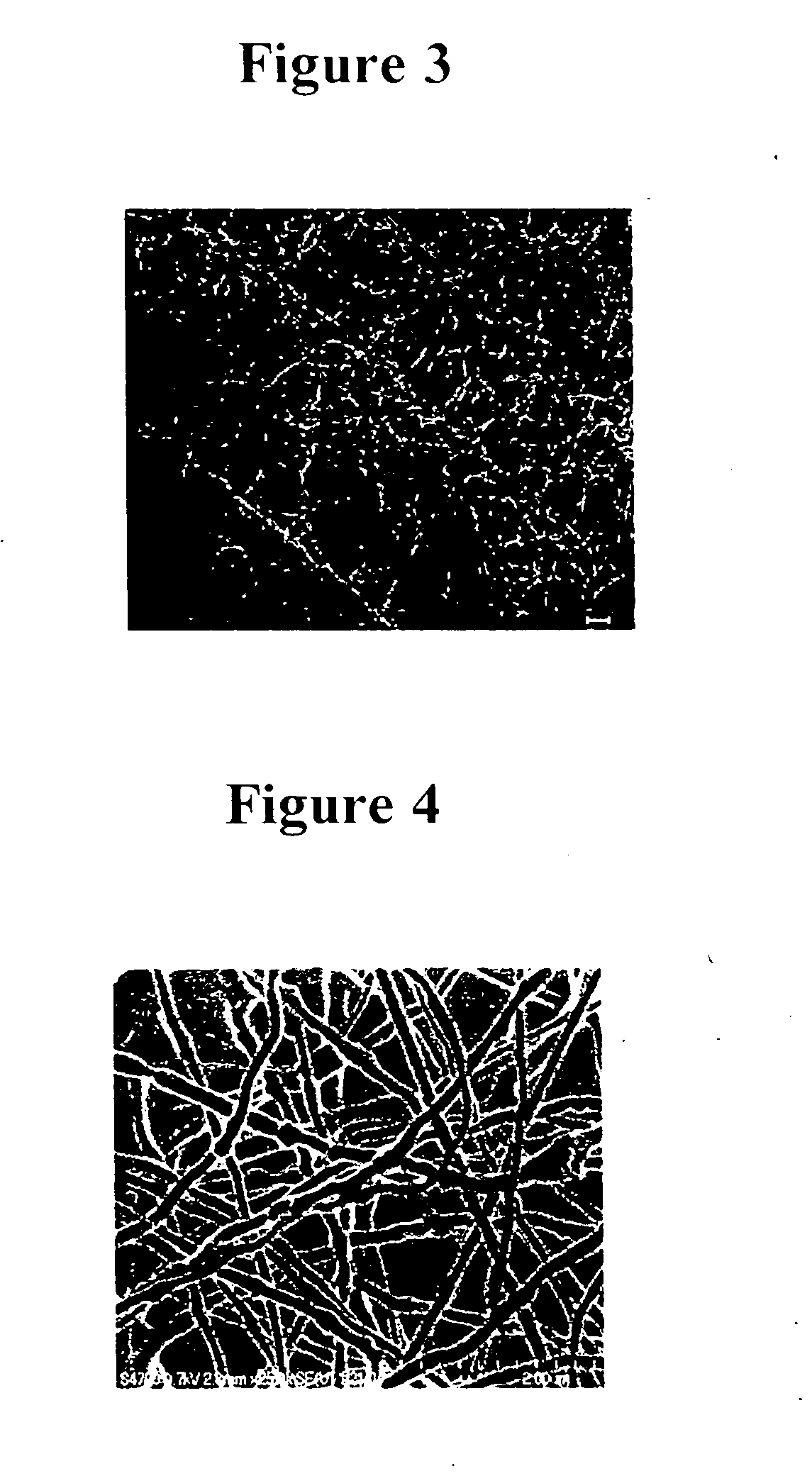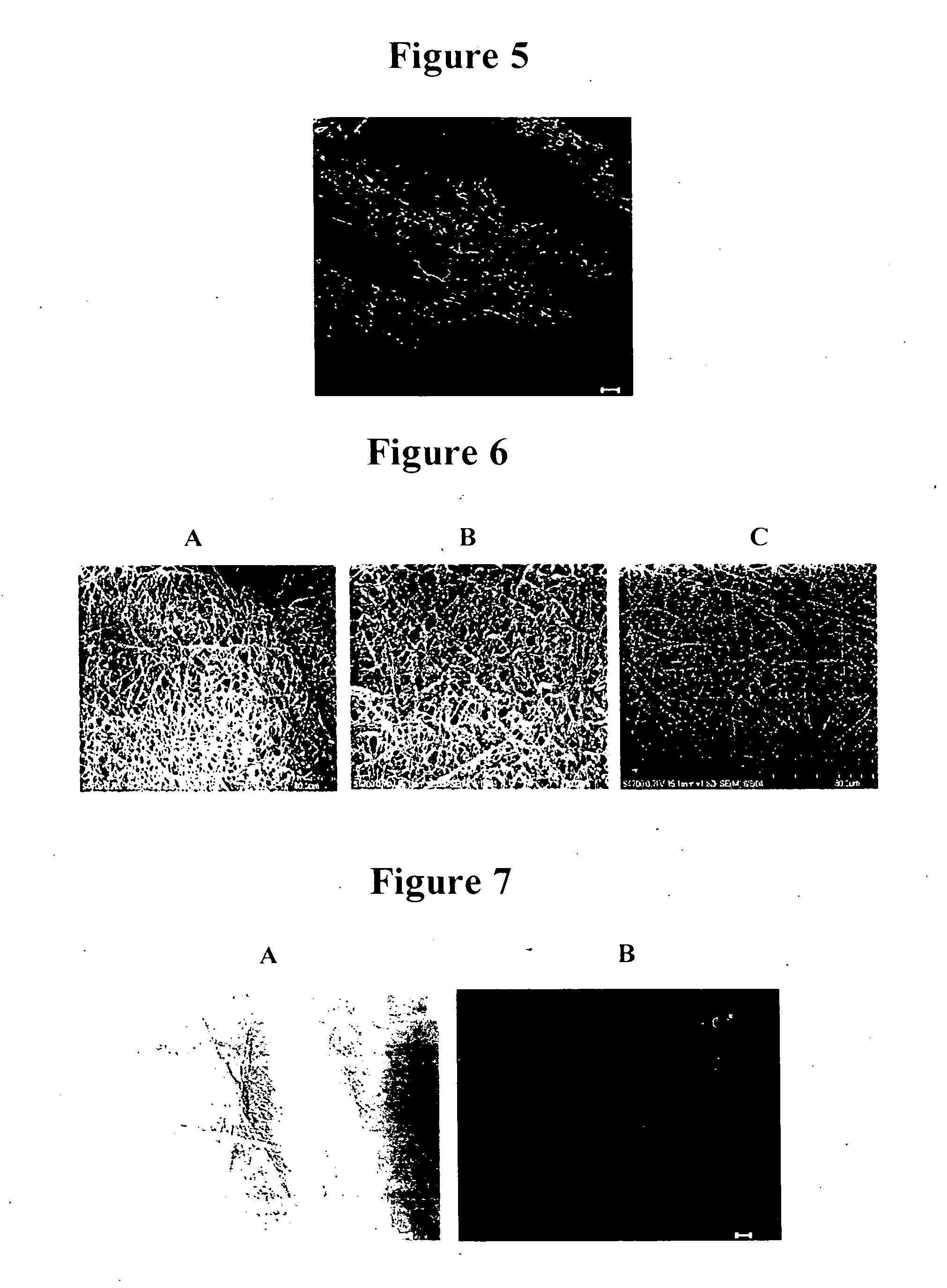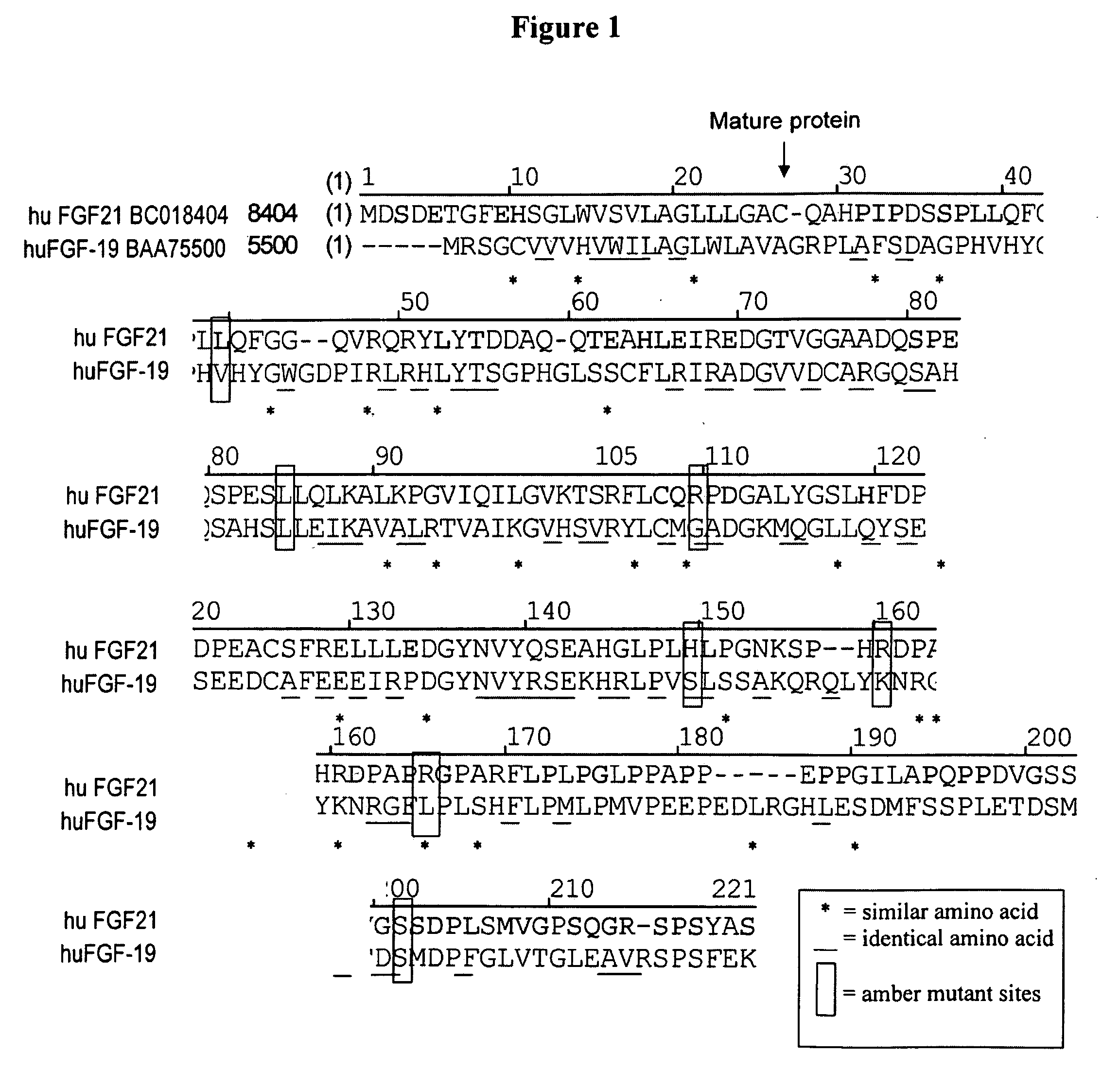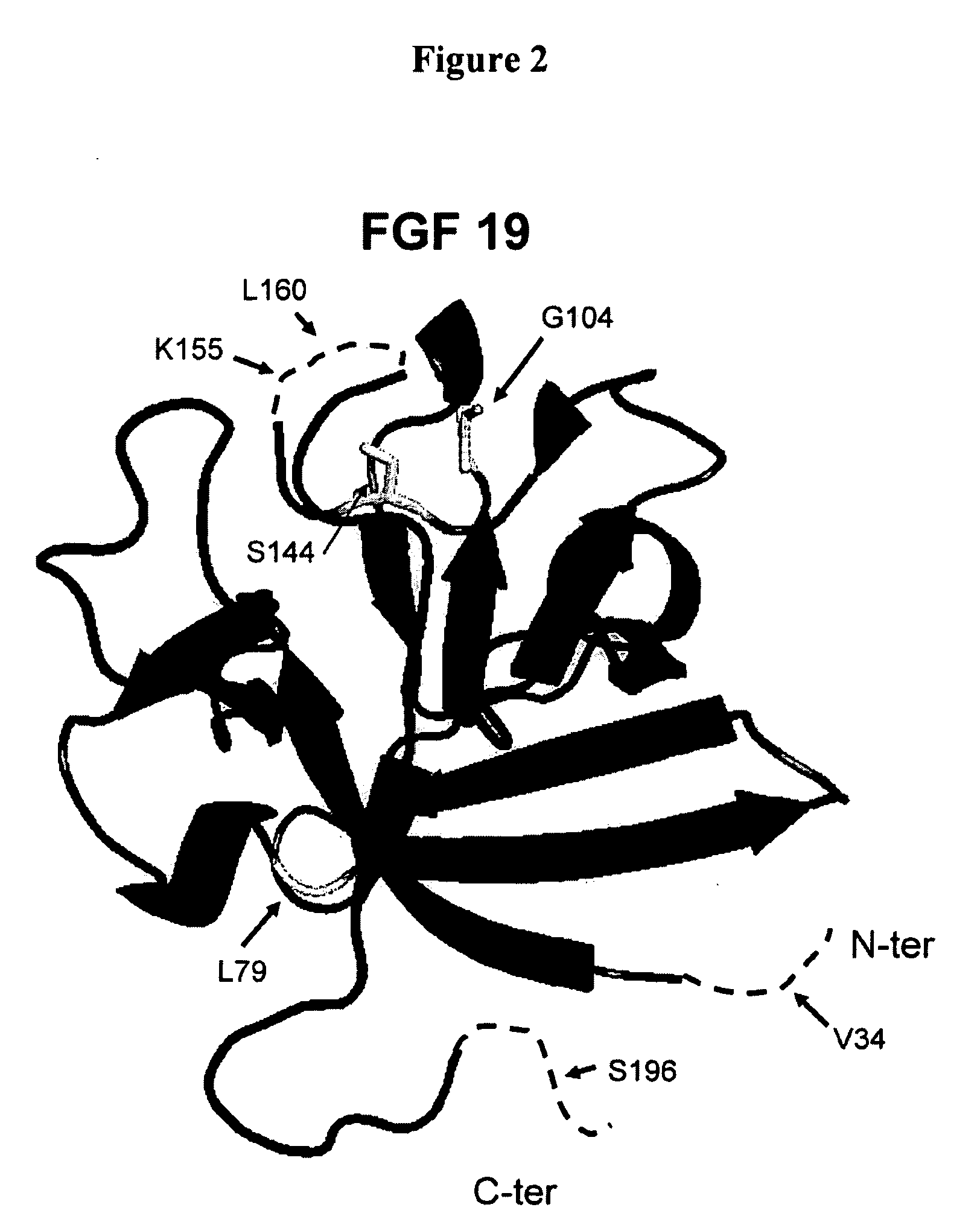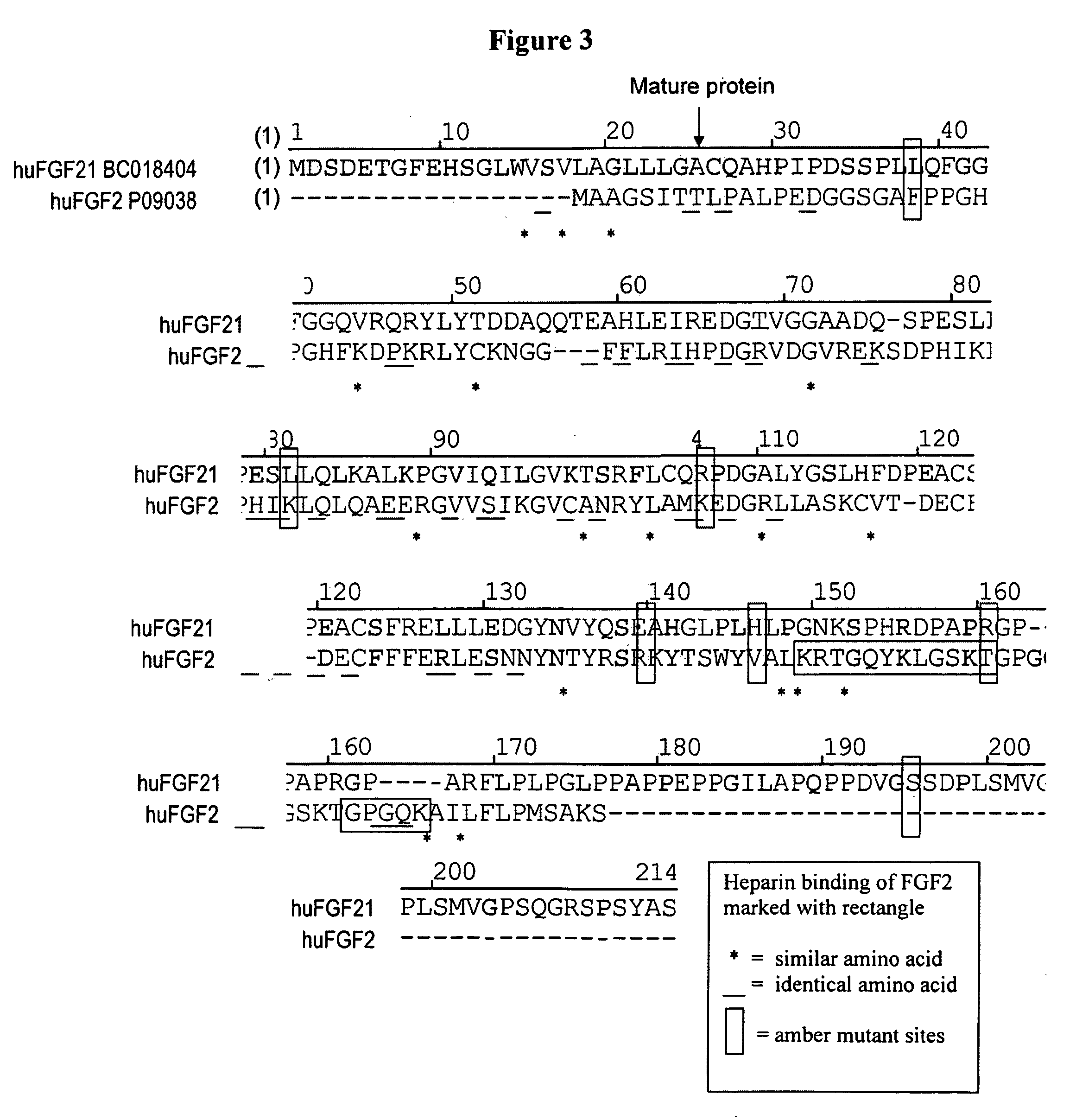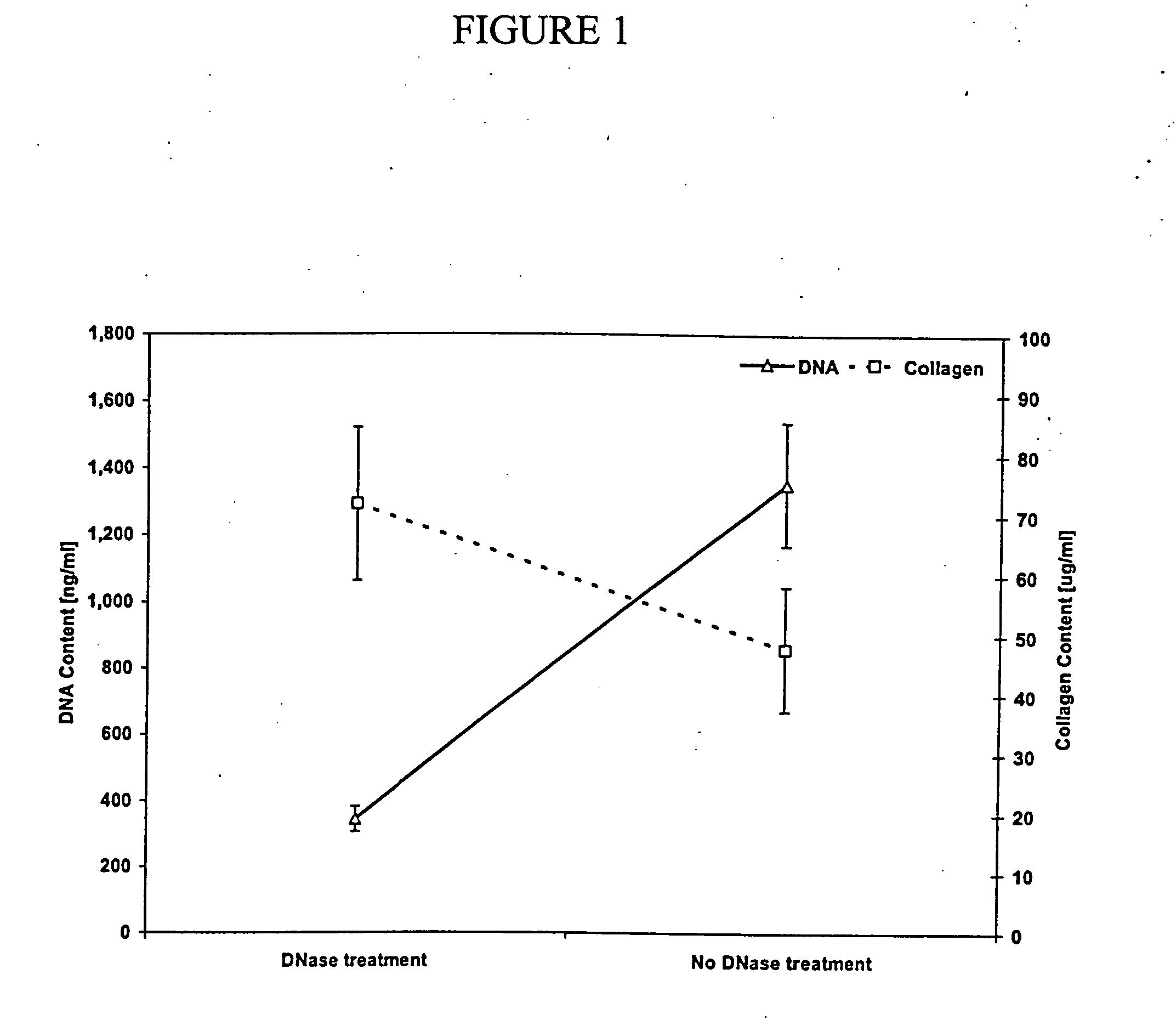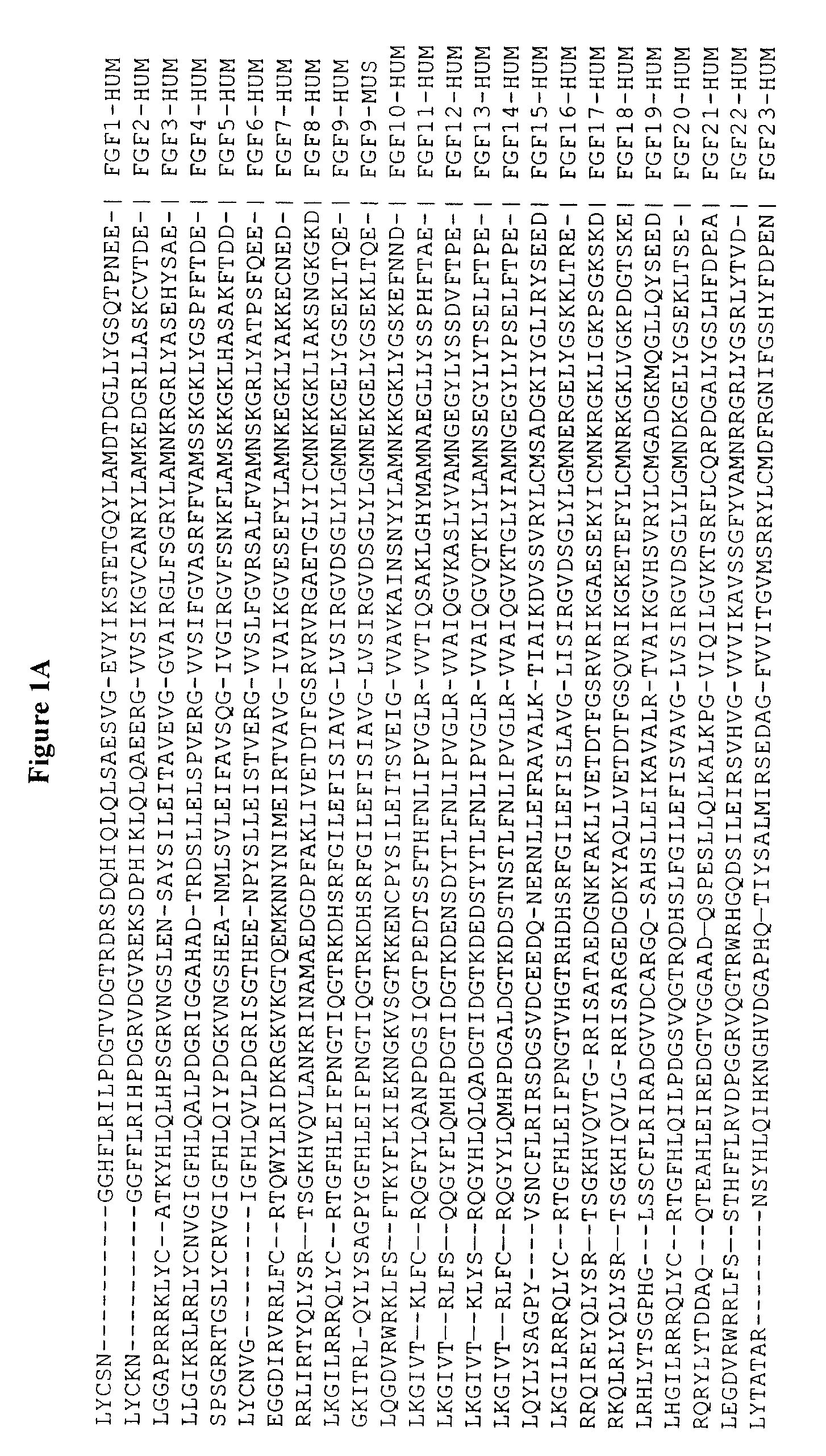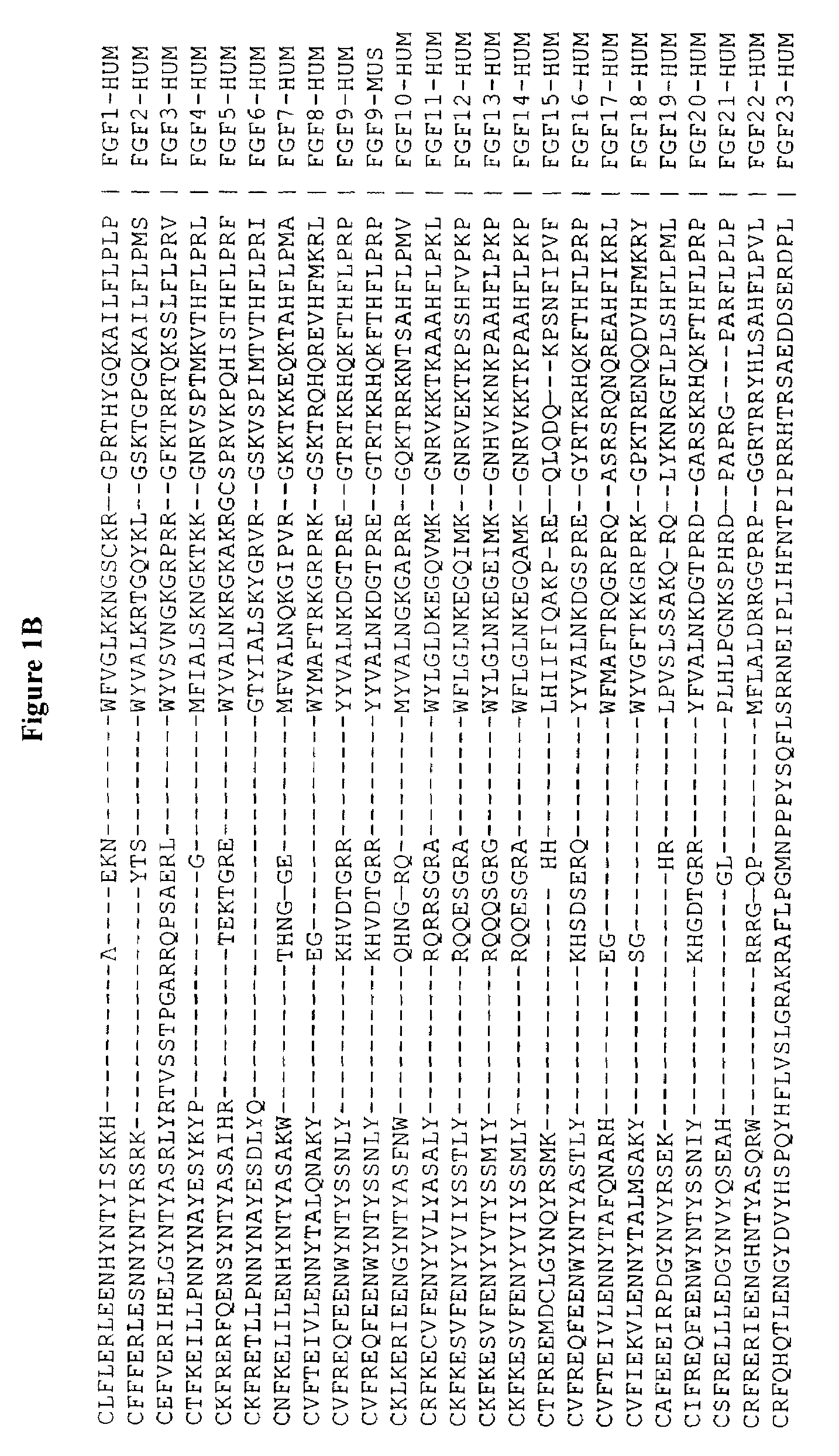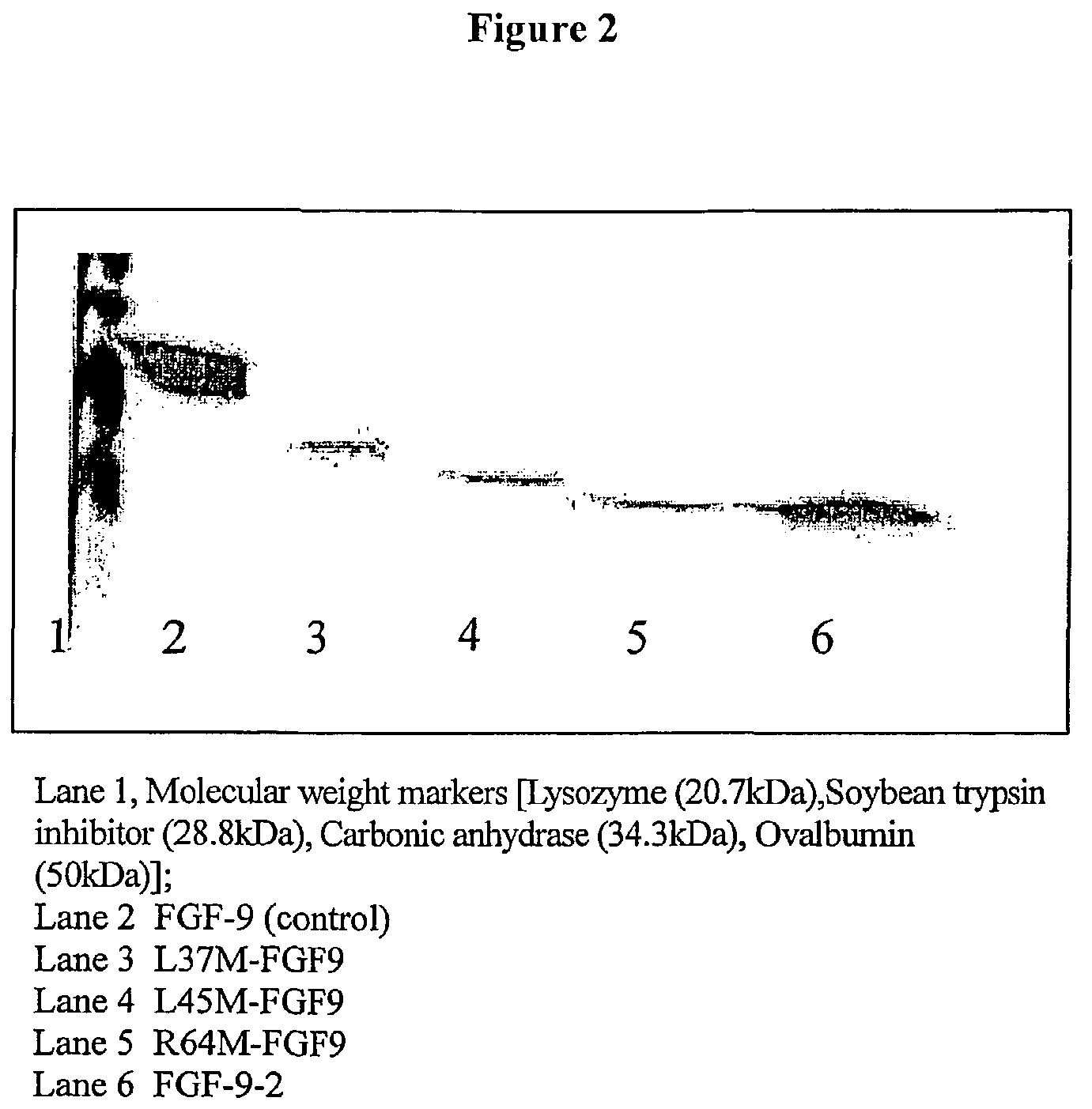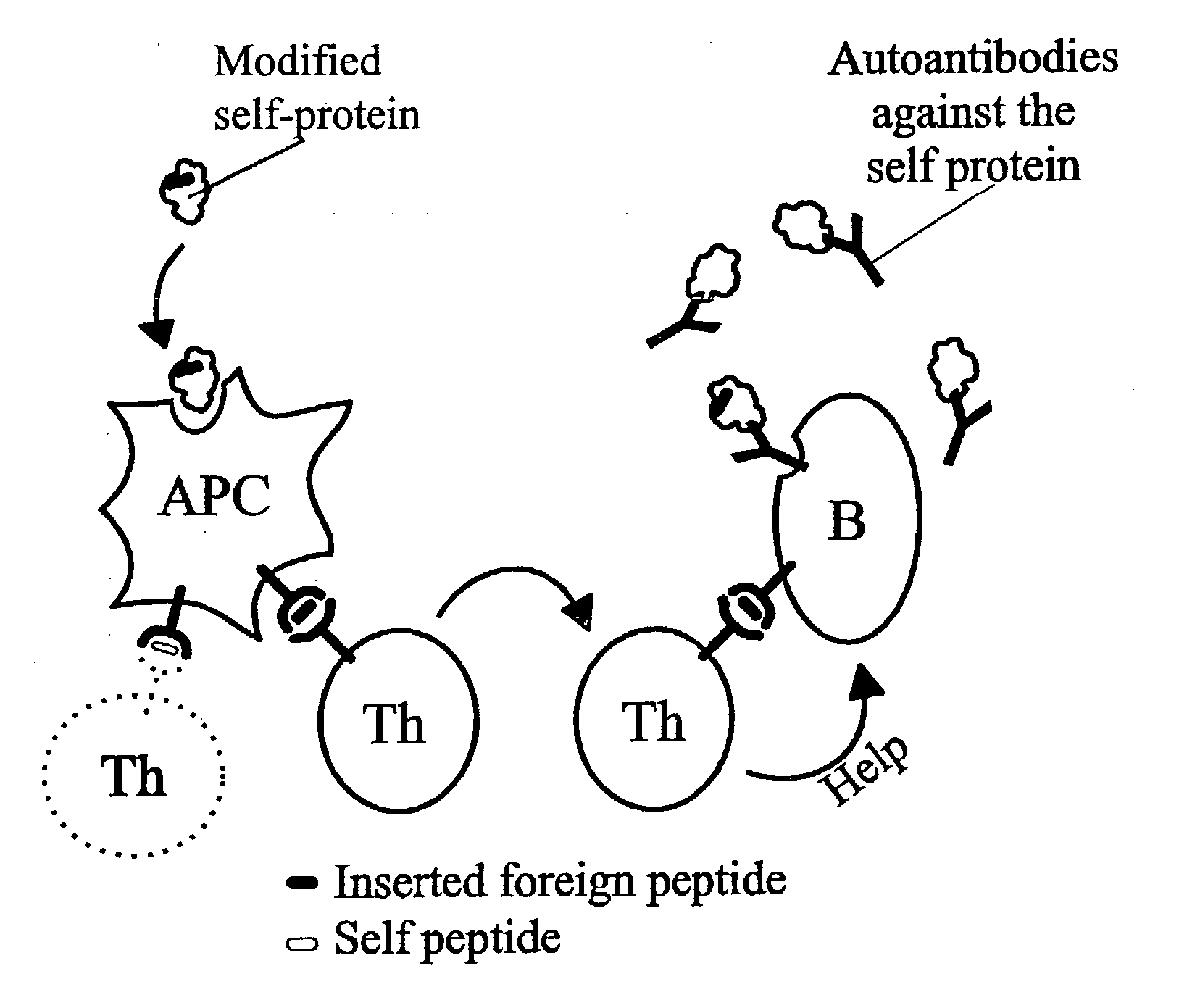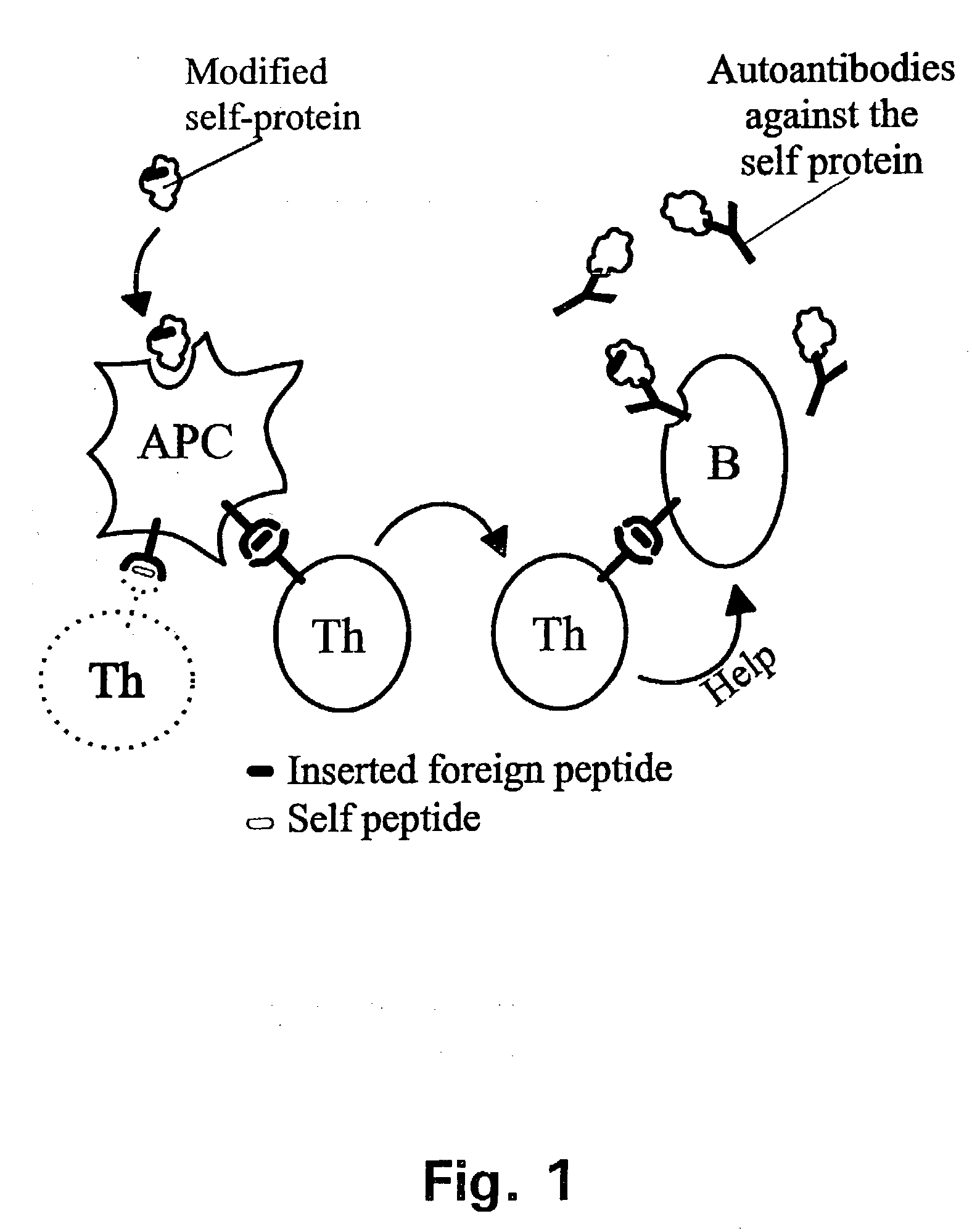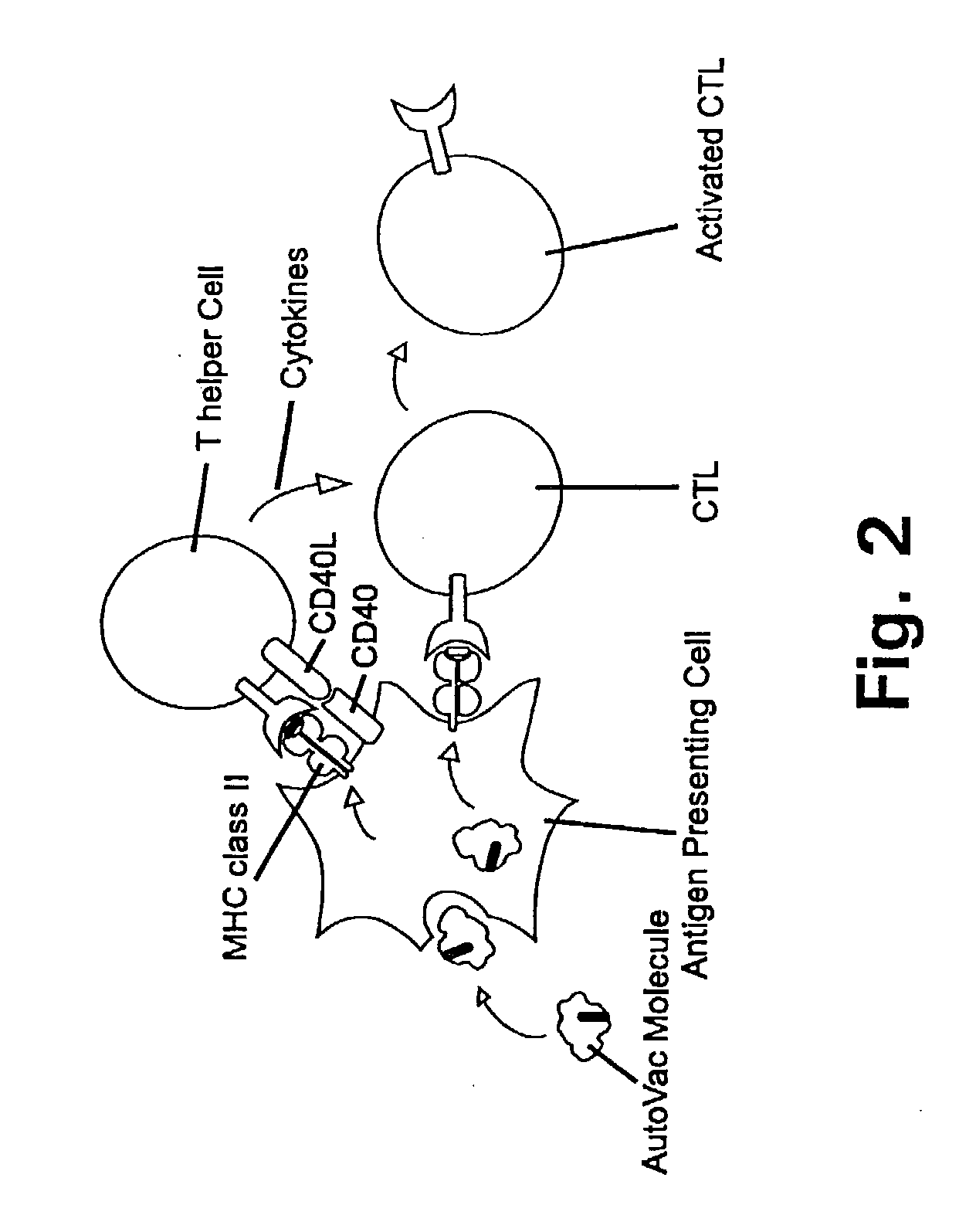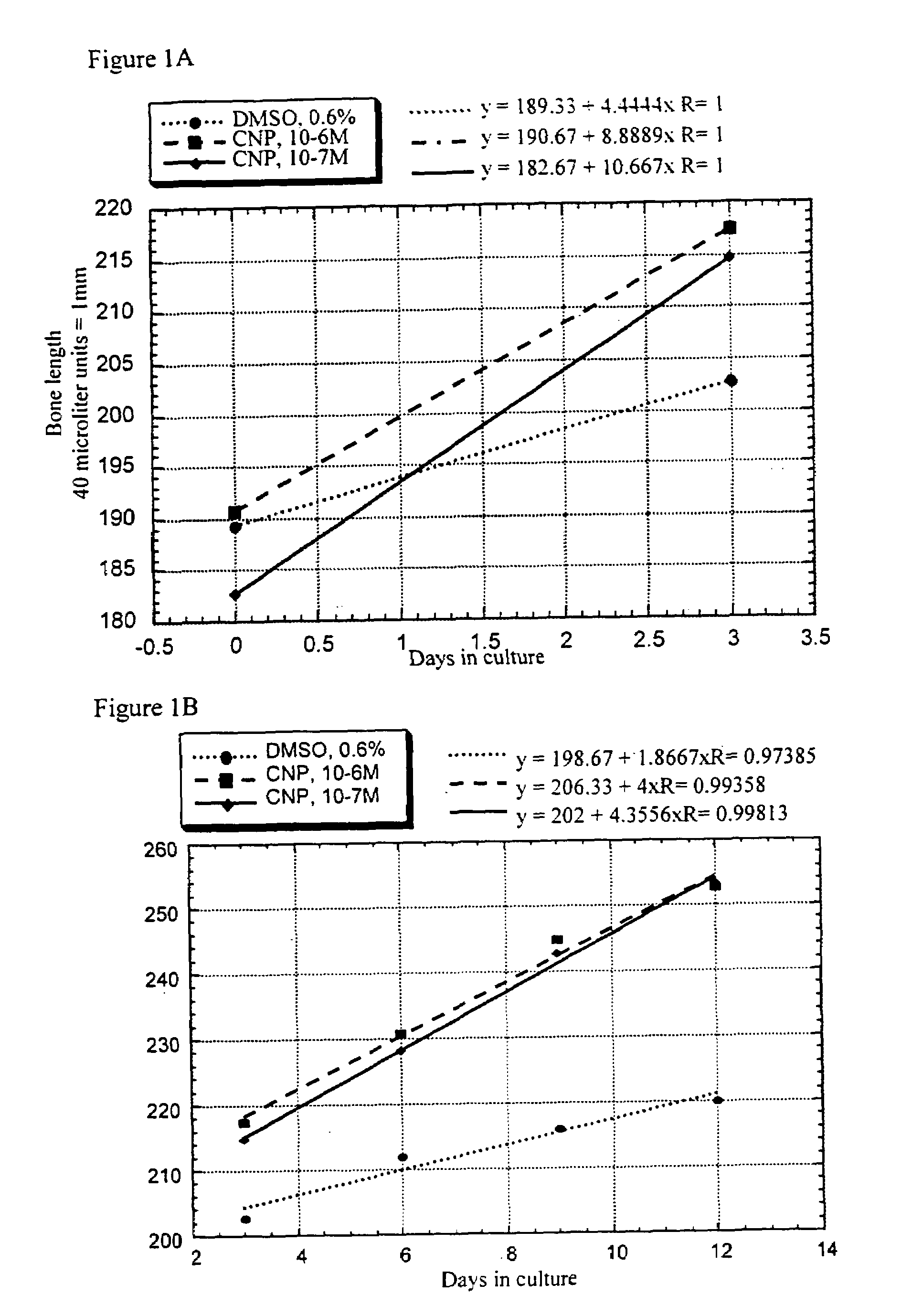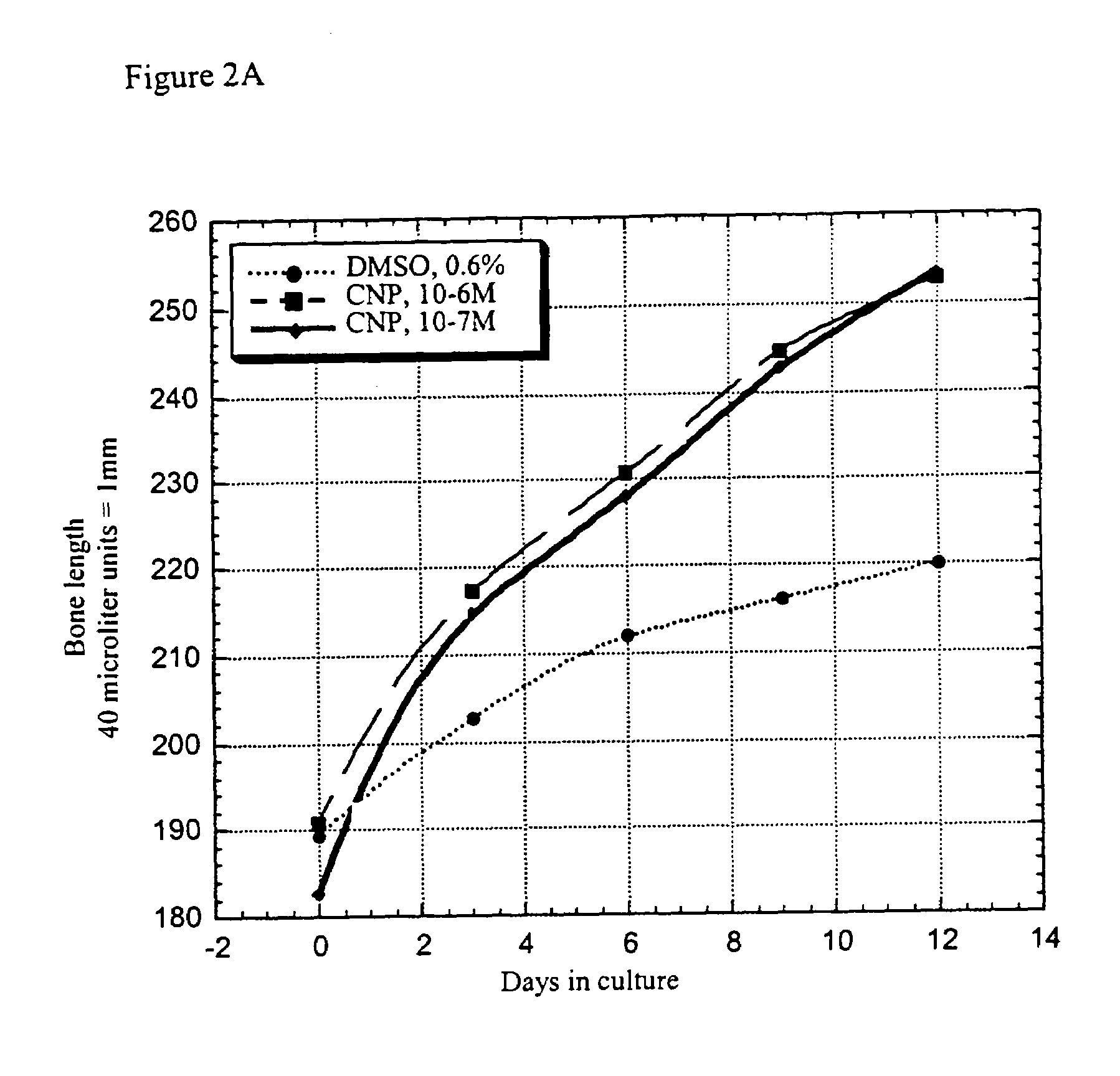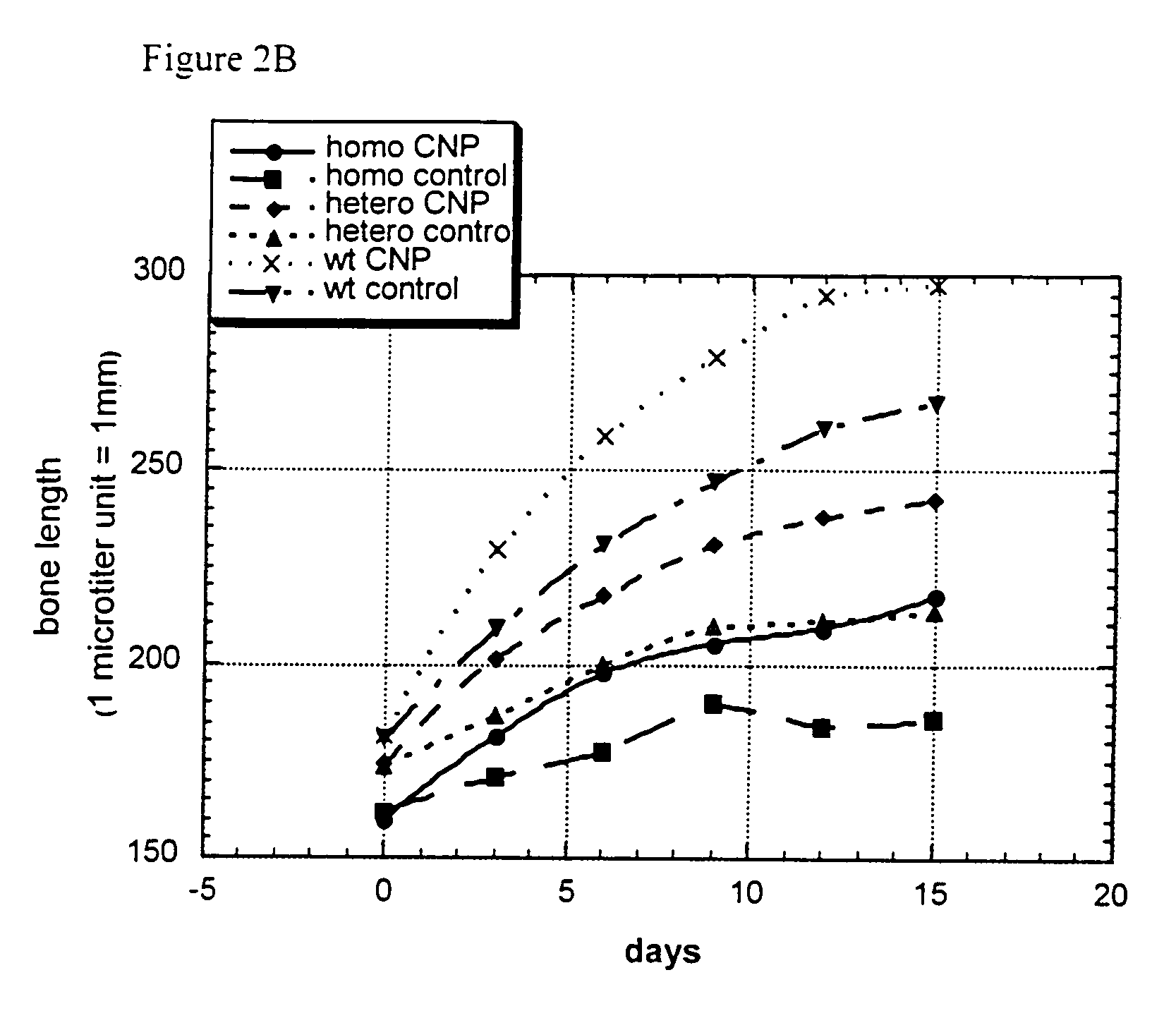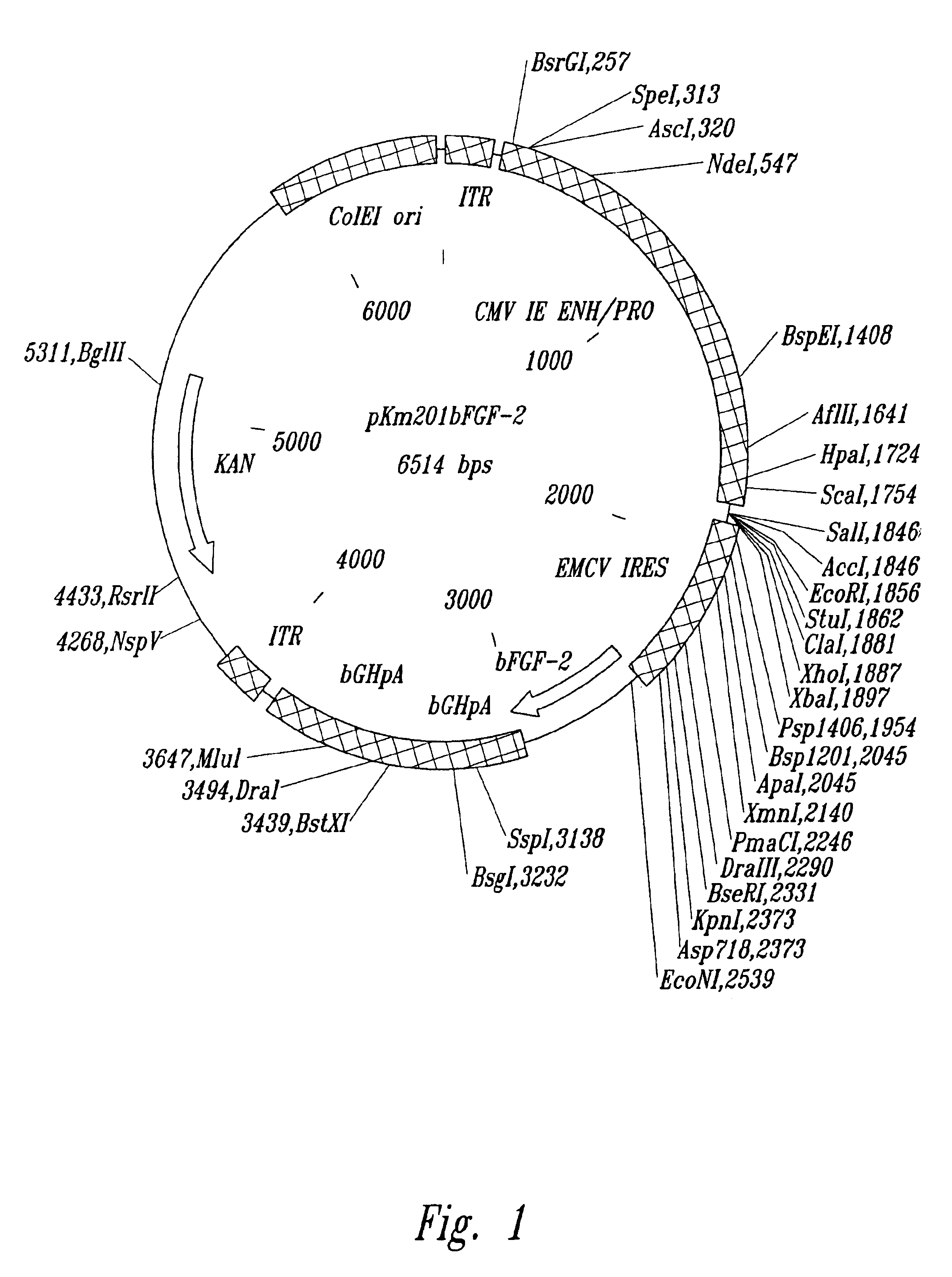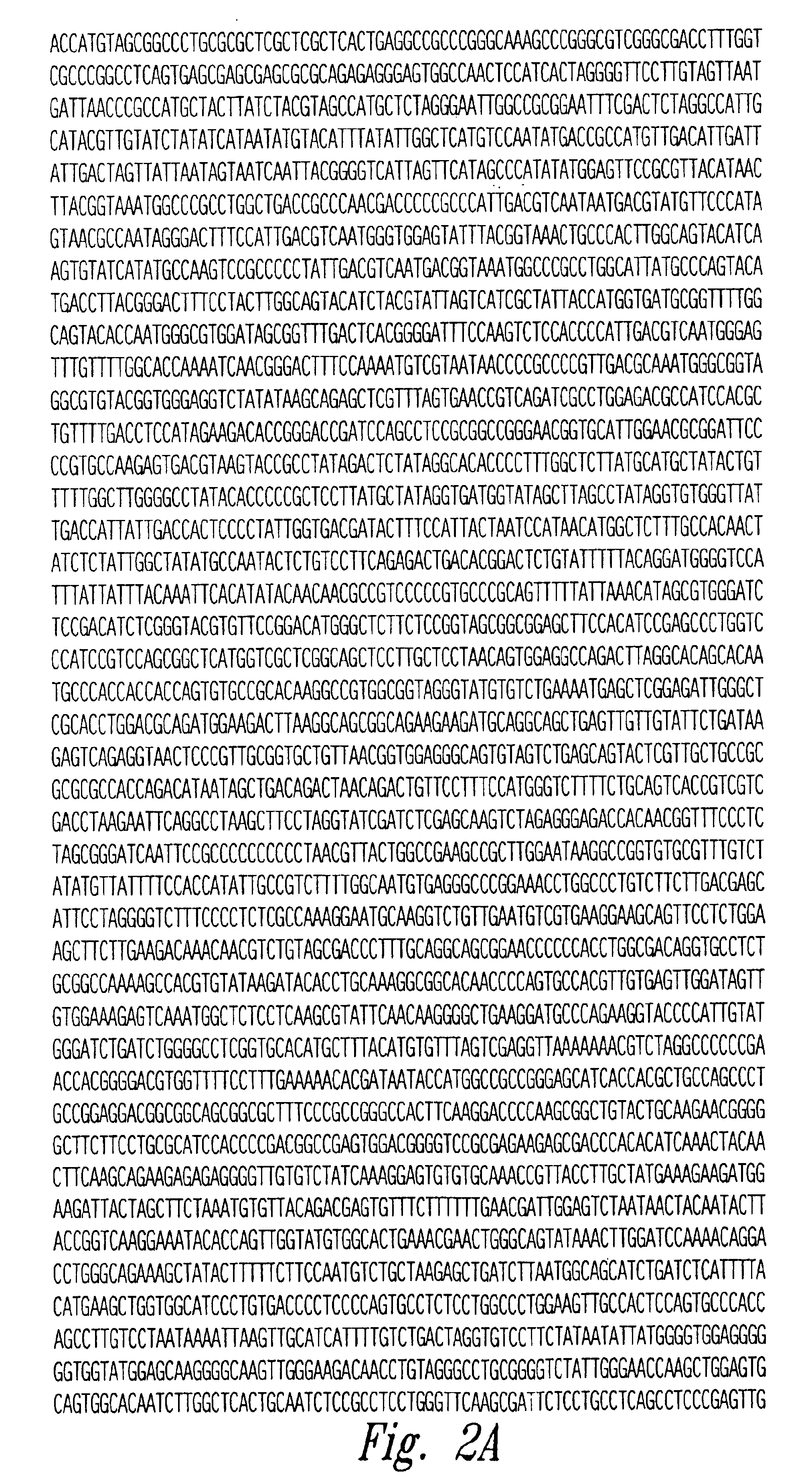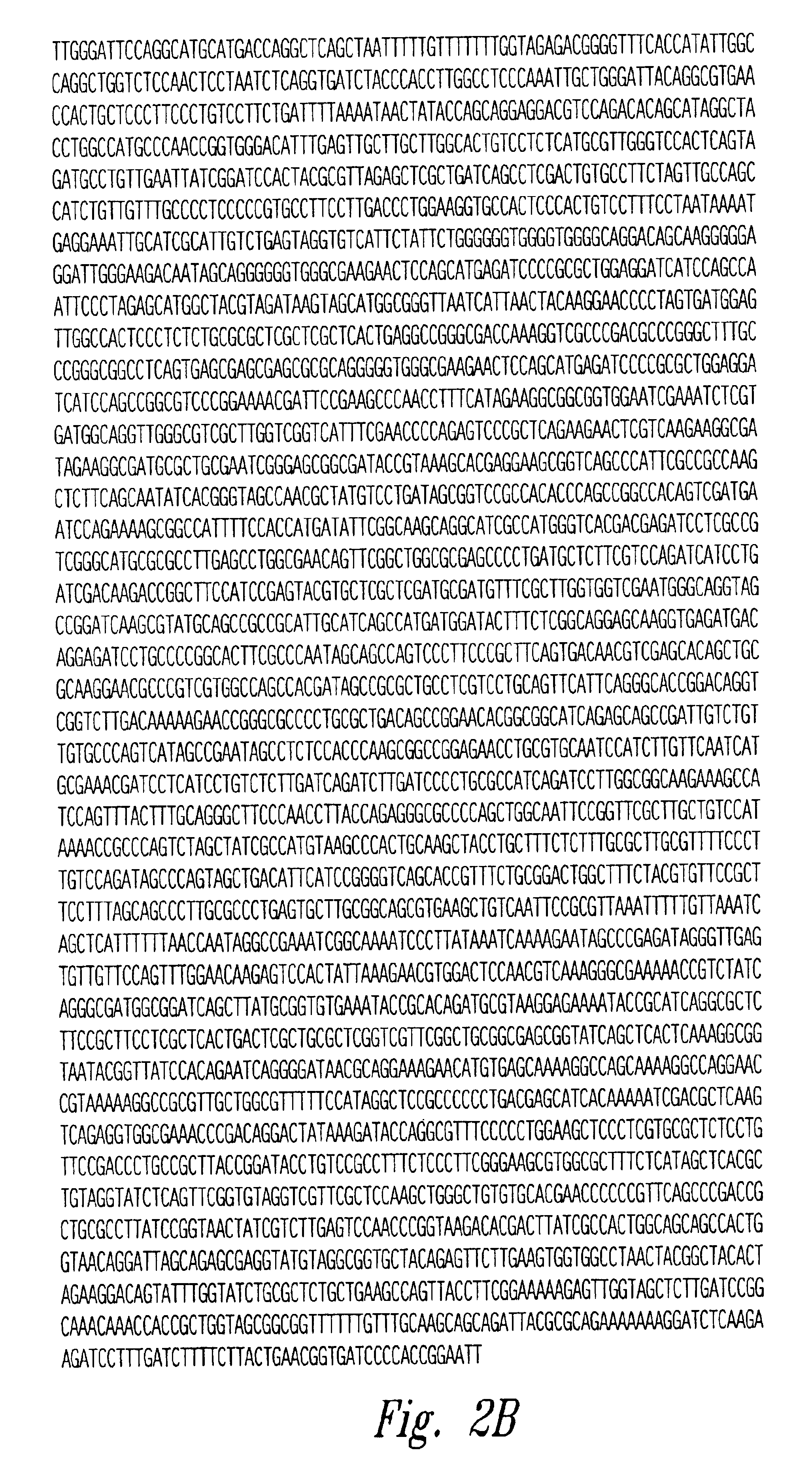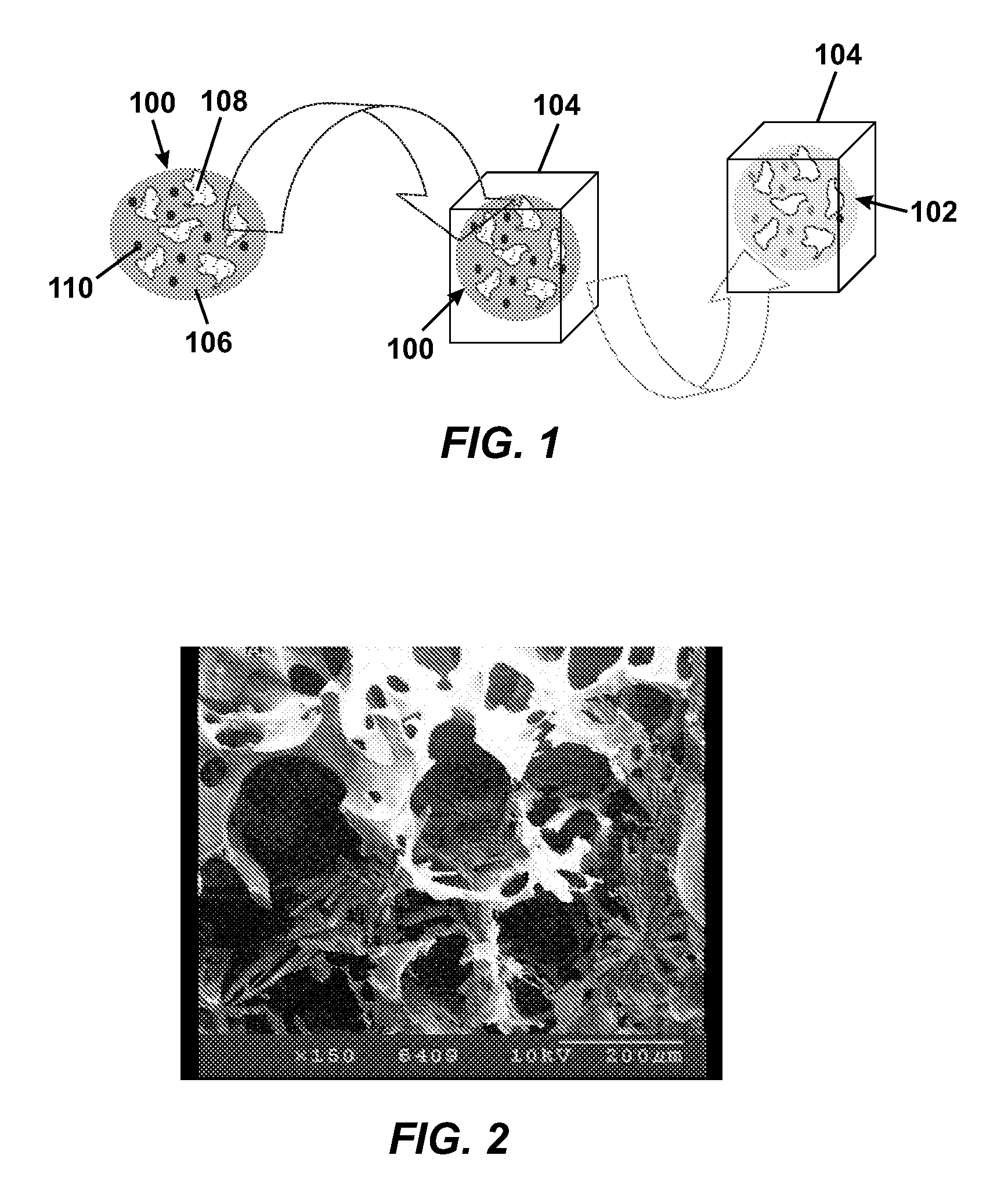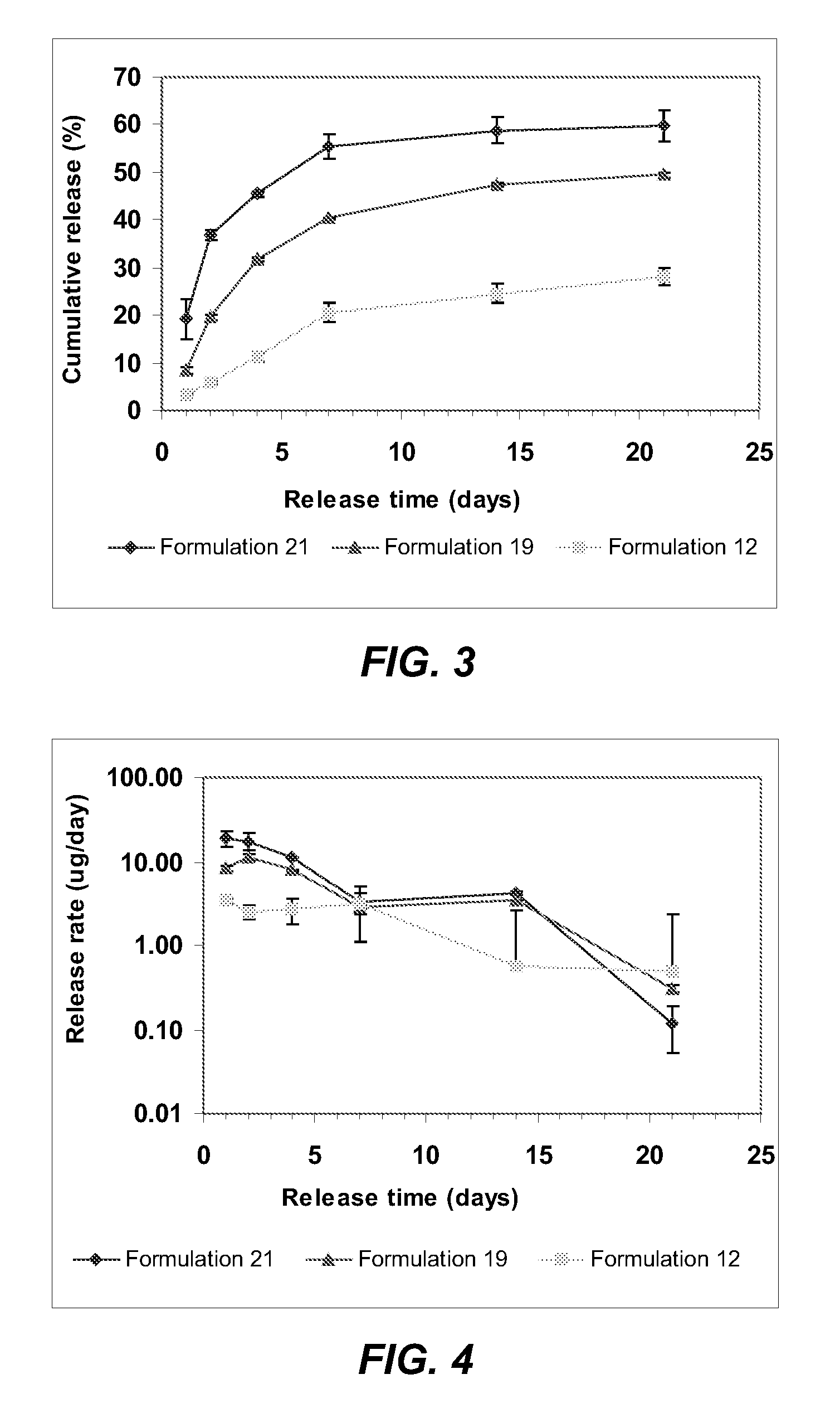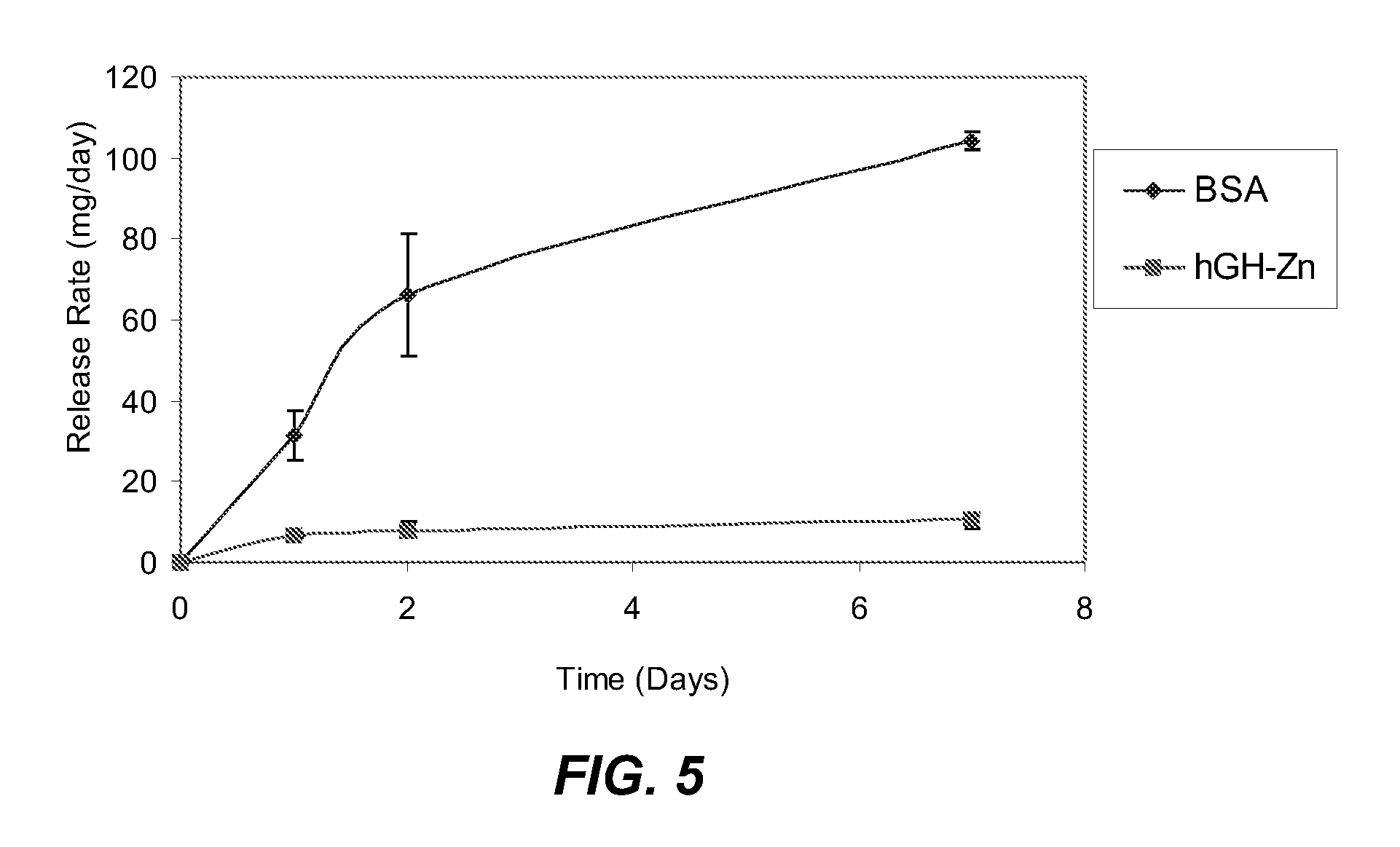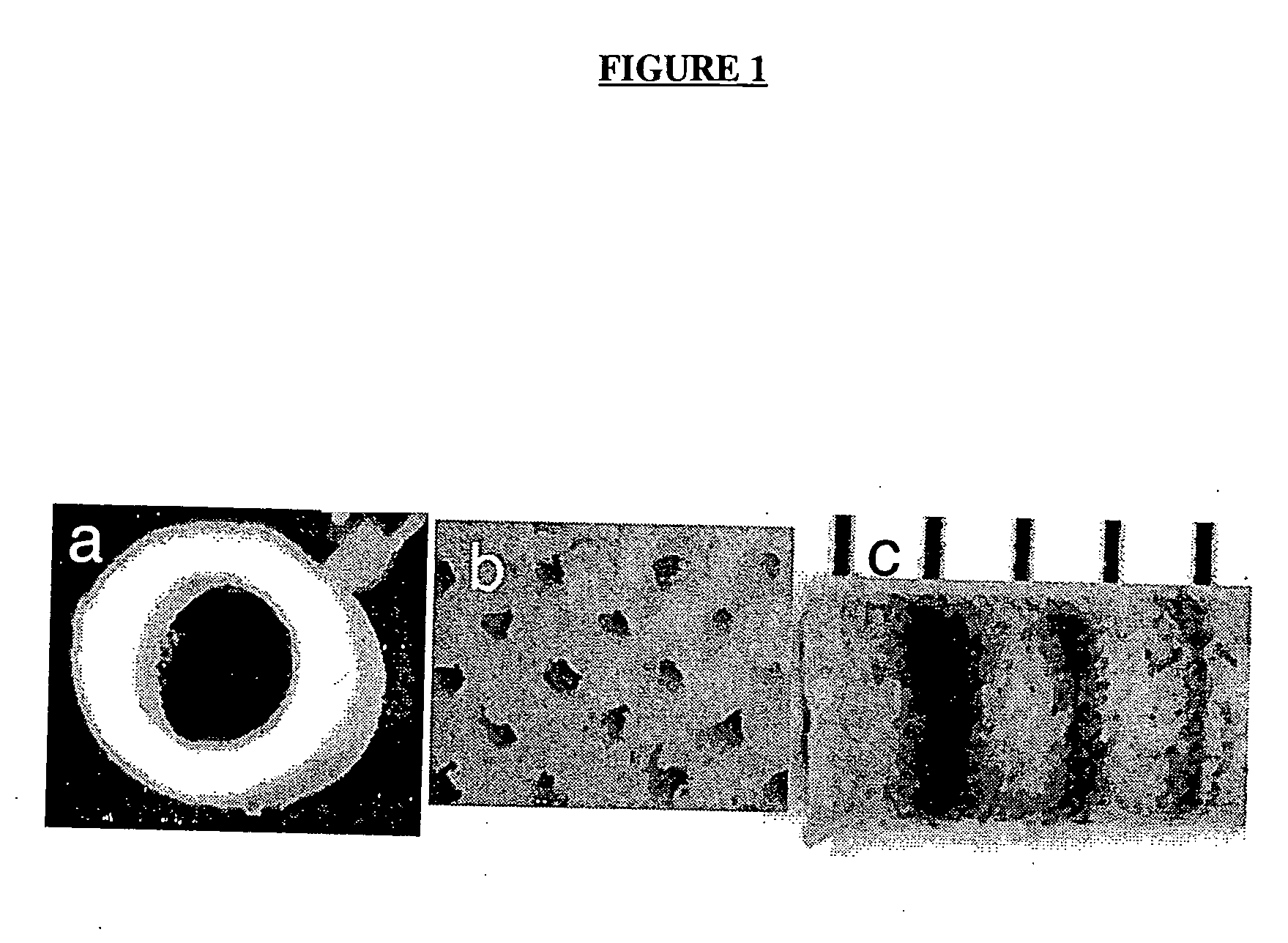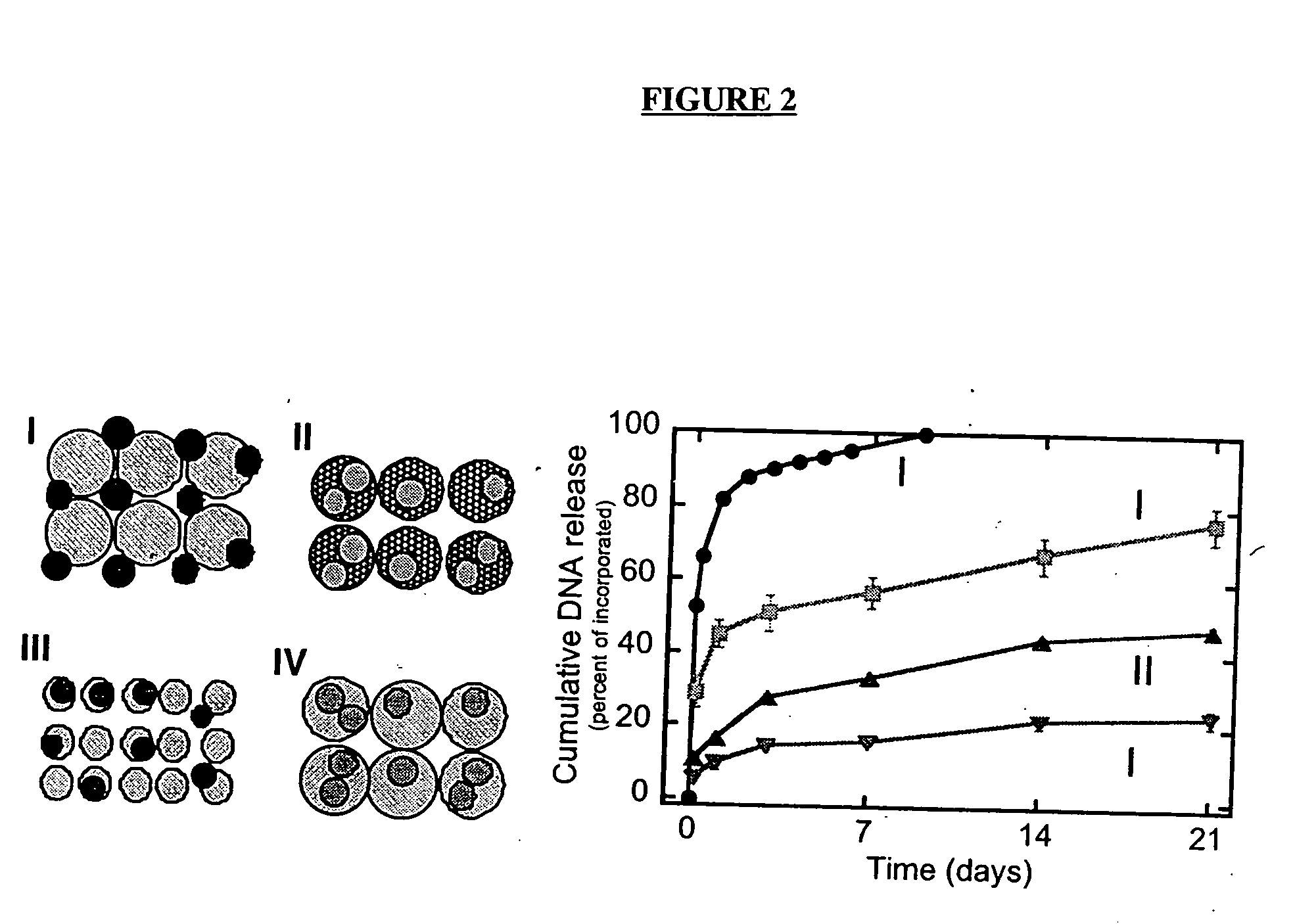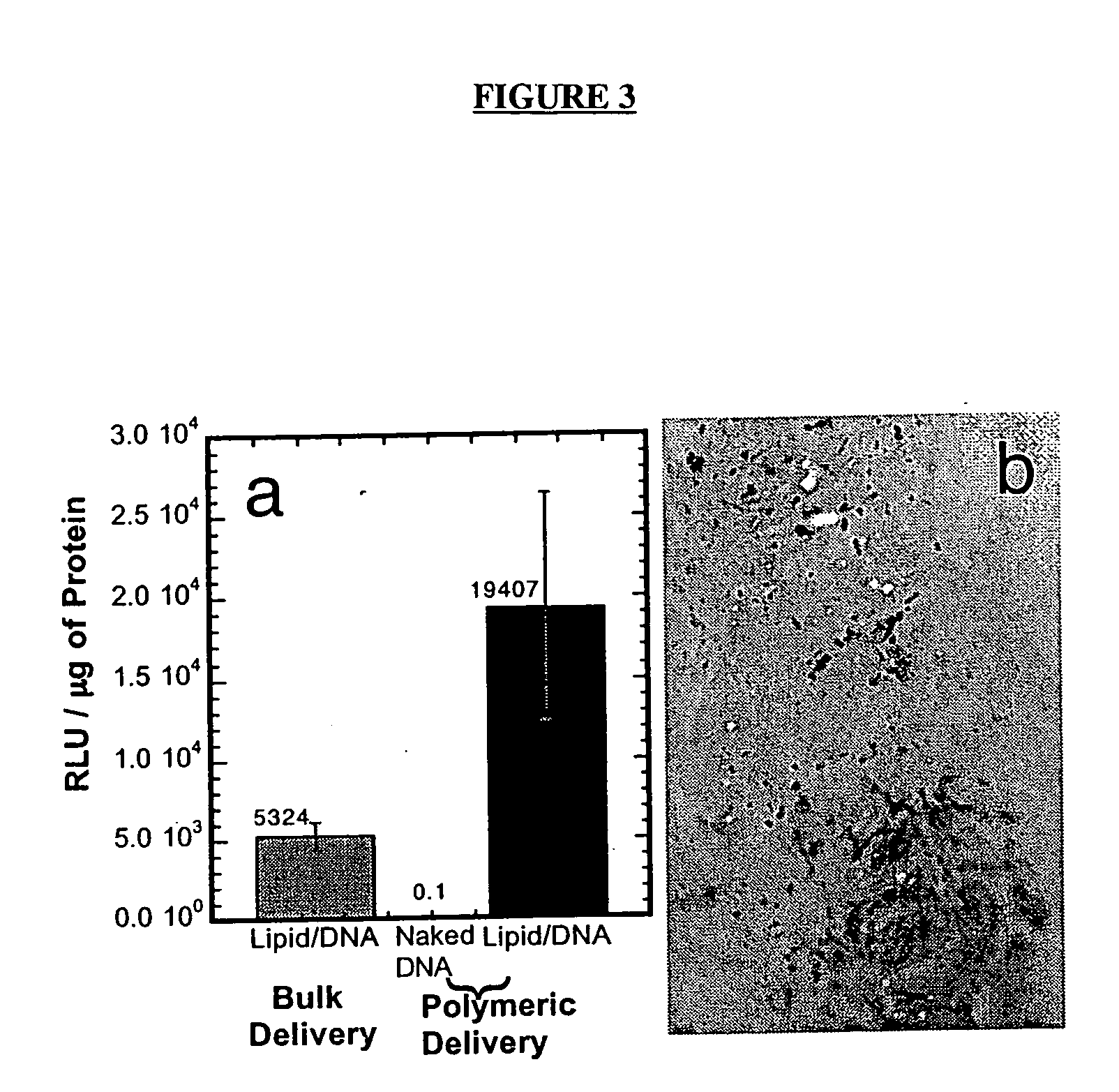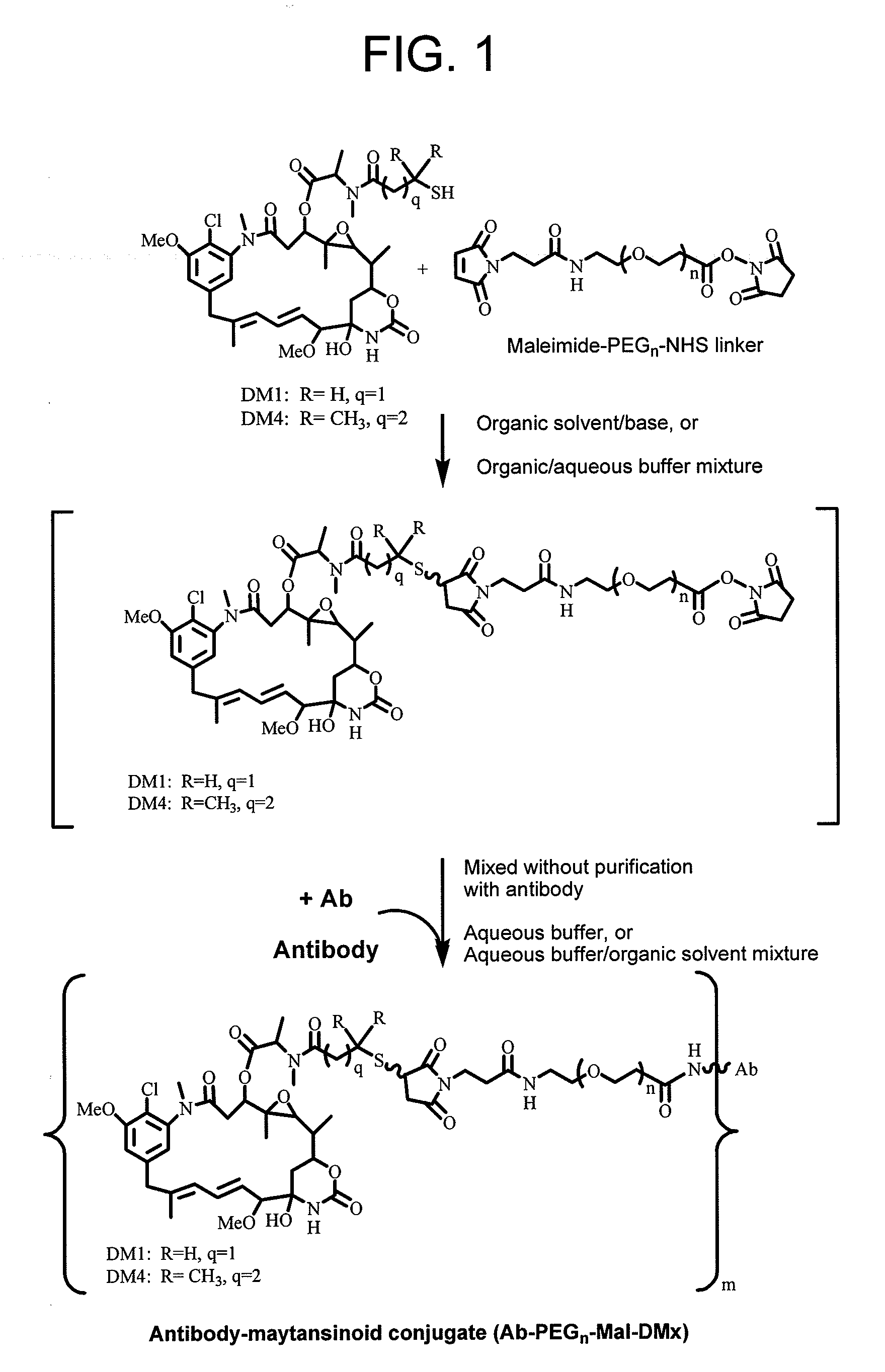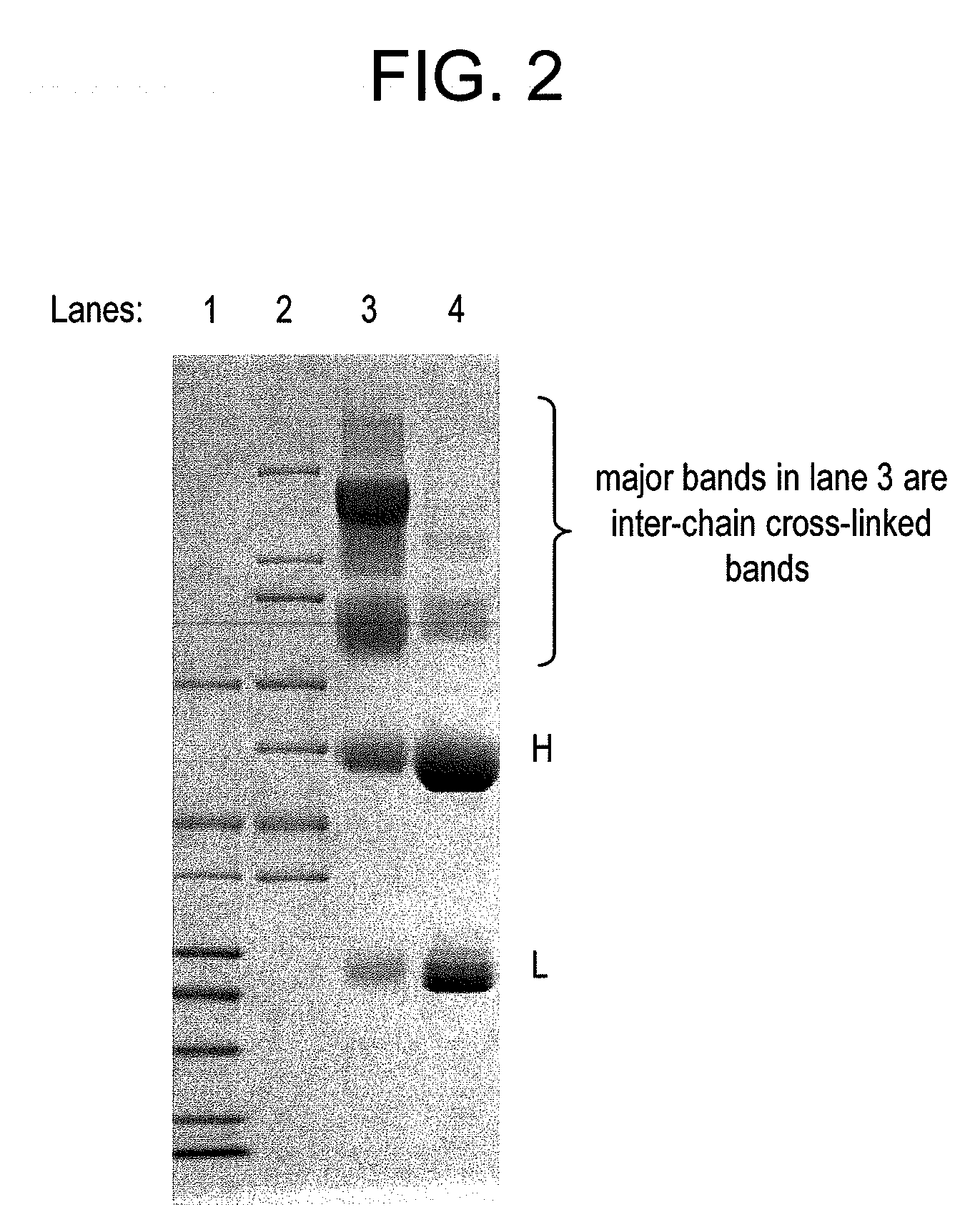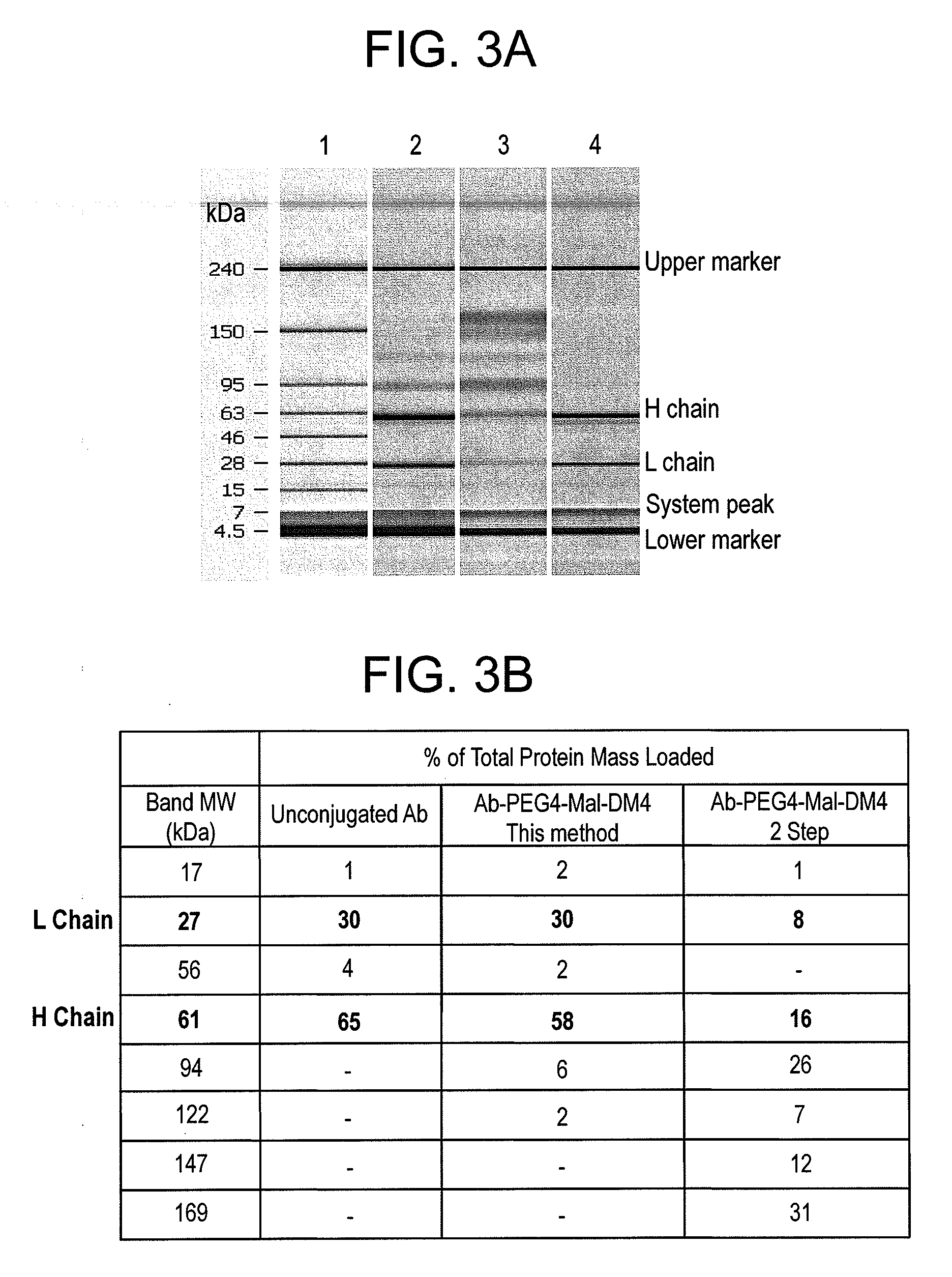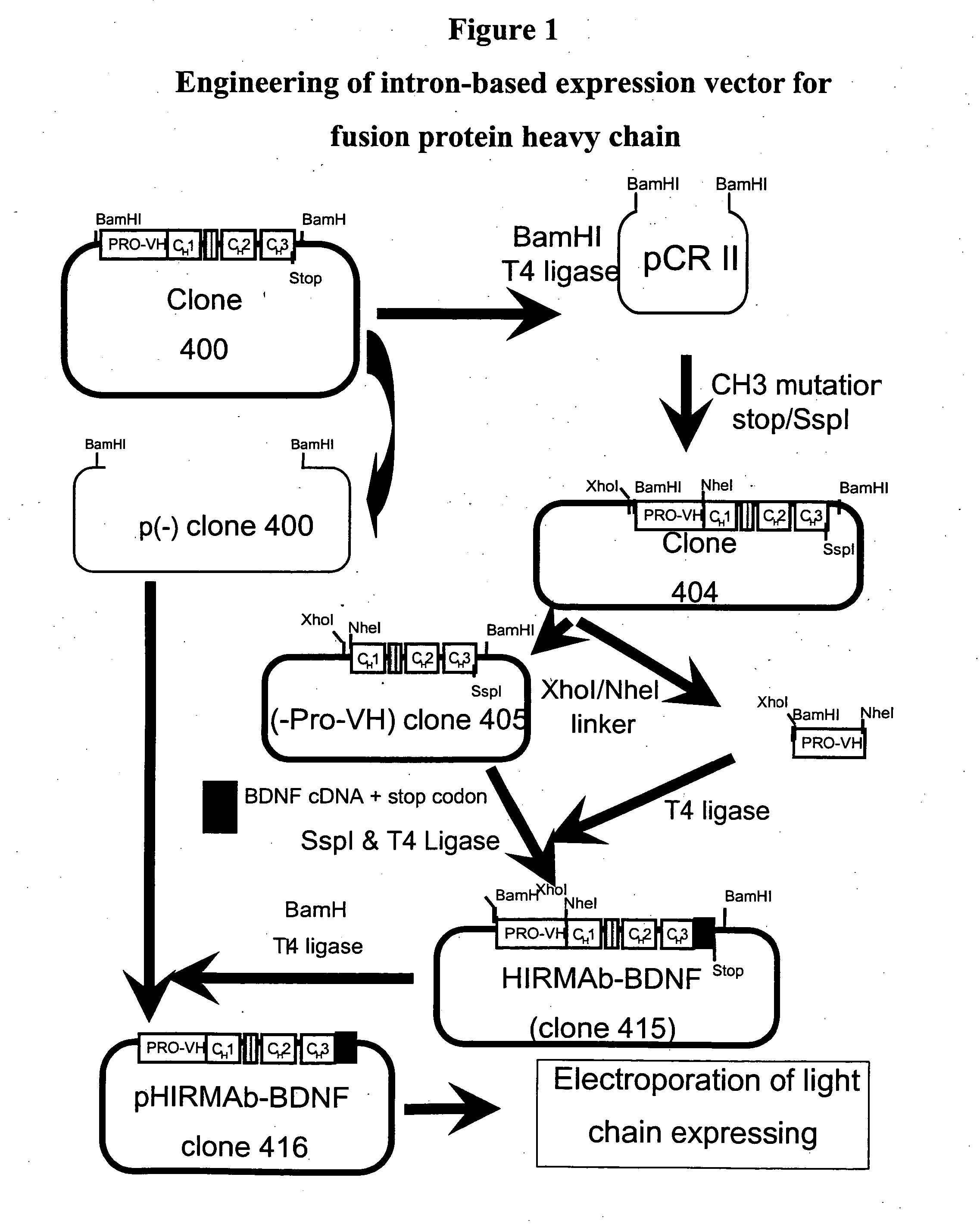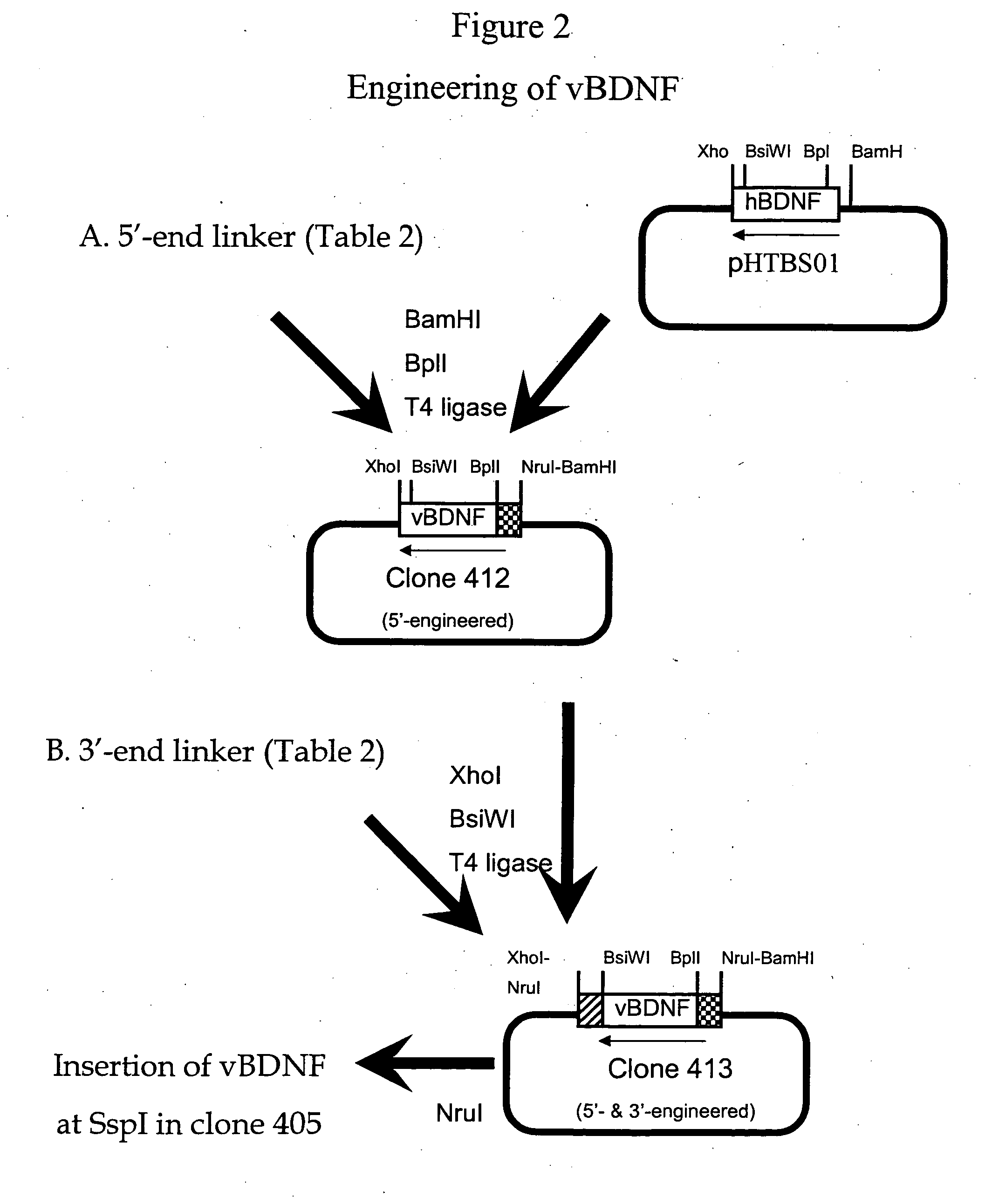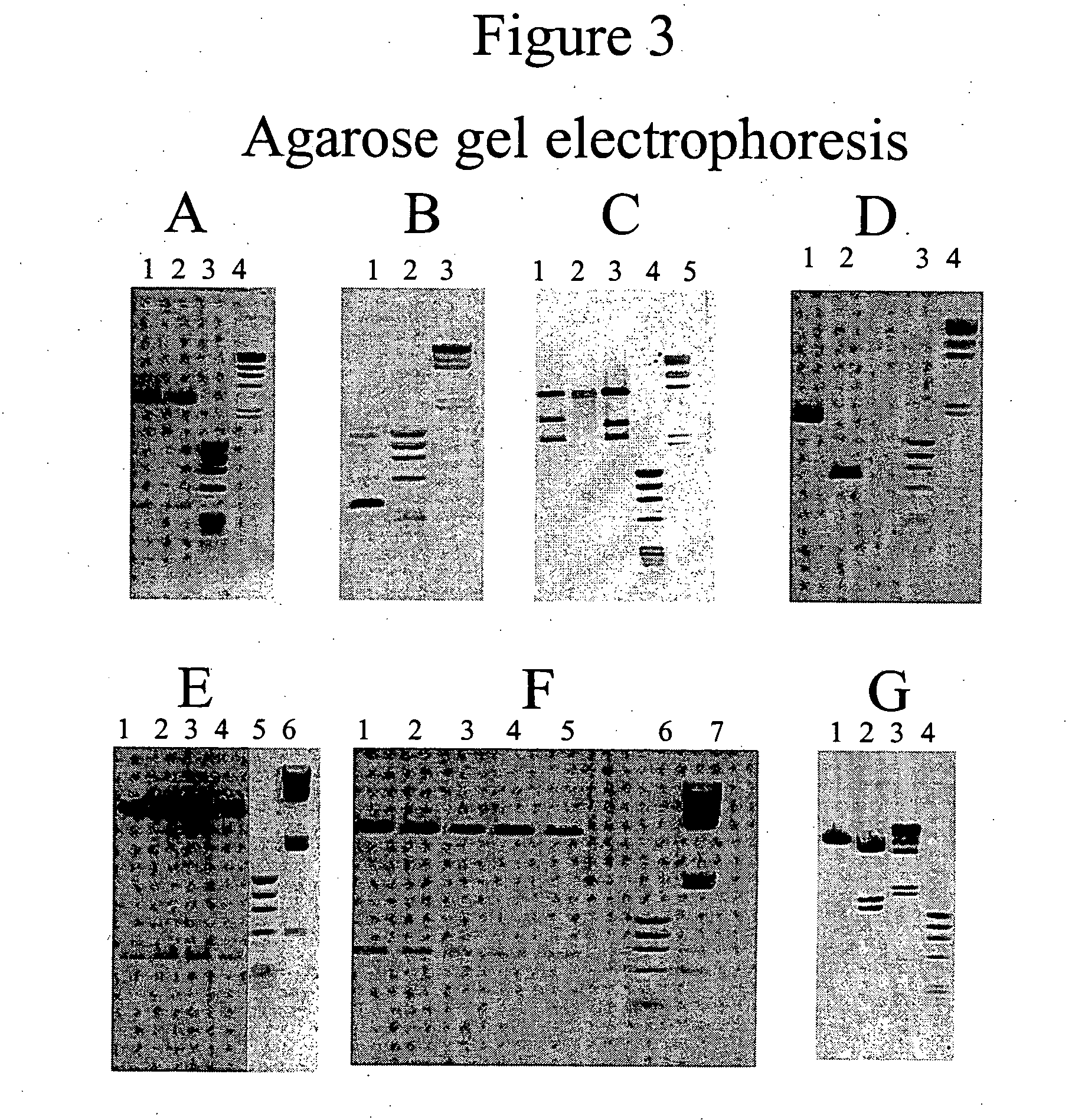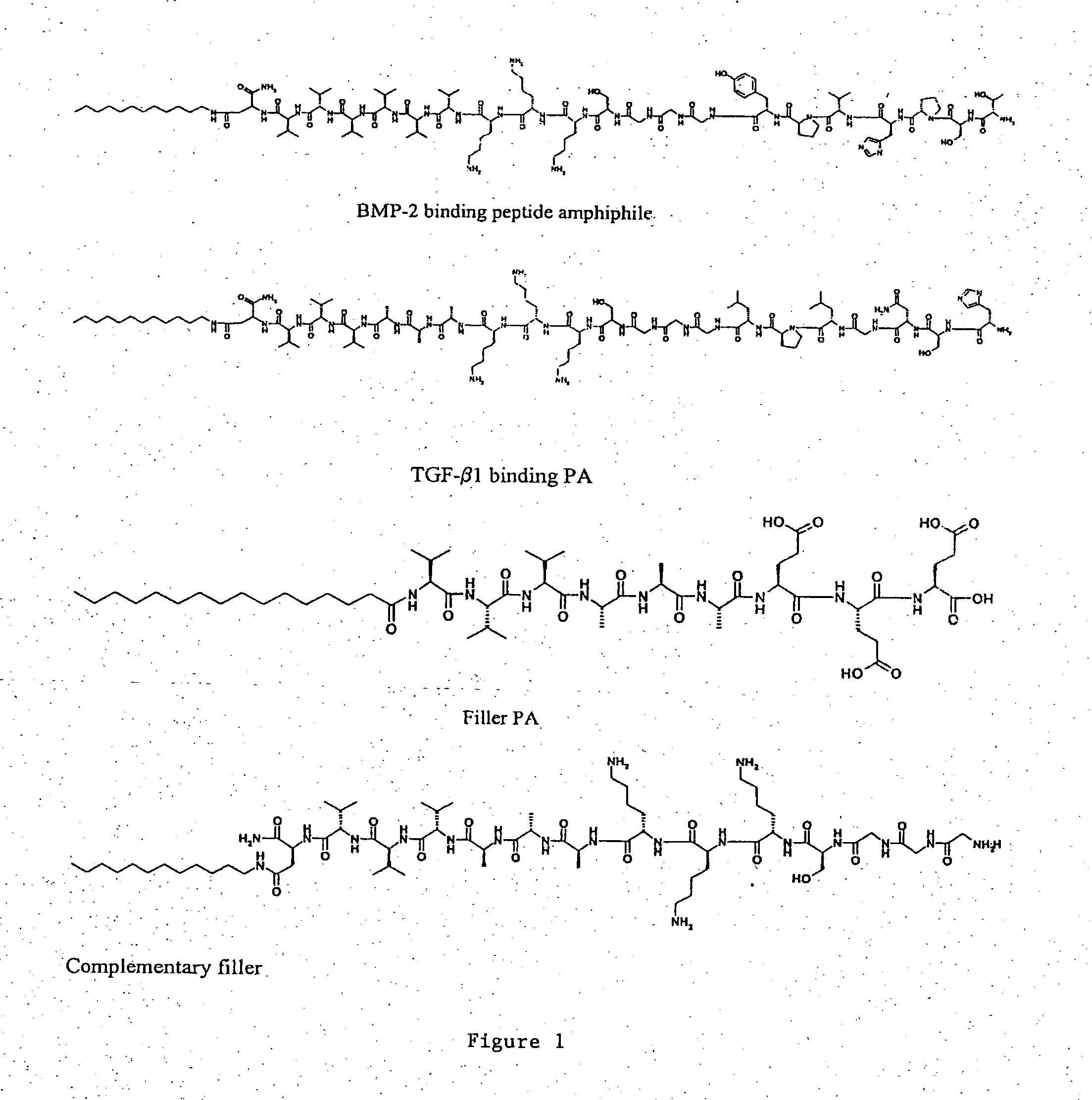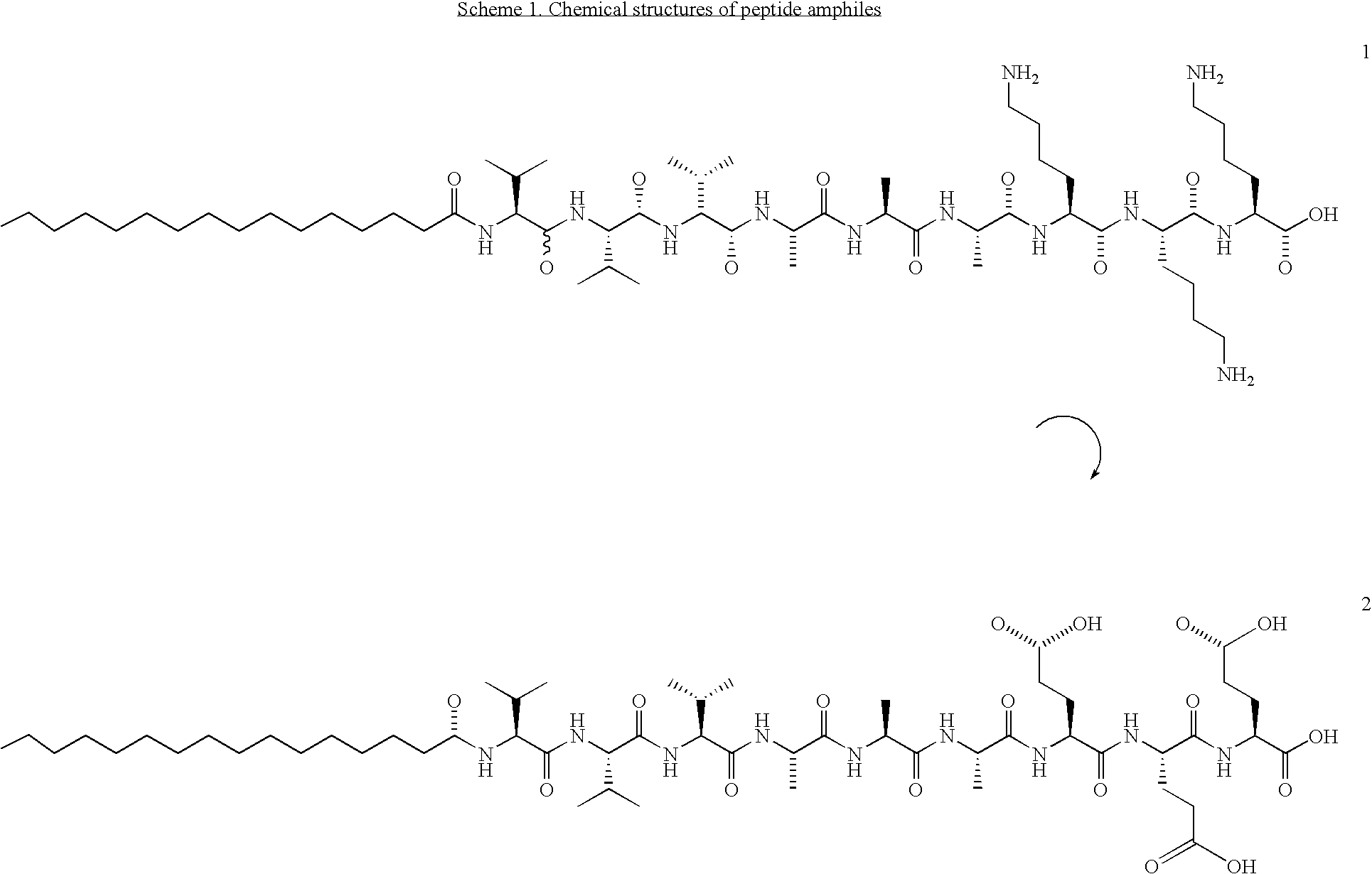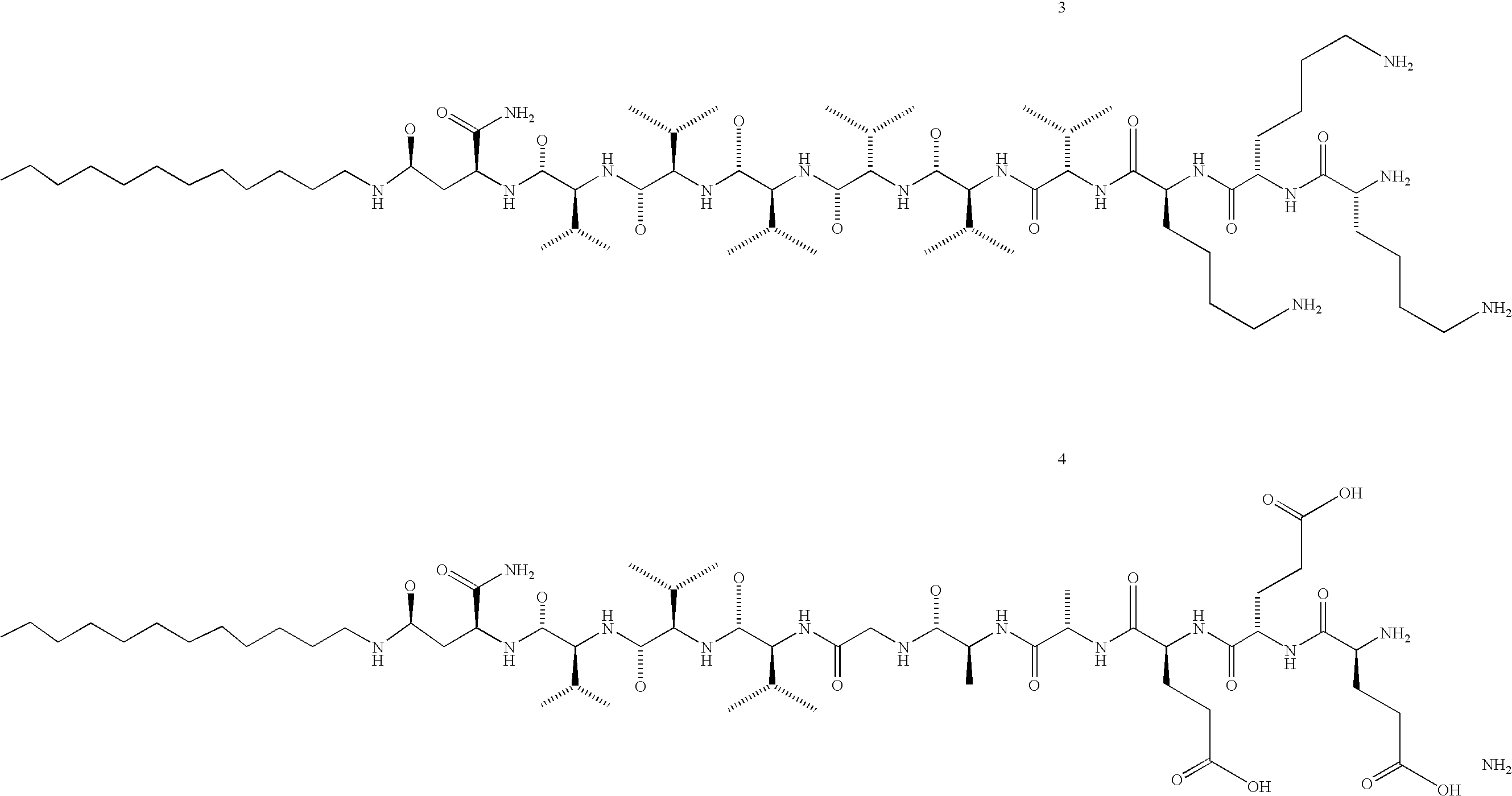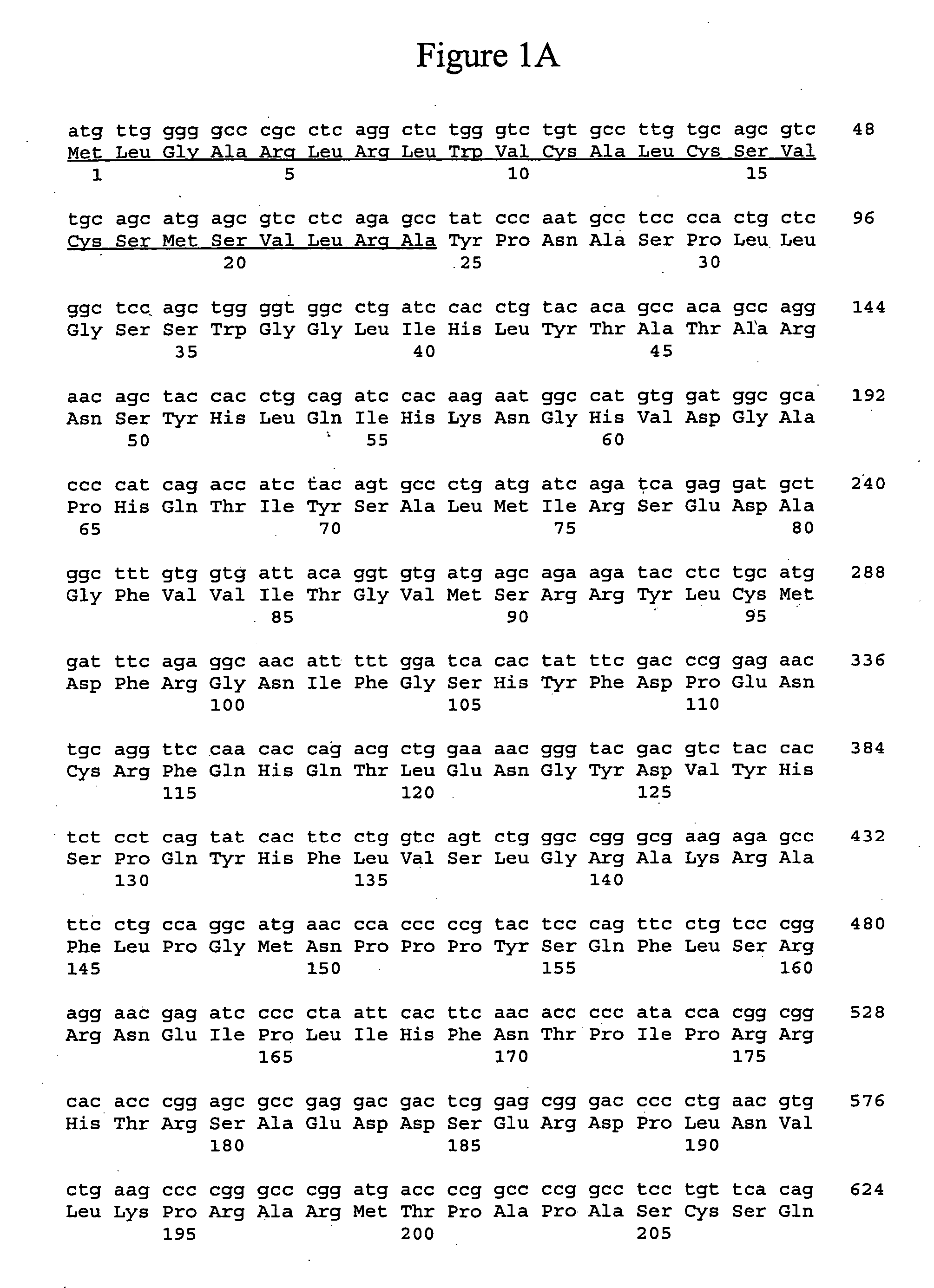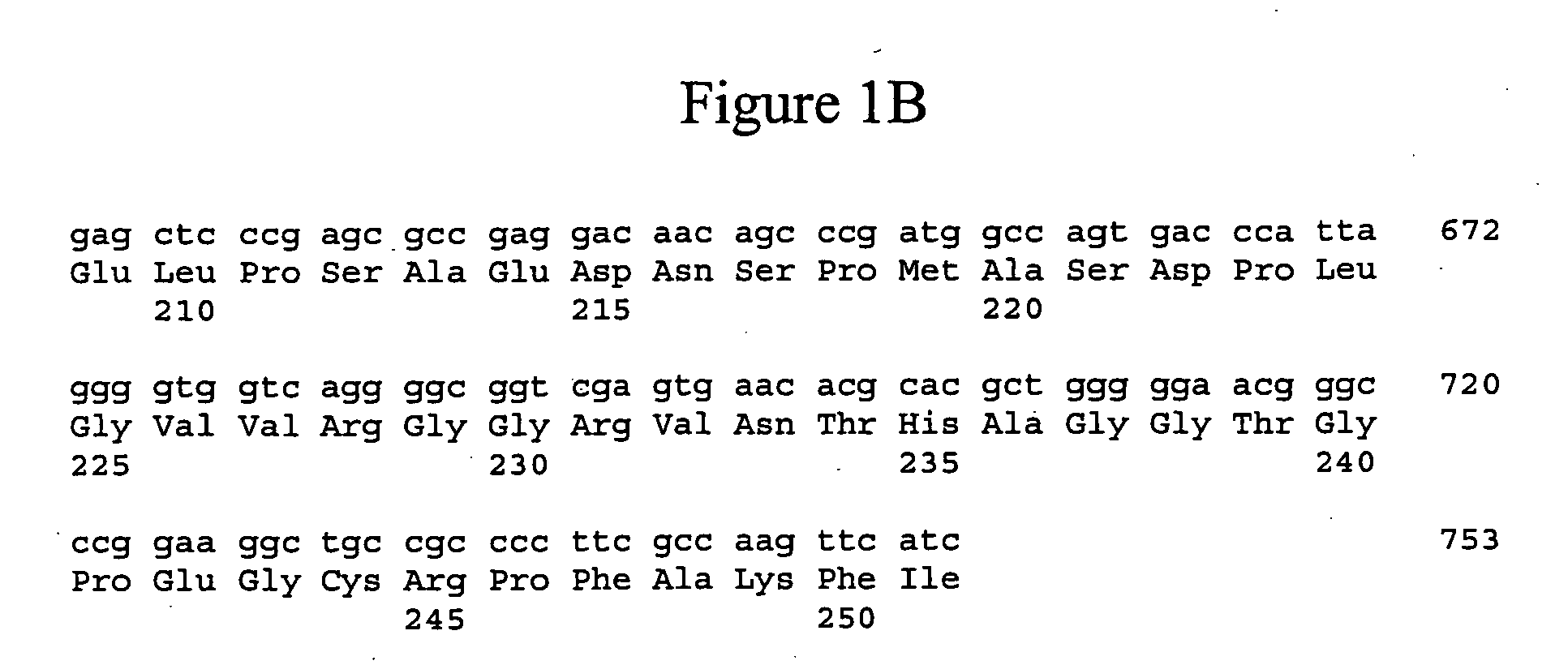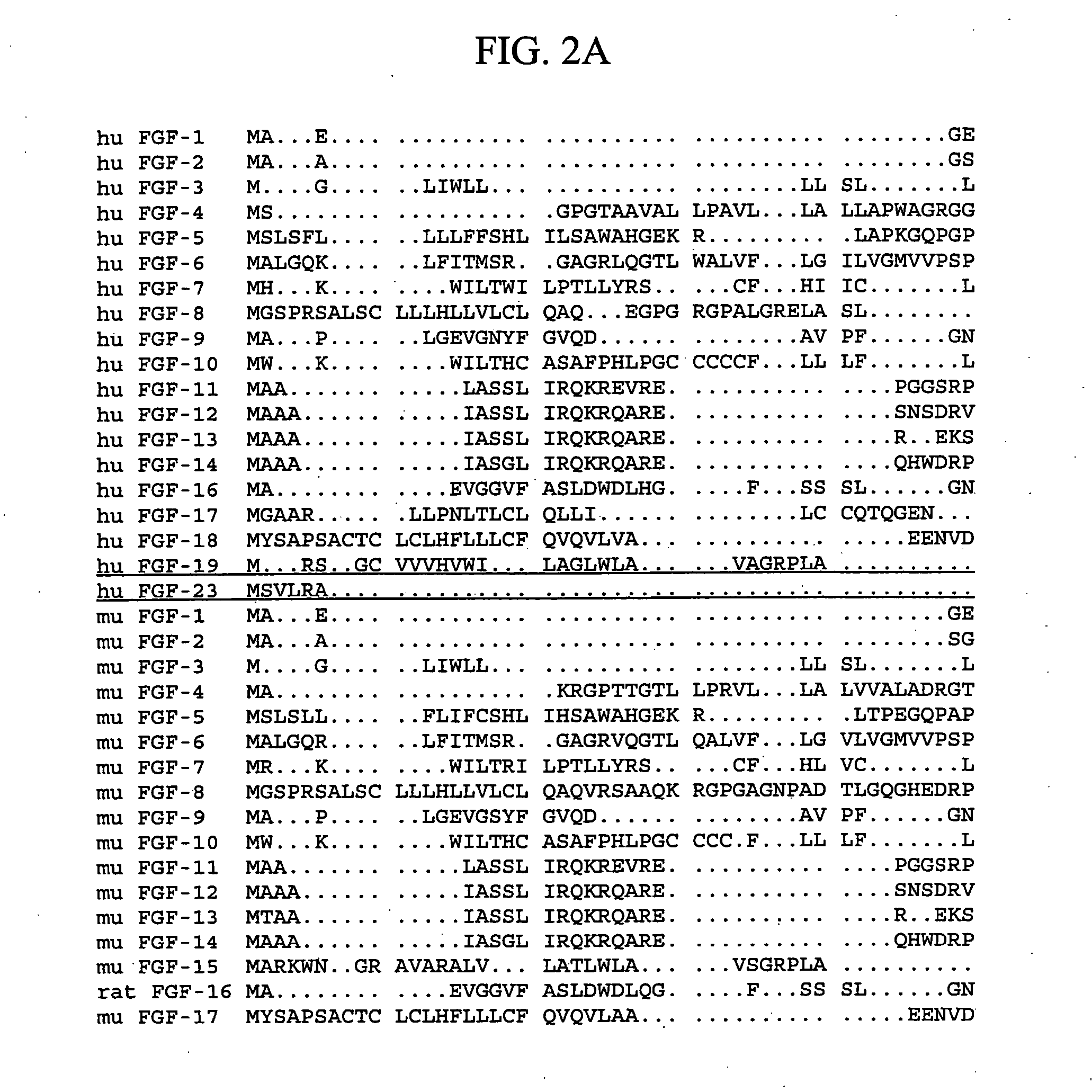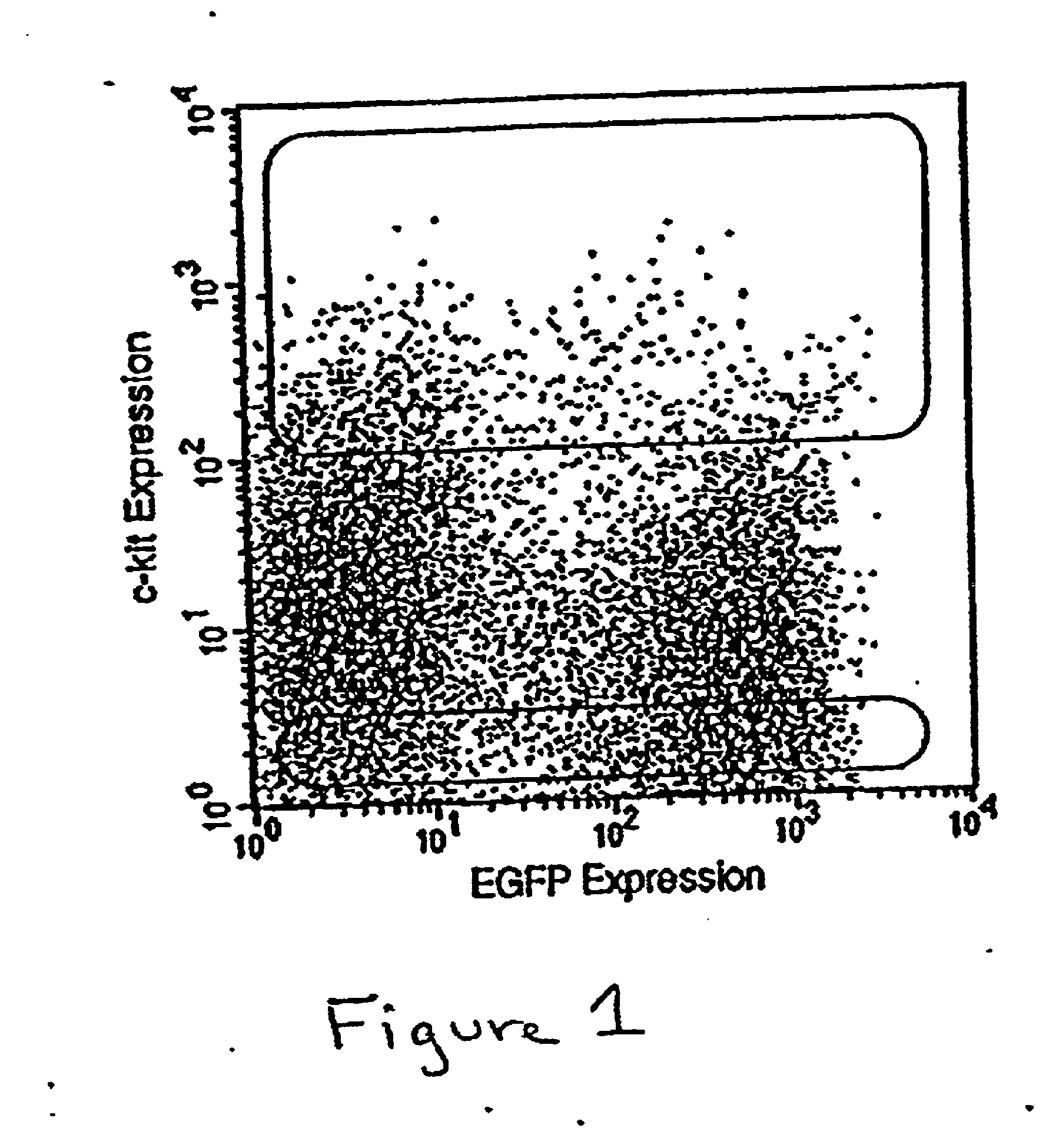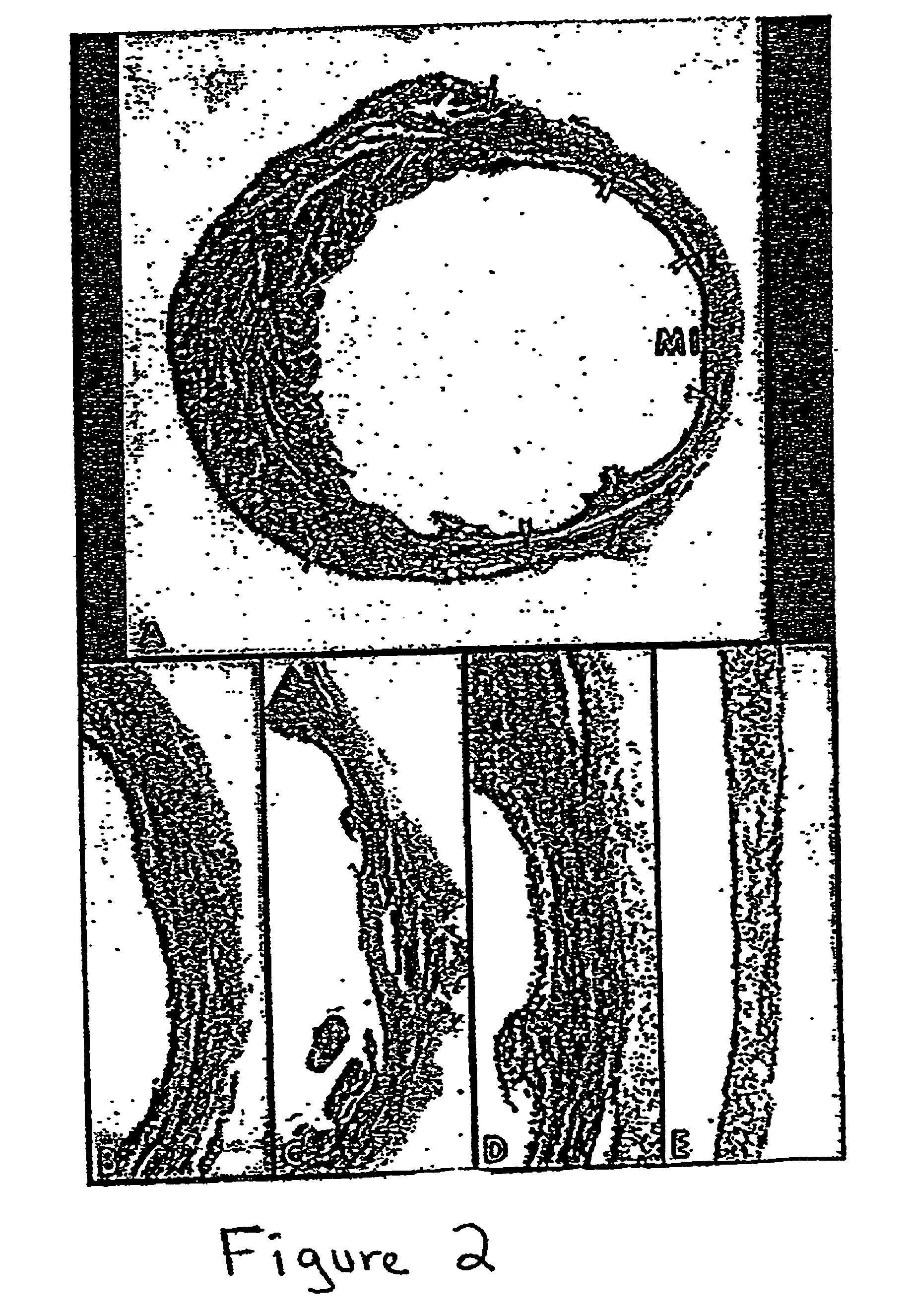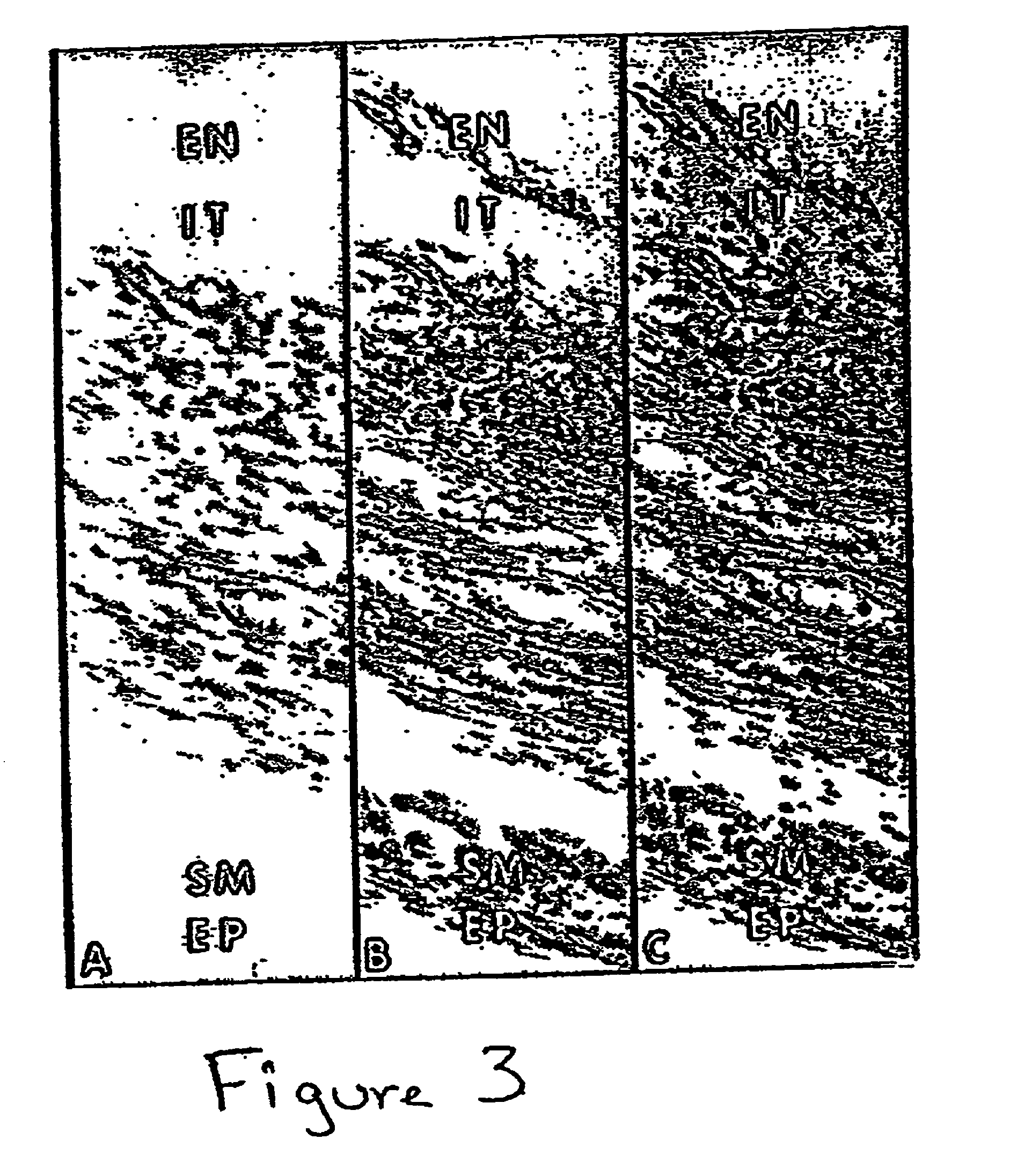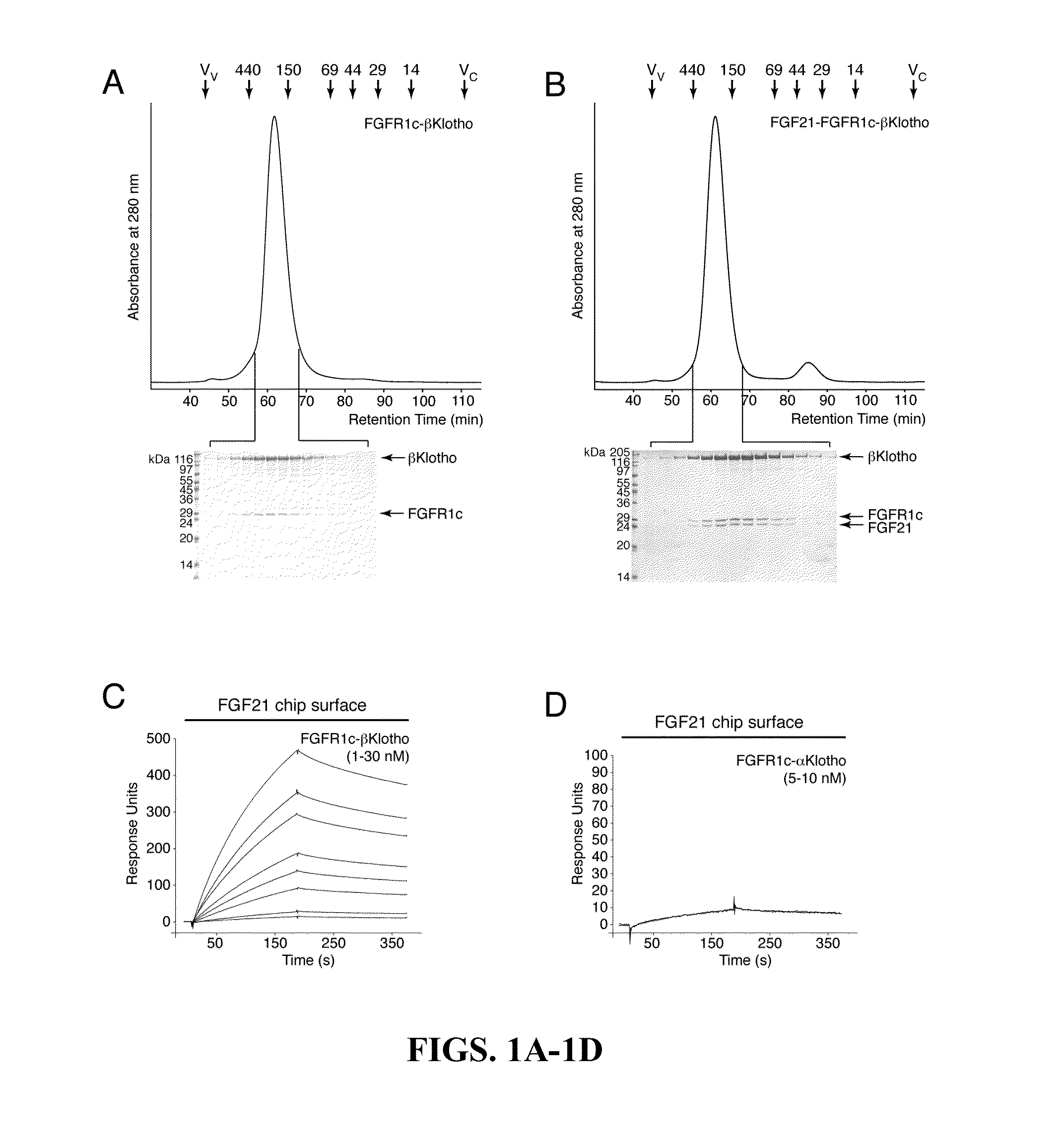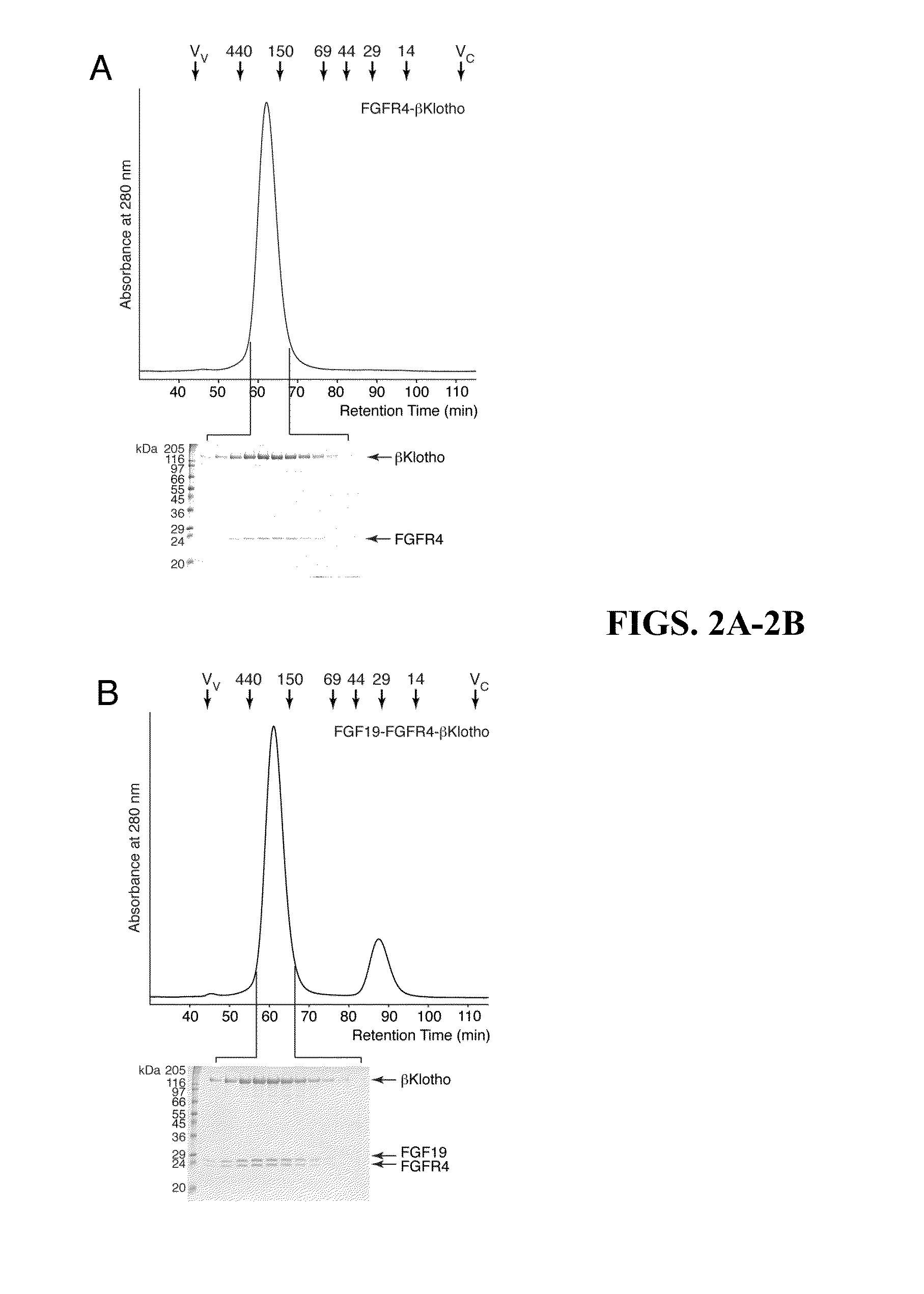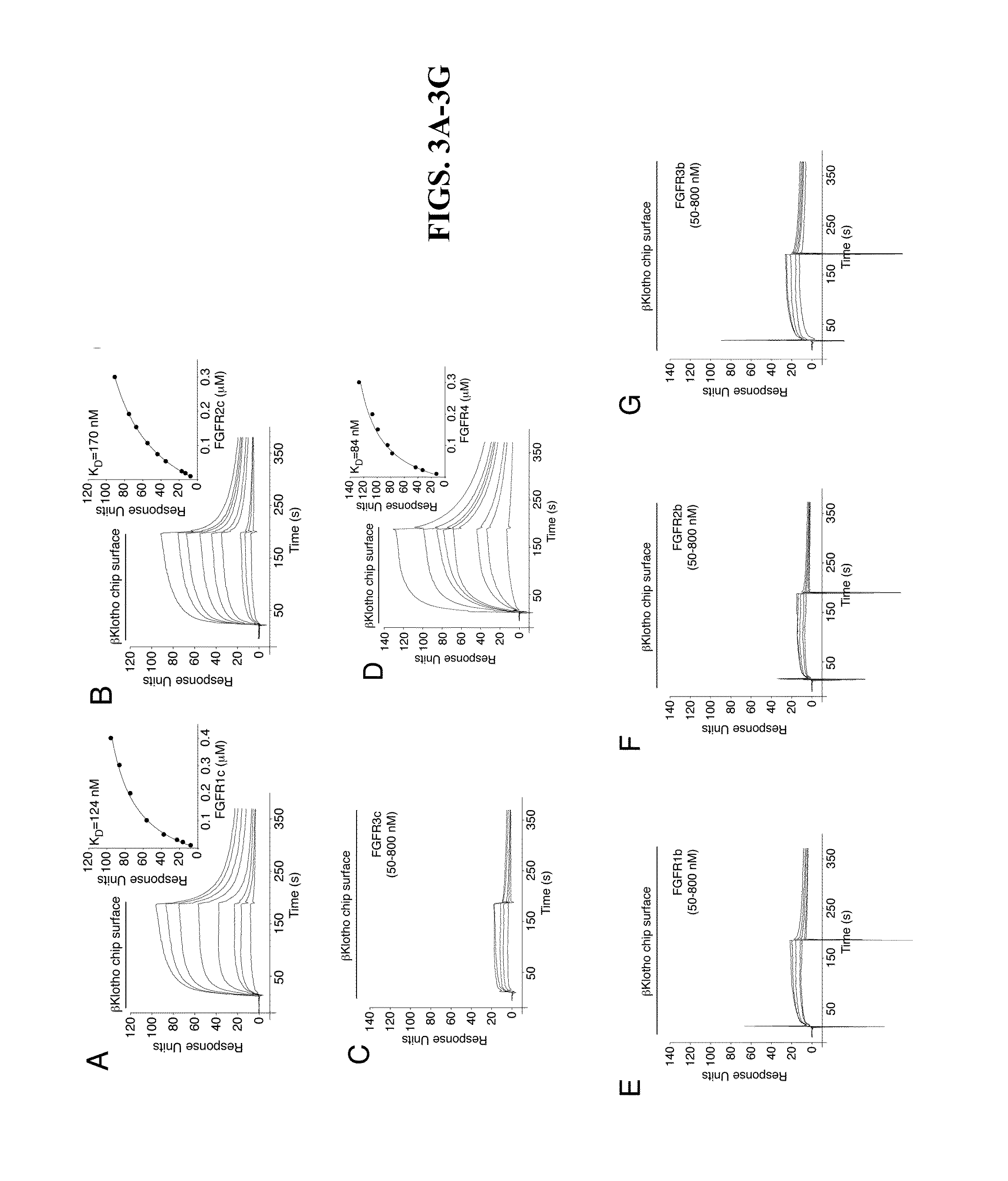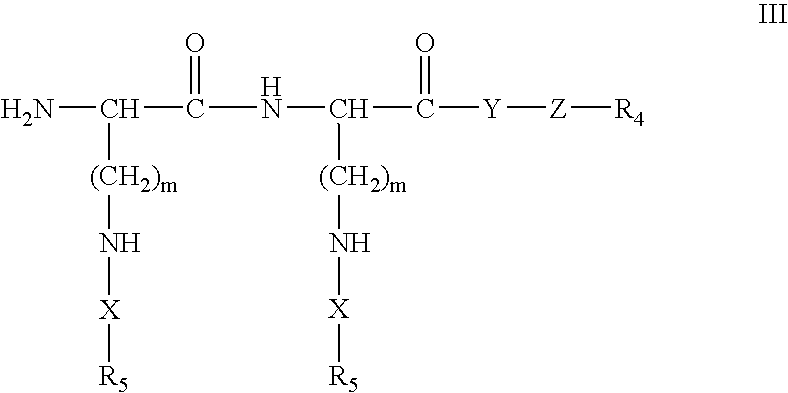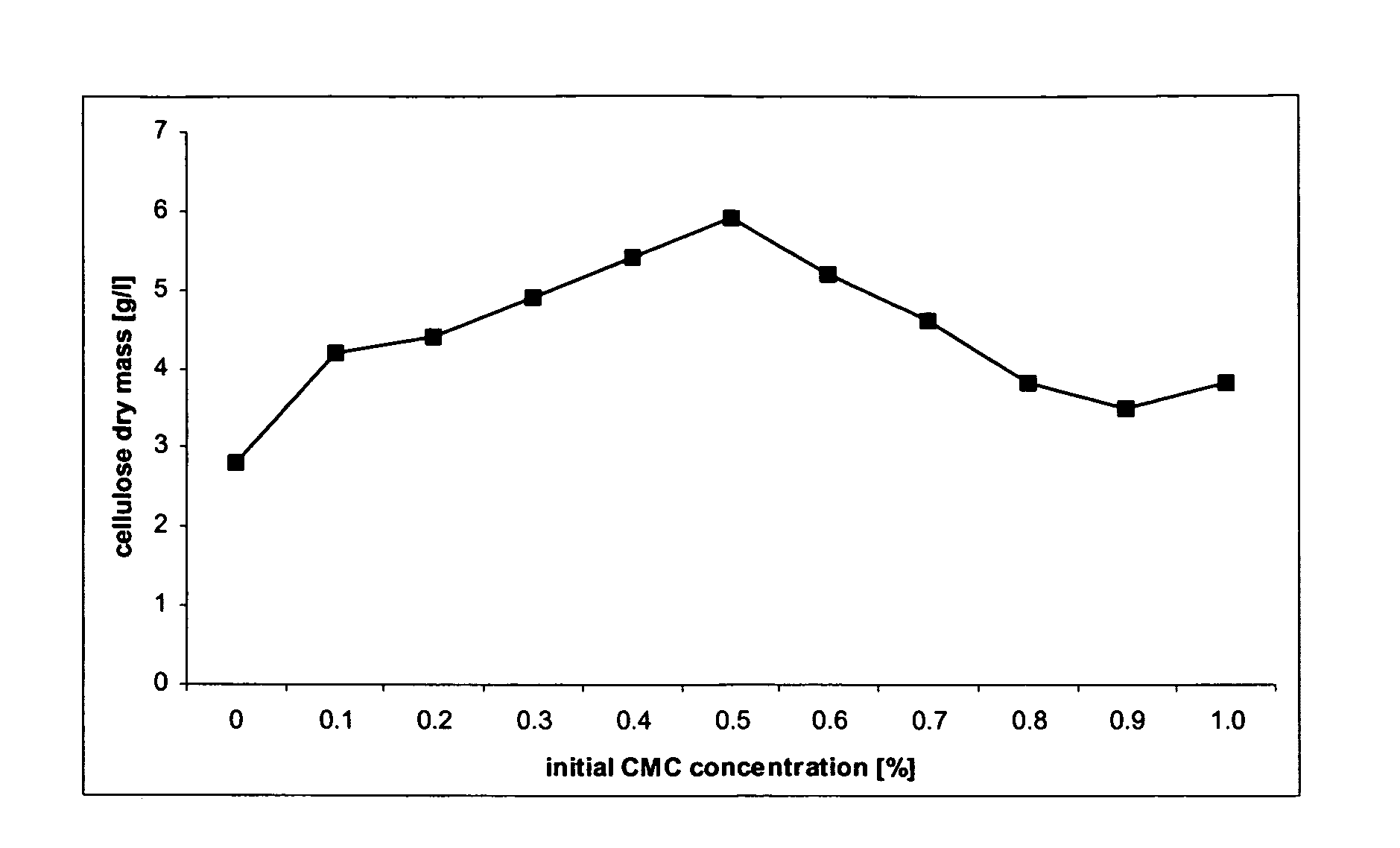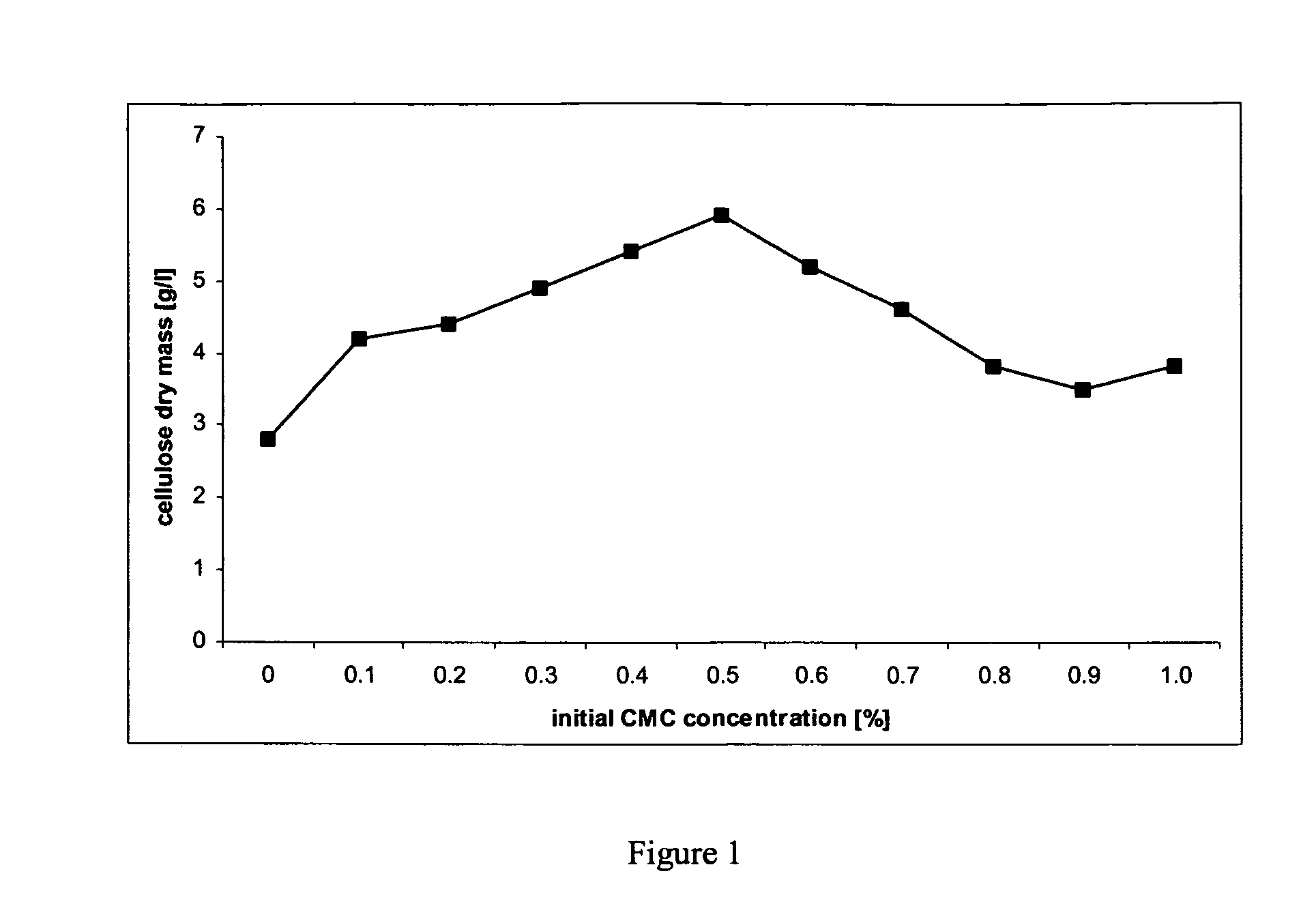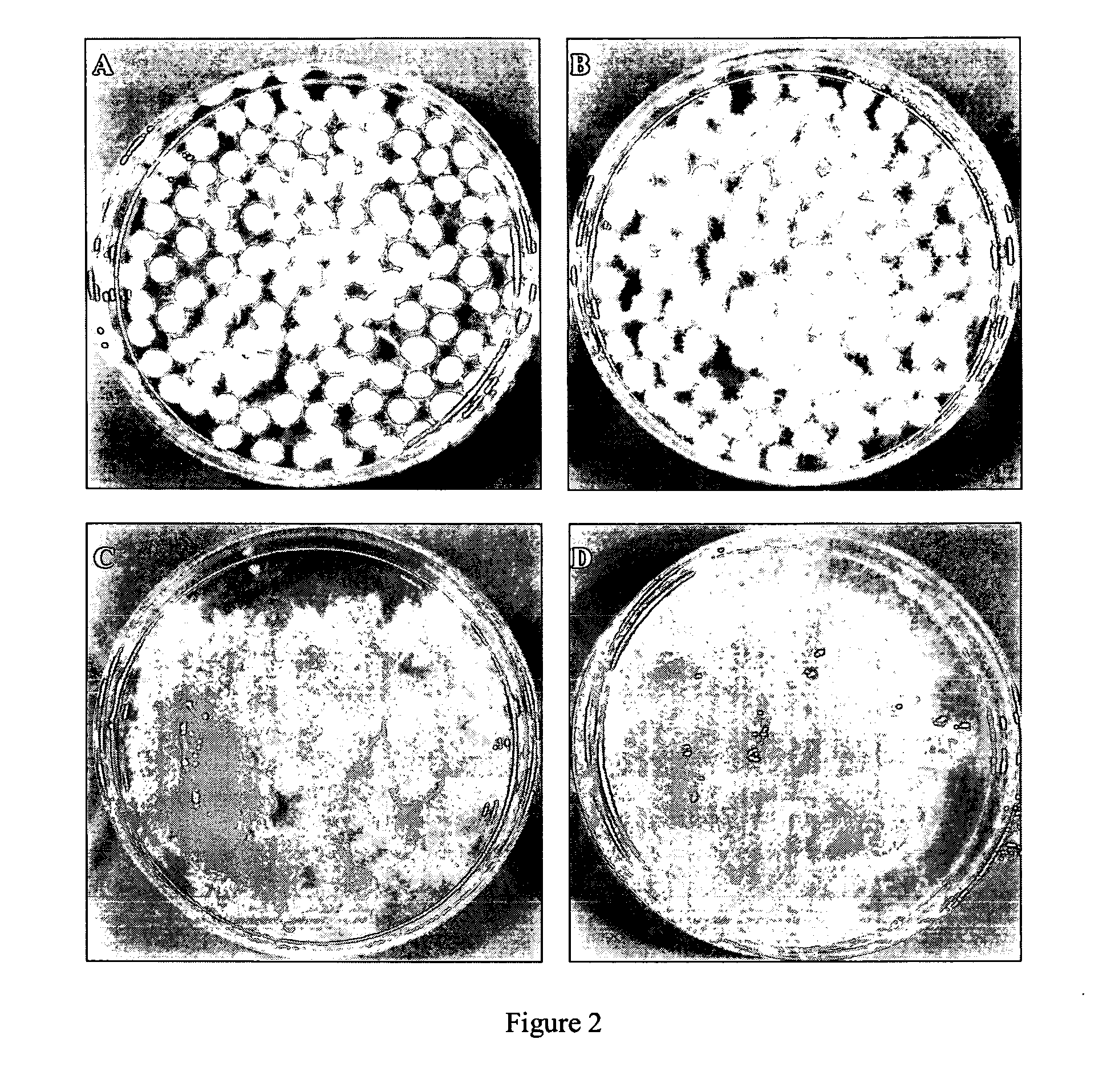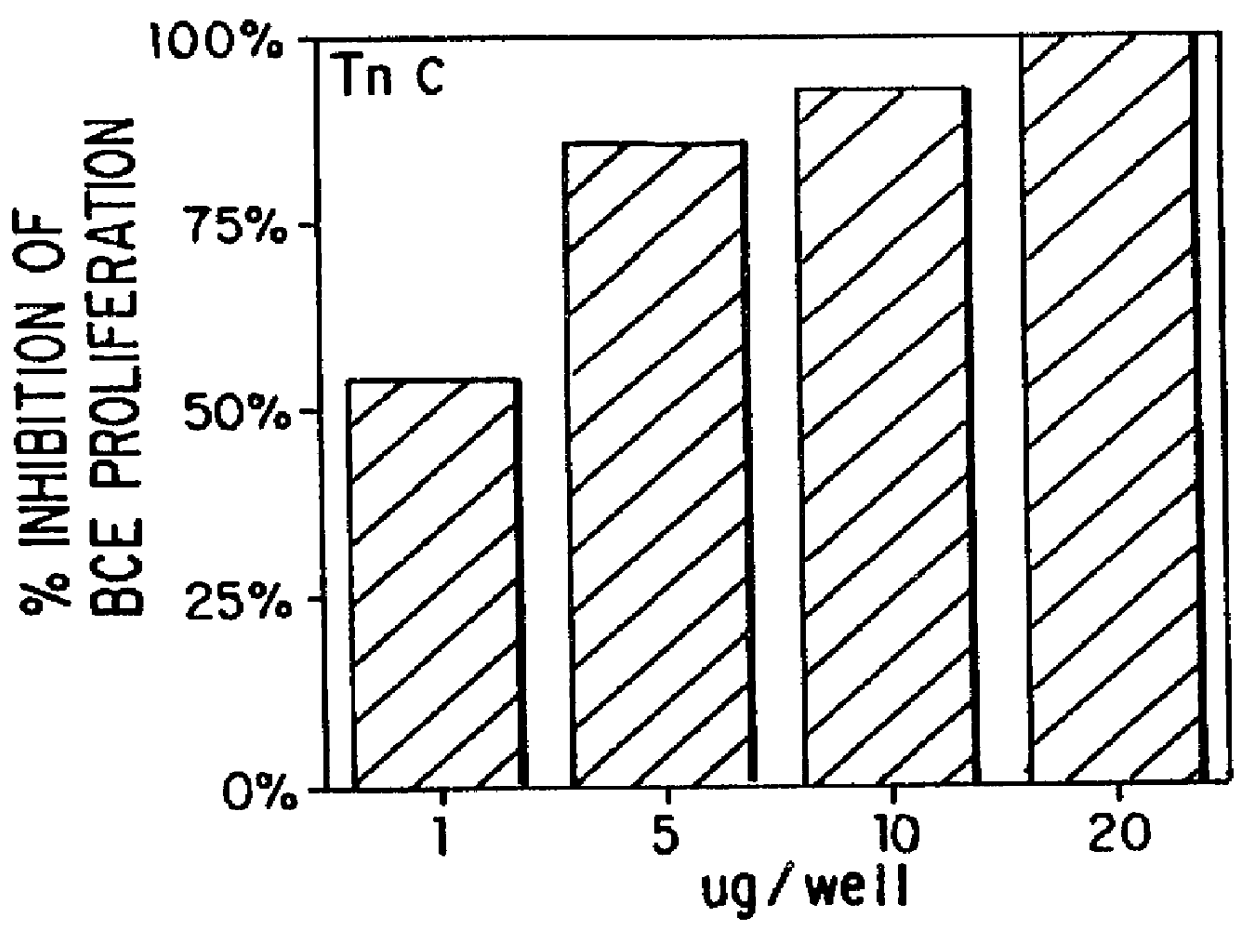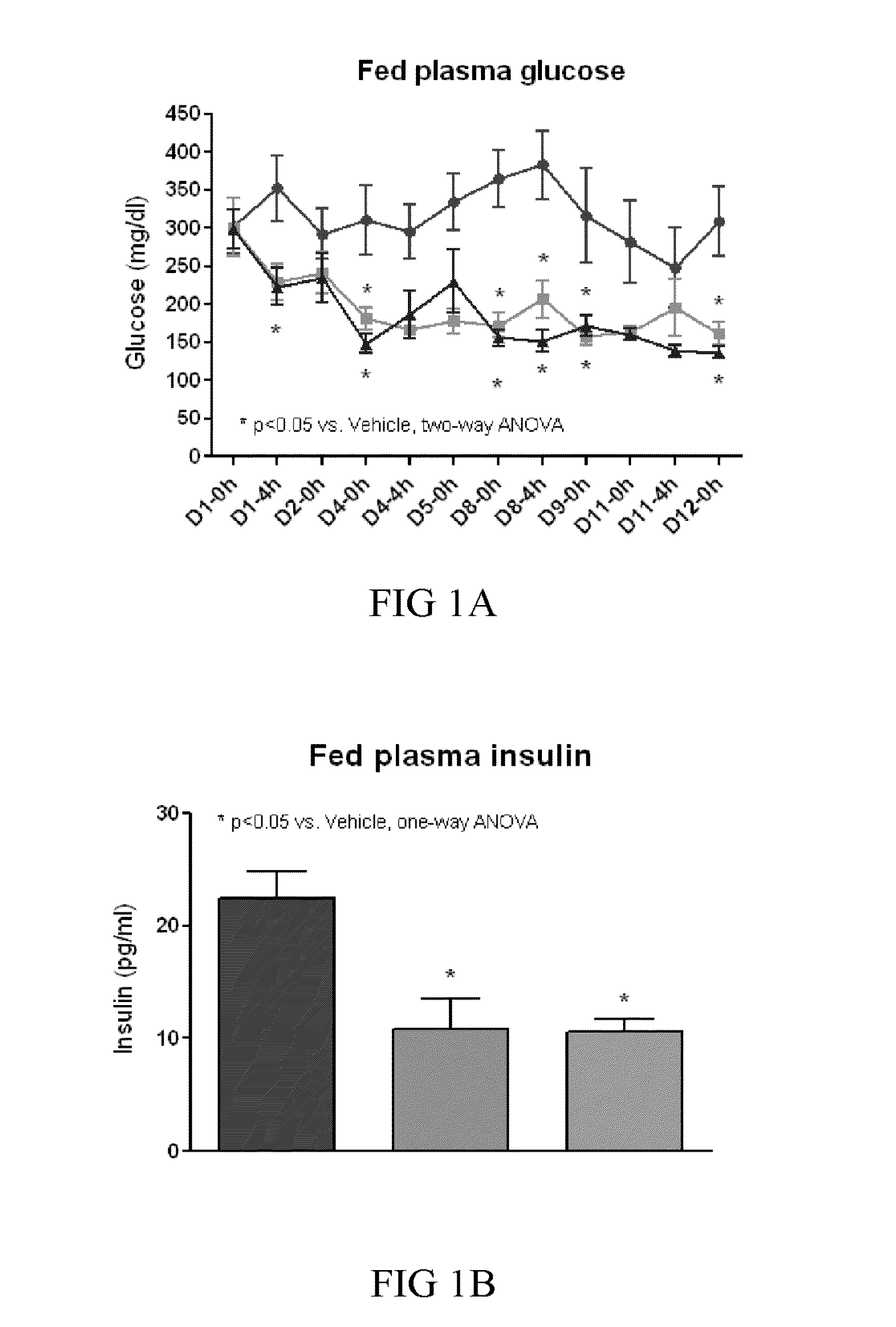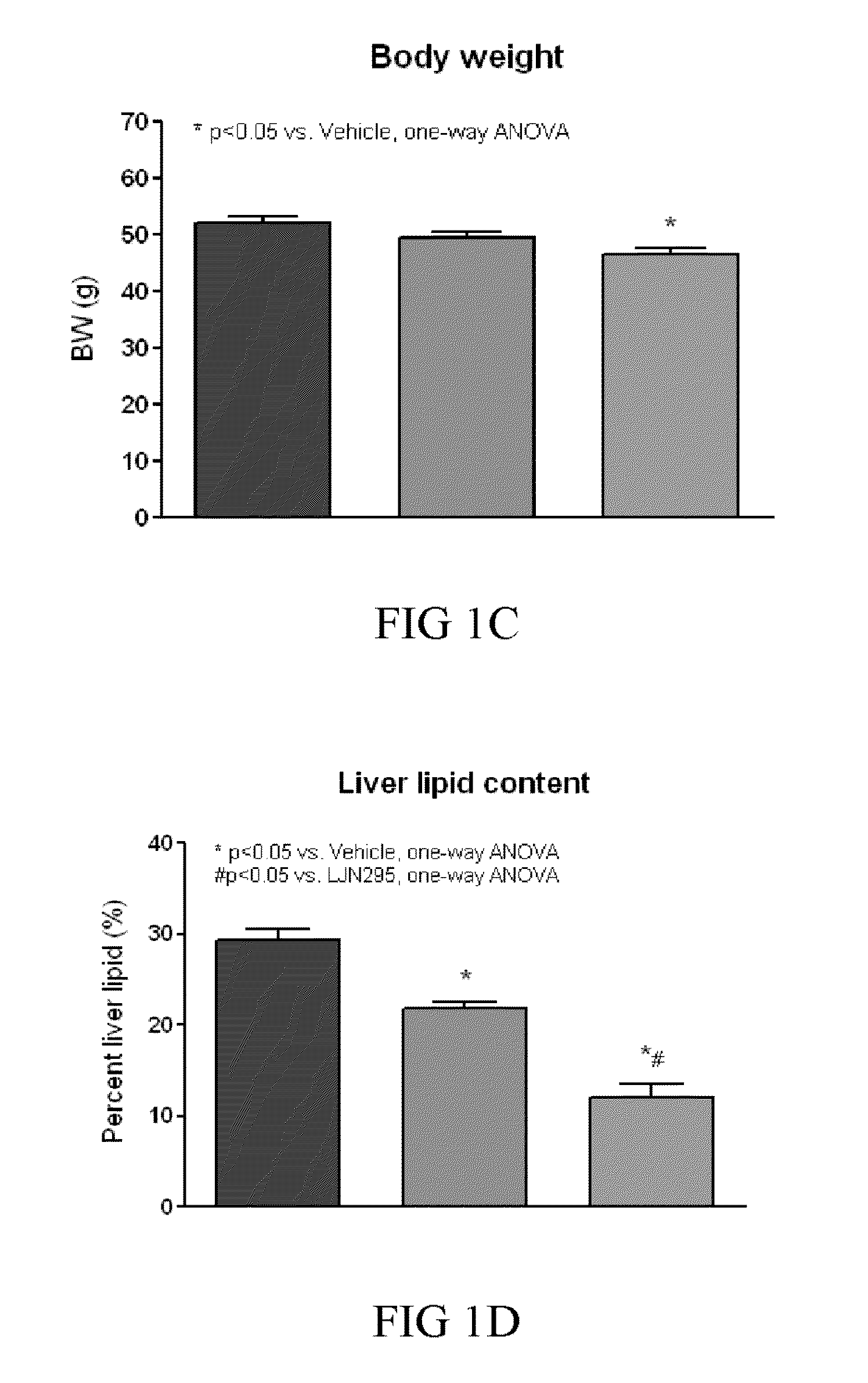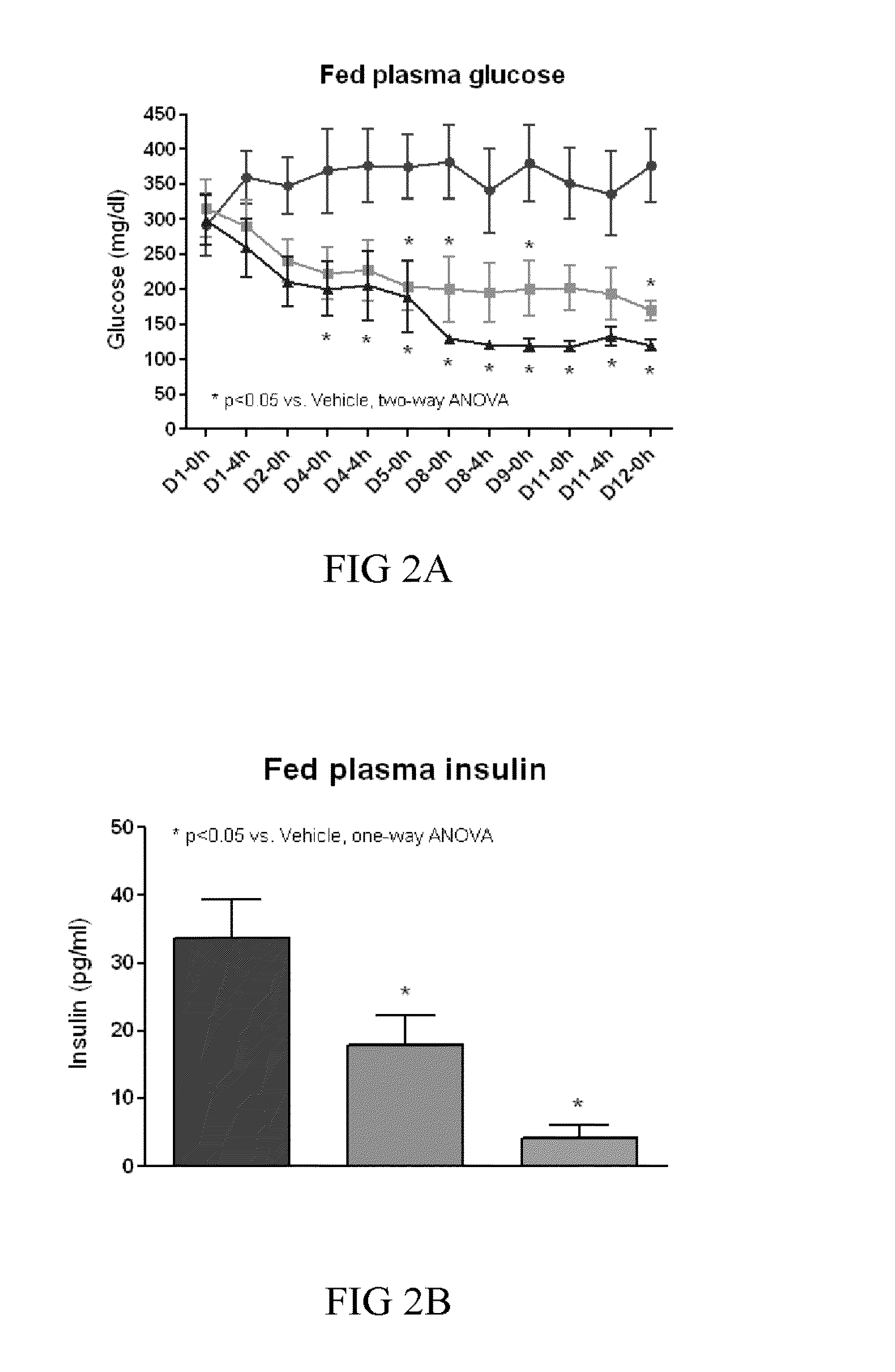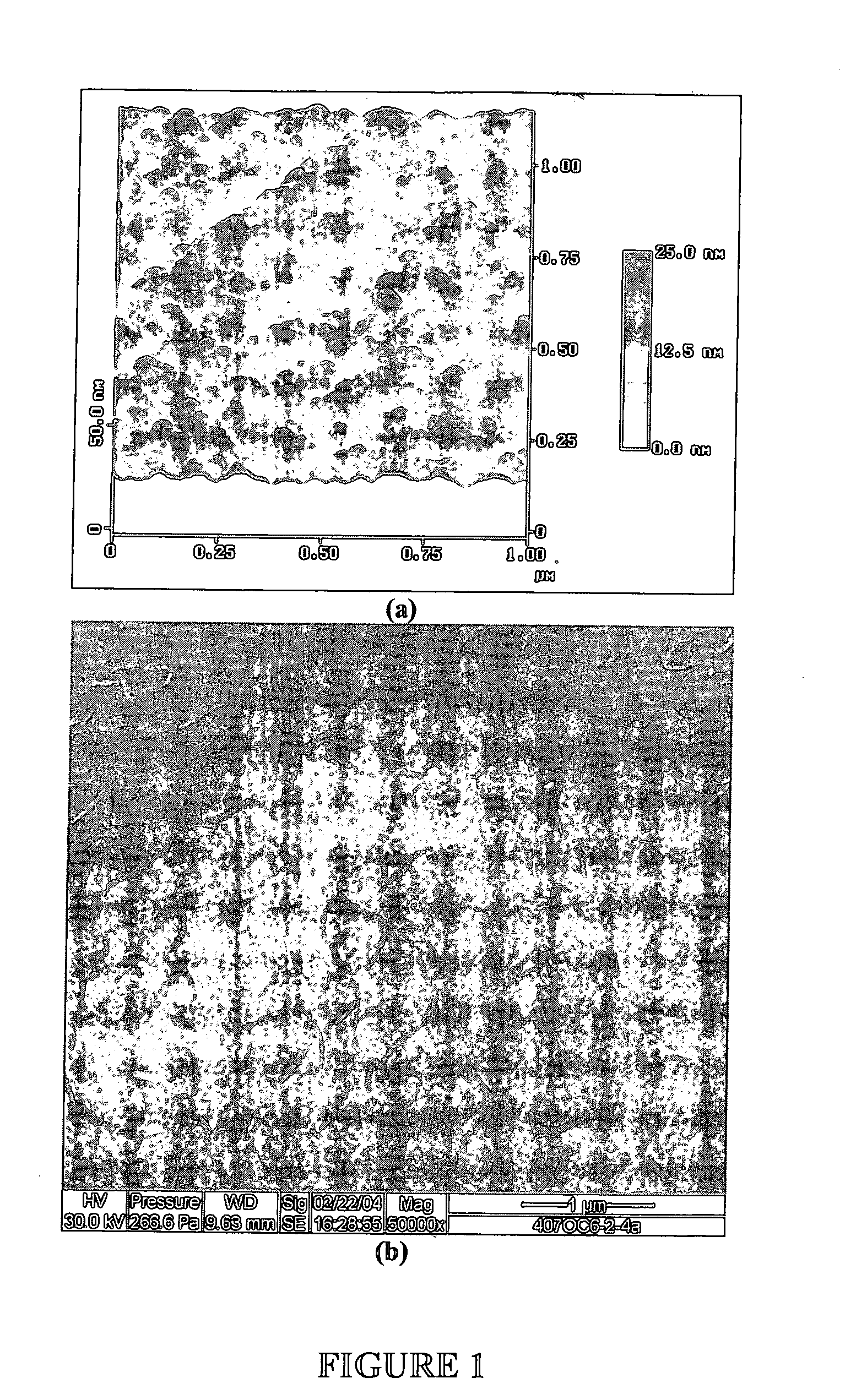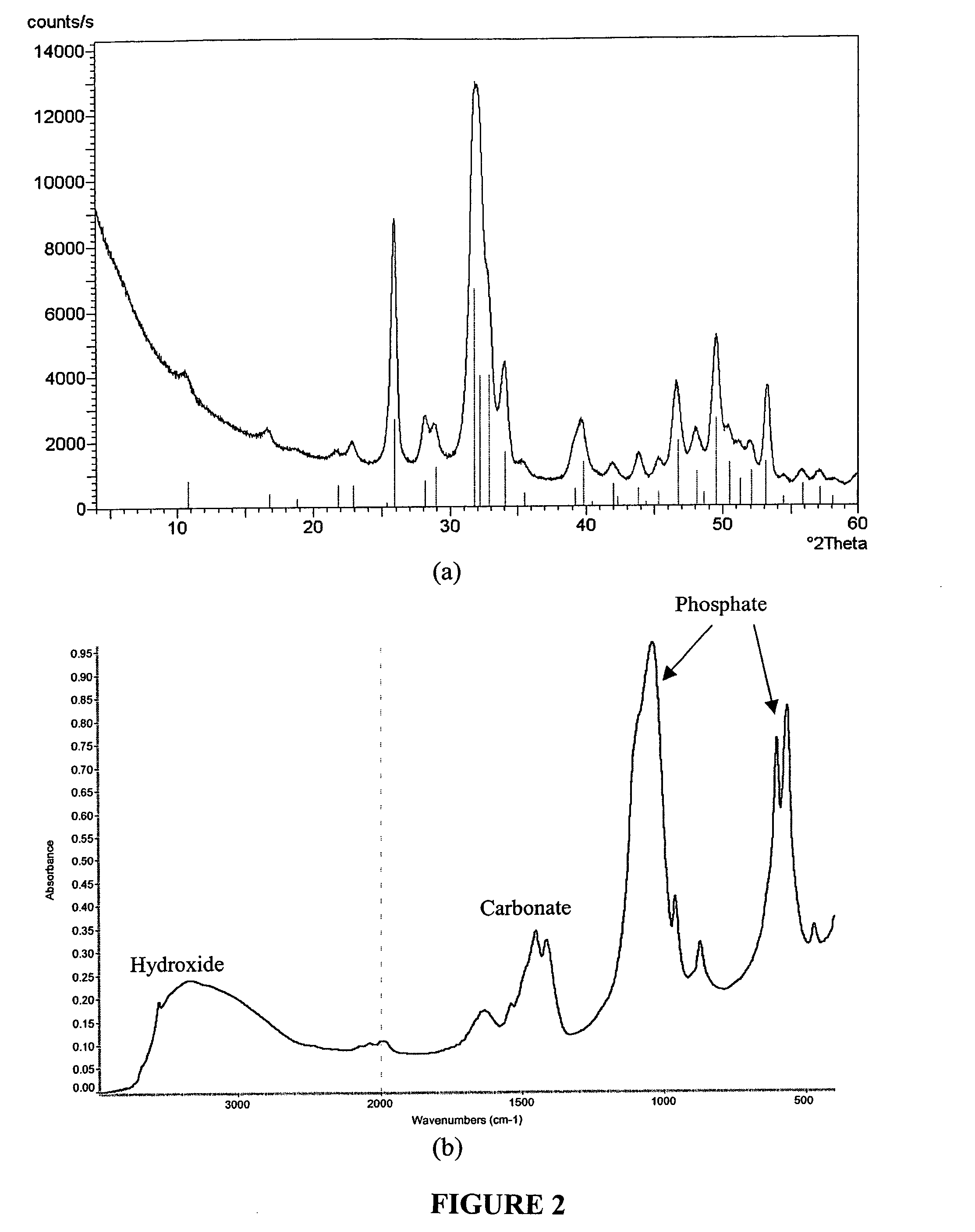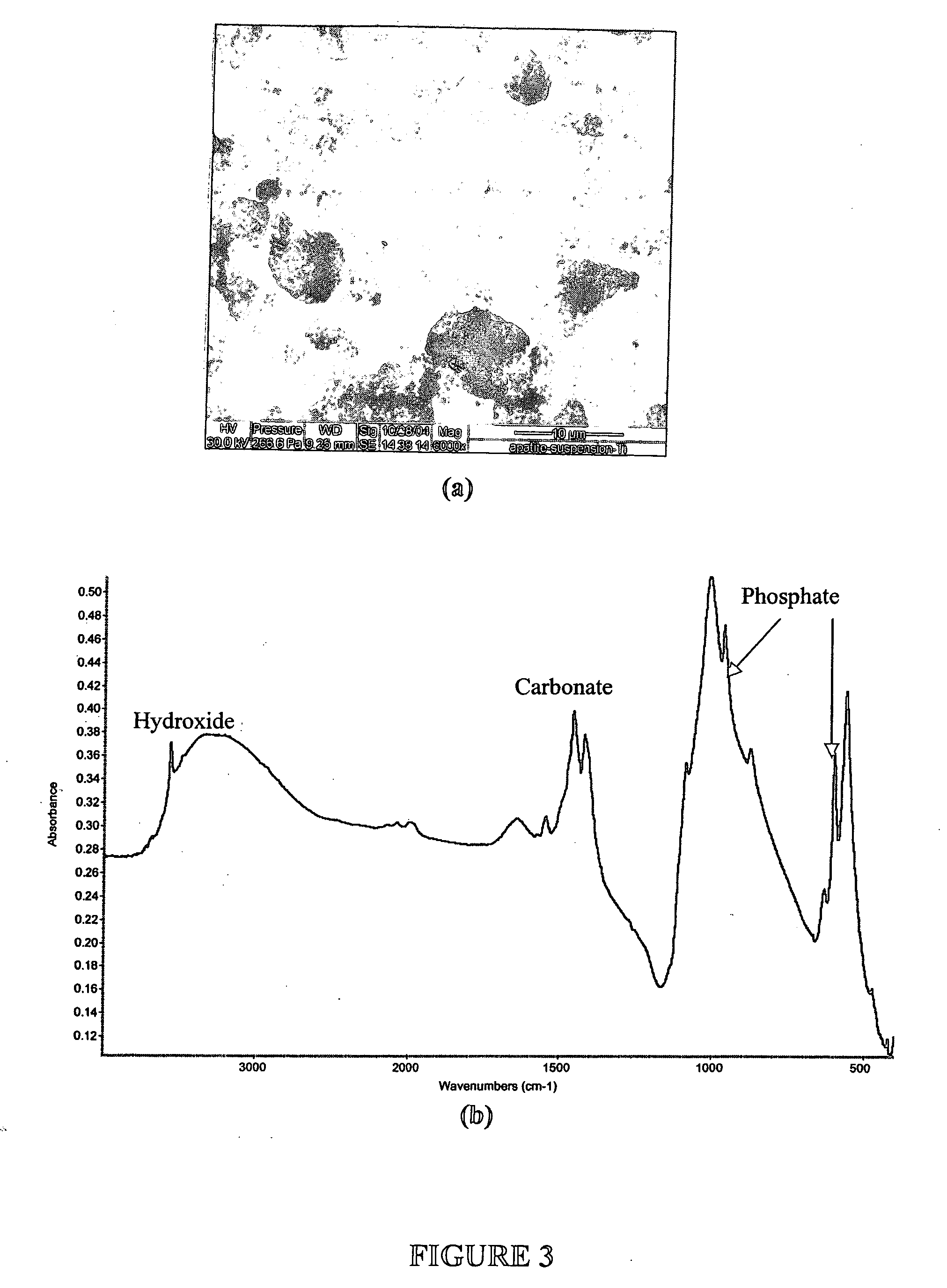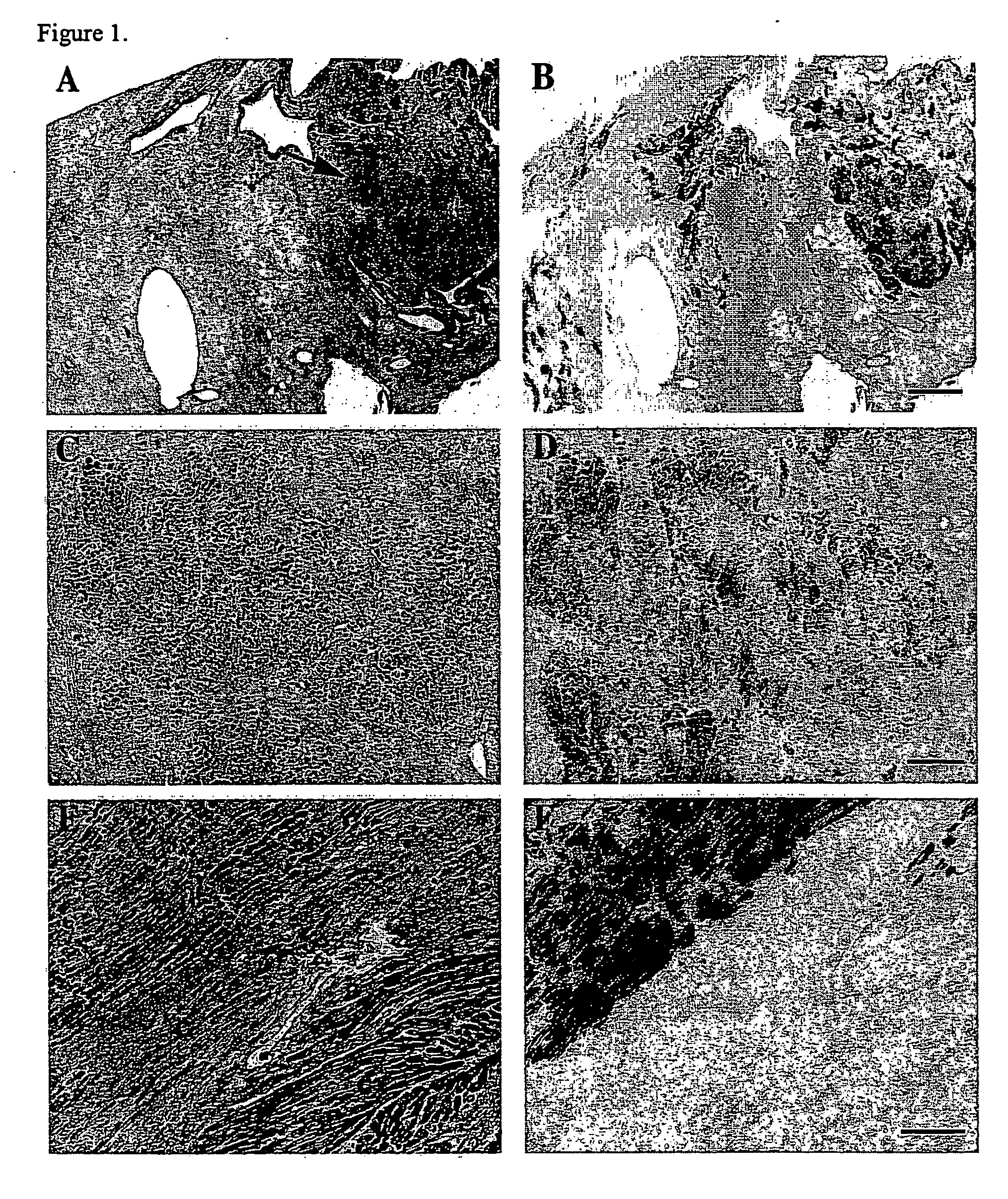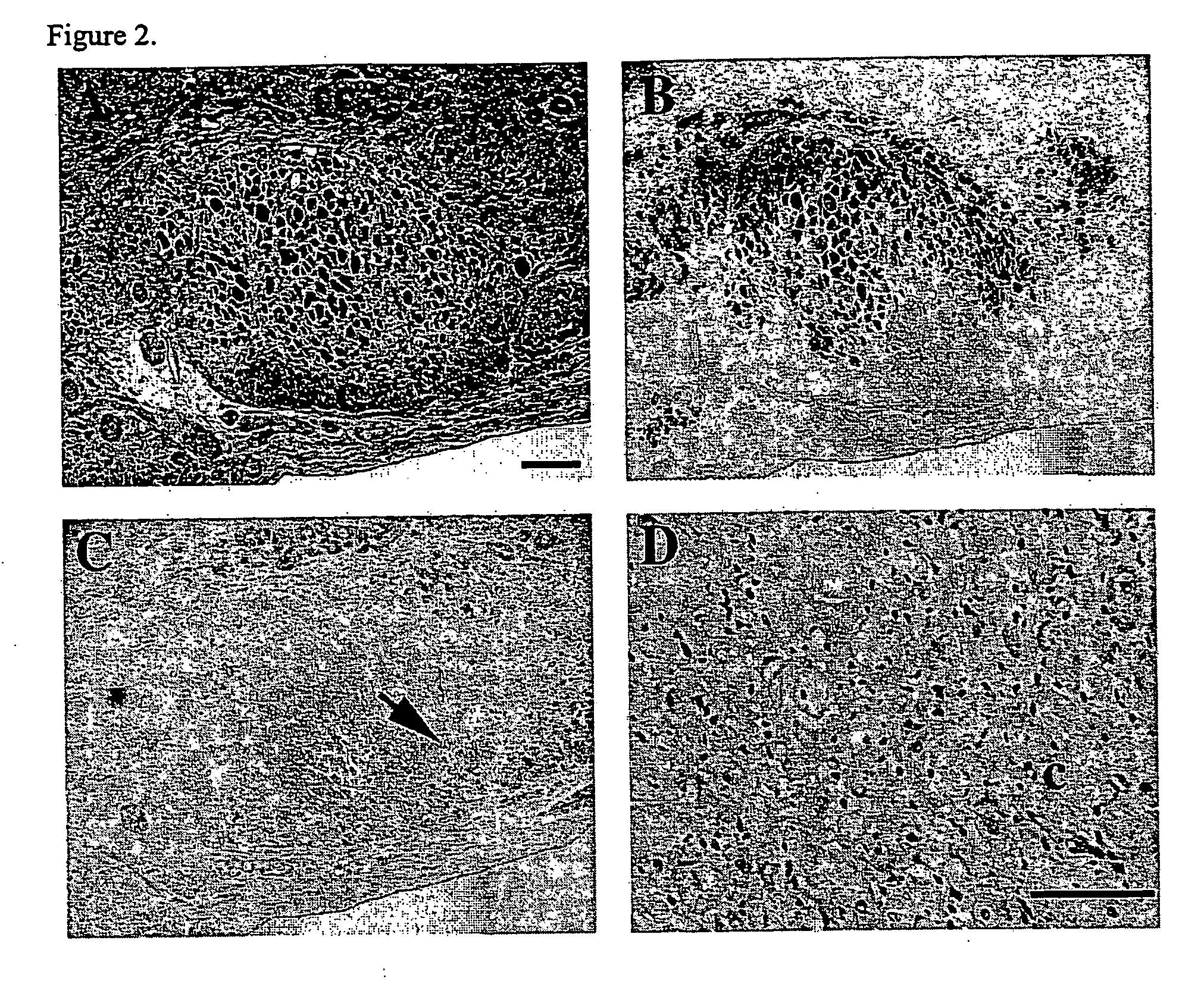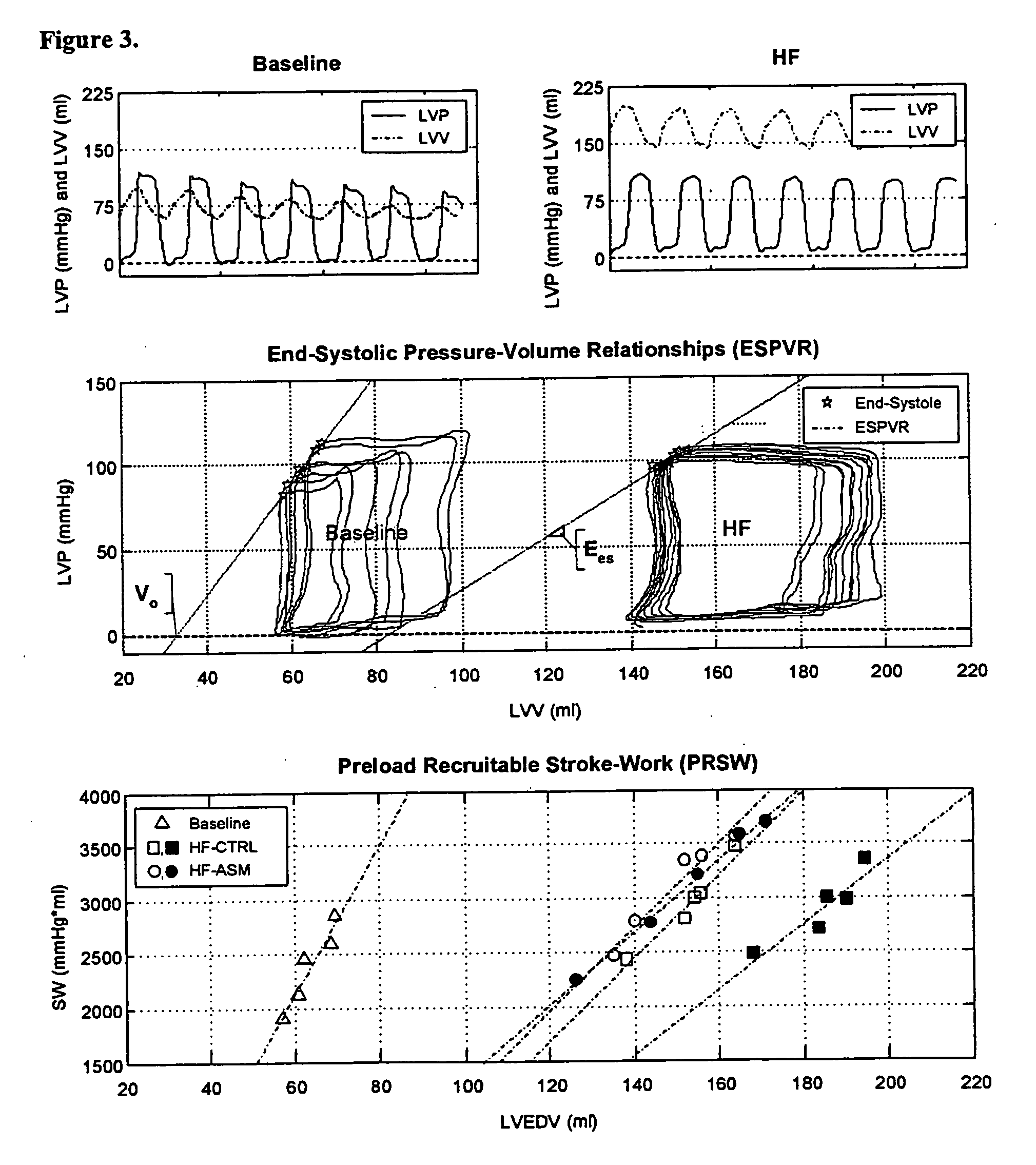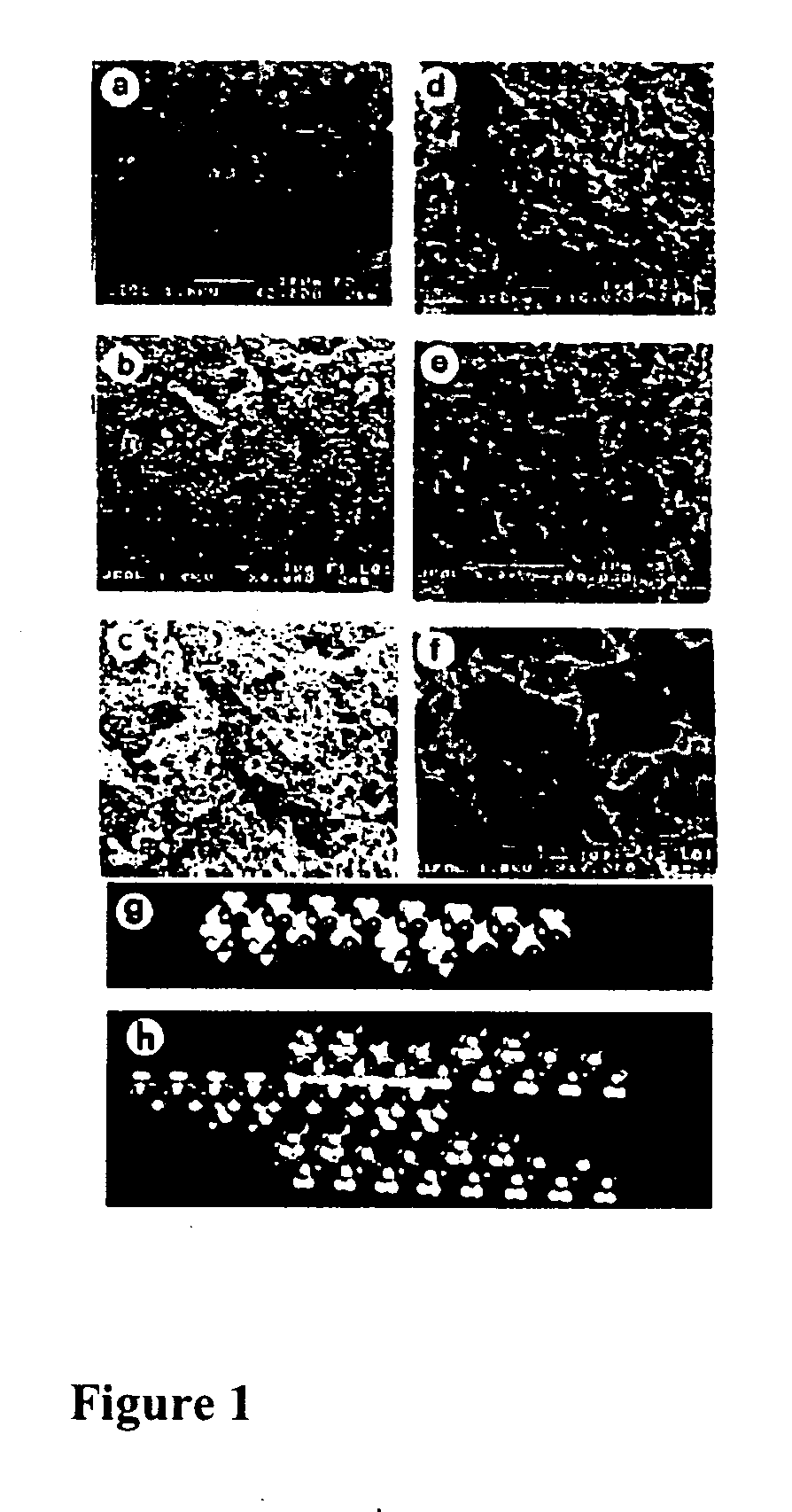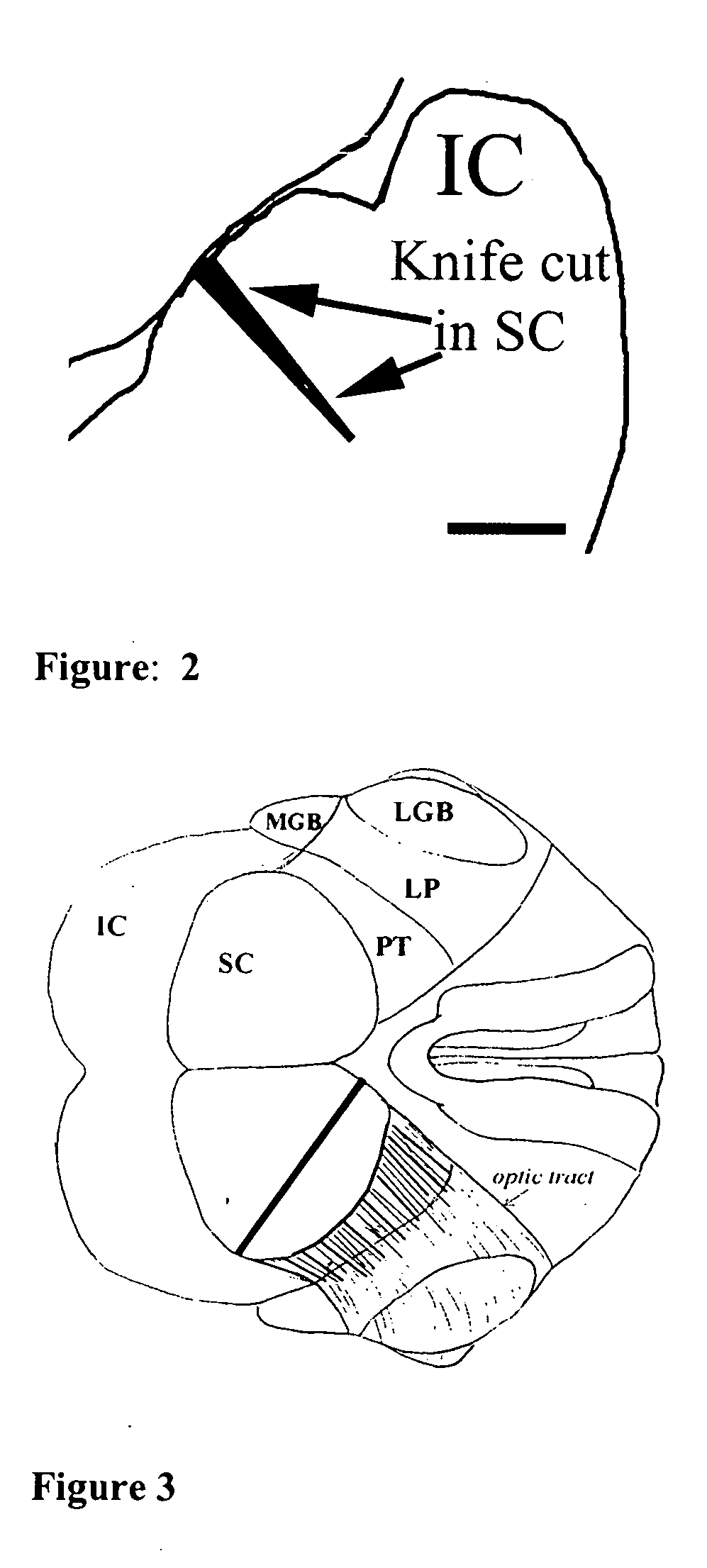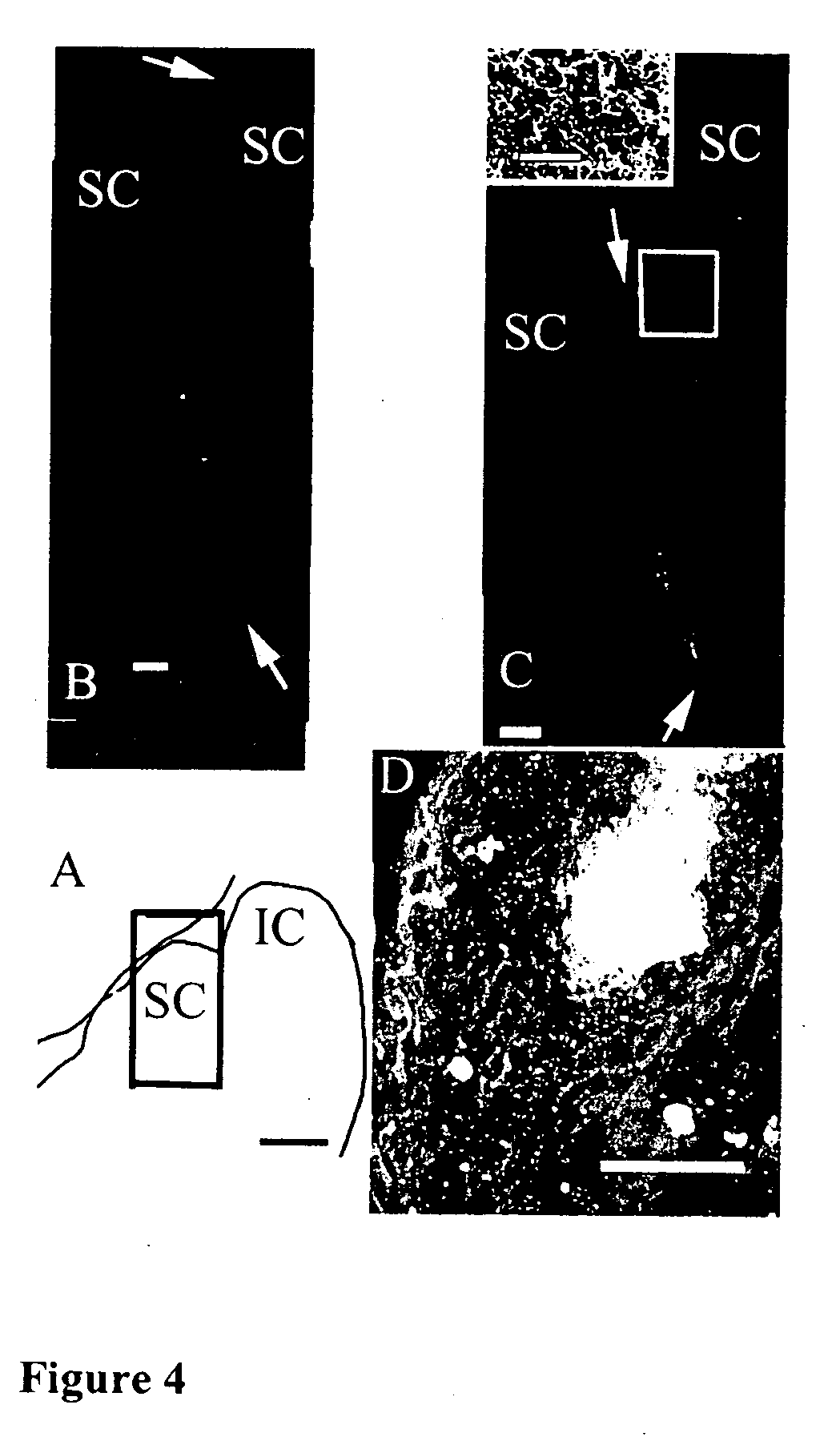Patents
Literature
Hiro is an intelligent assistant for R&D personnel, combined with Patent DNA, to facilitate innovative research.
999results about "Fibroblast growth factor" patented technology
Efficacy Topic
Property
Owner
Technical Advancement
Application Domain
Technology Topic
Technology Field Word
Patent Country/Region
Patent Type
Patent Status
Application Year
Inventor
Hydrogels used to deliver medicaments to the eye for the treatment of posterior segment diseases
This invention provides a polymeric drug delivery system including a hydrogel containing one or more drugs for the treatment of a posterior segment disease. Exemplary drugs are anti-angiogenesis compounds for the treatment of macular degeneration. Allowing passive transference of this drug from a dilute solution into the hydrogel produces the delivery system. The hydrogel, when placed in contact with the eye, delivers the drug. The delivery of the drug is sustained over an extended period of time, which is of particular utility in the eye, which is periodically flushed with tears. This sustained delivery accelerates the treatment process while avoiding potential damaging effects of localized delivery of high concentrations of compounds, e.g., from eye drops.
Owner:DIRECTCONTACT
Administration of growth factors for the treatment of CNS disorders
ActiveUS20070254842A1Prevents and delay onsetReduce severityHeavy metal active ingredientsSenses disorderDiseaseNervous system
A method and system that is directed to the local delivery of growth factors to the mammalian CNS to treat CNS disorders associated with neuronal death and / or dysfunction is described.
Owner:RGT UNIV OF CALIFORNIA
Multifunctional and biologically active matrices from multicomponent polymeric solutions
The present invention relates to a biologically active functionalized electrospun matrix to permit immobilization and long-term delivery of biologically active agents. In particular the invention relates to a functionalized polymer matrix comprising a matrix polymer, a compatibilizing polymer and a biomolecule or other small functioning molecule. In certain aspects the electrospun polymer fibers comprise at least one biologically active molecule functionalized with low molecular weight heparin. Examples of active molecules that may be used with the multicomponent polymer of the invention include, for example, a drug, a biopolymer, for example a growth factor, a protein, a peptide, a nucleotide, a polysaccharide, a biological macromolecule or the like. The invention is further directed to the formation of functionalized crosslinked matrices, such as hydrogels, that include at least one functionalized compatibilizing polymer capable of assembly.
Owner:UNIVERSITY OF DELAWARE
Modified FGF-21 Polypeptides and Their Uses
ActiveUS20080255045A1Increase in glucose uptakeFaster and efficient glucose utilizationAntibacterial agentsFungiChemistry
Owner:AMBRX
Decellularized bone marrow extracellular matrix
ActiveUS20050013872A1Minimizes and avoids immune responsePeptide/protein ingredientsSkeletal disorderCell-Extracellular MatrixInsertion stent
The invention is directed to compositions comprising decellularized bone marrow extracellular matrix and uses thereof. Methods for repairing or regenerating defective, diseased, damaged or ischemic tissues or organs in a subject, preferably a human, using the decellularized bone marrow extracellular matrix of the invention are also provided. The invention is further directed to a medical device, preferably a stent or an artificial heart, and biocompatible materials, preferably a tissue regeneration scaffold, comprising decellularized bone marrow extracellular matrix for implantation into a subject.
Owner:BOSTON SCI SCIMED INC
Active variants of FGF with improved specificity
InactiveUS7288406B2Enhanced receptor specificityImprove in vivo activitySugar derivativesPeptide/protein ingredientsDiseaseReceptor subtype
The present invention provides active fibroblast growth factor variants demonstrating enhanced receptor subtype specificity. The preferred novel variants retain binding to FGF Receptor Type 3 (FGFR3) triggering intracellular downstream mechanisms leading to activation of a biological response. Methods of utilizing preferred FGF mutants in preparation of medicaments for the treatment of malignancies and skeletal disorders including osteoporosis and enhancing fracture healing and wound healing processes are provided.
Owner:PROCHON BIOTECH
Novel methods for therapeutic vaccination
A method is disclosed for inducing cell-mediated immunity against cellular antigens. More specifically, the invention provides for a method for inducing cytotoxic T-lymphocyte immunity against weak antigens, notably self-proteins. The method entails that antigen presenting cells are induced to present at least one CTL epitope of the weak antigen and at the same time presenting at least one foreign T-helper lymphocyte epitope. In a preferred embodiment, the antigen is a cancer specific antigen, e.g. PSM, Her2, or FGF8b. The method can be exercised by using traditional polypeptide vaccination, but also by using live attenuated vaccines or nucleic acid vaccination. The invention furthermore provides immunogenic analogues of PSM, Her2 and FGF8b, as well as nucleic acid molecules encoding these analogues. Also vectors and transformed cells are disclosed. The invention also provides for a method for identification of immunogenic analogues of weak or non-immunogenic antigens.
Owner:BAVARIAN NORDIC AS
Method and composition for treatment of skeletal dysplasias
InactiveUS7276481B2Improve stabilityEnhance NP stabilizationPeptide/protein ingredientsGenetic material ingredientsBone growthBULK ACTIVE INGREDIENT
The present invention discloses pharmaceutical compositions for the treatment of skeletal dysplasias, comprising as an active ingredient at least one natriuretic peptide. Unexpectedly, it has been shown that the natriuretic factors may be effective for bone elongation in situations of abnormal bone growth especially for achondroplasia. The effects of the natriuretic peptide may be further enhanced by prolonging its residence time or action at the target site.
Owner:HEPACORE LTD
Use of recombinant gene delivery vectors for treating or preventing diseases of the eye
Gene delivery vectors, such as, for example, recombinant adeno-associated viral vectors, and methods of using such vectors are provided for use in treating or preventing diseases of the eye.
Owner:CHIRON CORP +1
Muteins of fibroblast growth factor 21
The present invention relates to novel muteins of human fibroblast growth factor 21 with improved pharmaceutical properties. Both protein and the respective encoding nucleic acid species are disclosed. The invention also embodies vectors and host cells for the propagation of said nucleic acid sequences and the production of said muteins. Also disclosed are methods for treating type 2 diabetes, obesity, metabolic syndrome, and in reducing the mortality and morbidity of critically ill patients.
Owner:ELI LILLY & CO
Muteins of Fibroblast Growth Factor 21
InactiveUS20070293430A1Reduced deamidationReduce capacityPeptide/protein ingredientsMetabolism disorderWild typeNucleic acid sequencing
The present invention relates to novel muteins of human fibroblast growth factor 21 with reduced deamidation compared to wild-type human FGF-21. Both protein and the respective encoding nucleic acid species are disclosed. The invention also embodies vectors and host cells for the propagation of said nucleic acid sequences and the production of said muteins. Also disclosed are methods for treating type 2 diabetes, obesity, or metabolic syndrome.
Owner:ELI LILLY & CO
In-Situ Forming Porous Scaffold
A composition includes a viscous gel formed from a combination of a biodegradable polymer and a biocompatible solvent. The composition also includes a hydrophilic porogen, which may be incorporated in the viscous gel. The composition may form a porous scaffold in situ.
Owner:ALZA CORP
Biodegradable scaffolds and uses thereof
InactiveUS20060002978A1Strengthen cellsEnhanced tissue growthPowder deliveryPeptide/protein ingredientsBiodegradable scaffoldPolymer chemistry
The invention is directed to scaffolds containing porous polymer material prepared by a process of gas foaming / particulate leaching and a wet granulation step prior to gas foaming and particulate leaching, particularly having a characteristic interconnected pore structure, as well as sustained release of protein, DNA or cells, and to methods for using such porous polymer material for preparation of scaffolds, particularly for tissue engineering.
Owner:NORTHWESTERN UNIV
Conjugation methods
ActiveUS20110003969A1Reduce potential steric hindrancePeptide/protein ingredientsMammal material medical ingredientsBiochemistryAntibody
This invention describes a method of conjugating a cell binding agent such as an antibody with an effector group (e.g., a cytotoxic agent) or a reporter group (e.g., a radionuclide), whereby the reporter or effector group is first reacted with a bifunctional linker and the mixture is then used without purification for the conjugation reaction with the cell binding agent. The method described in this invention is advantageous for preparation of stably-linked conjugates of cell binding agents, such as antibodies with effector or reporter groups. This conjugation method provides in high yields conjugates of high purity and homogeneity that are without inter-chain cross-linking and inactivated linker residues
Owner:IMMUNOGEN INC
Fusion proteins for blood-brain barrier delivery
ActiveUS20070081992A1Avoid significant immunogenic reactionAvoid significant reactionSenses disorderNervous disorderMediated transportBlood–brain barrier
The invention provides compositions, methods, and kits for increasing transport of agents across the blood brain barrier while allowing their activity once across the barrier to remain substantially intact. The agents are transported across the blood brain barrier via one or more endogenous receptor-mediated transport systems. In some embodiments the agents are therapeutic, diagnostic, or research agents.
Owner:ARMAGEN TECH +1
Muteins of fibroblast growth factor 21
ActiveUS7622445B2Reduce sensitivityReduced O-glycosylationPeptide/protein ingredientsMetabolism disorderMutated proteinNucleic acid sequence
The present invention relates to novel muteins of human fibroblast growth factor-21 with reduced susceptibility for proteolytic degradation when expressed in yeast. Both protein and the respective encoding nucleic acid species are disclosed. The invention also embodies vectors and host cells for the propagation of said nucleic acid sequences and the production of said muteins. Also disclosed are methods for treating type 2 diabetes, obesity, or metabolic syndrome.
Owner:ELI LILLY & CO
Muteins of fibroblast growth factor 21
The present invention relates to novel muteins of human fibroblast growth factor 21 with reduced capacity of O-glycosylation when expressed in yeast compared to wild-type human FGF-21. Both protein and the respective encoding nucleic acid species are disclosed. The invention also embodies vectors and host cells for the propagation of said nucleic acid sequences and the production of said muteins. Also disclosed are methods for treating type 2 diabetes, obesity, or metabolic syndrome.
Owner:ELI LILLY & CO
Self-assembling peptide amphiphiles and related methods for growth factor delivery
ActiveUS20050209145A1Promote binding epitope recognizedModulate their bio-availabilityAntibacterial agentsNervous disorderEpitopeAmphiphile
Owner:NORTHWESTERN UNIV
Fibroblast Growth Factor-23 molecules and uses thereof
InactiveUS20060160181A1Sugar derivativesPeptide/protein ingredientsFibroblast growth factor 23Biology
The present invention provides Fibroblast Growth Factor-23 (FGF-23) polypeptides and nucleic acid molecules encoding the same. The invention also provides selective binding agents, vectors, host cells, and methods for producing FGF-23 polypeptides. The invention further provides pharmaceutical compositions and methods for the diagnosis, treatment, amelioration, and / or prevention of diseases, disorders, and conditions associated with FGF-23 polypeptides.
Owner:AMGEN INC
Methods and compositions for the repair and/or regeneration of damaged myocardium
InactiveUS20060239983A1Restoring functional integrityRestoring structuralBiocidePeptide/protein ingredientsMedicineCardiac muscle
Owner:NEW YORK MEDICAL COLLEGE
Chimeric fgf21 proteins with enhanced binding affinity for beta-klotho for the treatment of type ii diabetes, obesity, and related metabolic disorders
The present invention relates to chimeric proteins that include an N-terminus coupled to a C-terminus, where the N-terminus includes an N-terminal portion of fibroblast growth factor 21 (“FGF21”) and the C-terminus includes a C-terminal portion of fibroblast growth factor 19 (“FGF19”). The present invention also relates to pharmaceutical compositions including chimeric proteins according to the present invention, as well as methods for treating a subject suffering from diabetes, obesity, or metabolic syndrome, methods of treating a subject in need of increased FGF21-βKlotho-FGF receptor complex formation, methods of causing increased FGF21 receptor agonist-βKlotho-FGF receptor complex formation, and methods of screening for compounds with enhanced binding affinity for the βKlotho-FGF receptor complex involving the use of chimeric proteins of the present invention.
Owner:NEW YORK UNIV
Formulations and methods for delivery of growth factor analogs
Formulations, kits and methods for bone or cartilage repair, including treatment of osteogenic defects, including formulations of synthetic heparin-binding growth factor analogs, non-ionic polymers, gelling agents and calcium-containing agents.
Owner:BROOKHAVEN SCI ASSOCS +1
Muteins of fibroblast growth factor 21
InactiveUS7655627B2Reduced deamidationReduce capacityPeptide/protein ingredientsMetabolism disorderADAMTS ProteinsWild type
The present invention relates to novel muteins of human fibroblast growth factor 21 with reduced deamidation compared to wild-type human FGF-21. Both protein and the respective encoding nucleic acid species are disclosed. The invention also embodies vectors and host cells for the propagation of said nucleic acid sequences and the production of said muteins. Also disclosed are methods for treating type 2 diabetes, obesity, or metabolic syndrome.
Owner:ELI LILLY & CO
Multiribbon nanocellulose as a matrix for wound healing
InactiveUS20070053960A1Improve adaptabilityControl thicknessOrganic active ingredientsBiocideFiberWound healing
The present invention includes compositions and methods for the integration of a non-allergenic nanocellulose into a wound bed. The composition may be formed into a wide variety of implants, e.g., a suture, a sheet, a compress, a bandage, a band, a prosthesis, a fiber, a woven fiber, a bead, a strip, a clasp, a prosthesis, a catheter, a screw, a bone plate, a pin, a bandage or combinations thereof.
Owner:BOARD OF RGT THE UNIV OF TEXAS SYST
Pharmaceutical compositions comprising troponin subunits, fragments and analogs thereof and methods of their use to inhibit angiogenesis
InactiveUS6025331AInhibiting endothelial cell proliferationOrganic active ingredientsSenses disorderDiseaseAngiogenesis growth factor
Pharmaceutical compositions containing therapeutically effective amounts of troponin C, I, or T, subunits, fragments, or analogs for the treatment of diseases or disorders involving abnormal angrogenesis.
Owner:CHILDRENS MEDICAL CENT CORP
Fibroblast growth factor-21-Fc fusion proteins
ActiveUS9006400B2Easy to controlImproved profilePeptide/protein ingredientsAntibody mimetics/scaffoldsProtein CFibroblast growth factor receptor 1
The invention relates to the identification of fusion proteins comprising polypeptide and protein variants of fibroblast growth factor 21 (FGF21) with improved pharmaceutical properties. Also disclosed are methods for treating FGF21-associated disorders, including metabolic conditions.
Owner:NOVARTIS AG
Pharmaceutical compositions for the stimulation of stem cells
InactiveUS20120301538A1Improve abilitiesOrganic active ingredientsPowder deliveryVeterinary pharmaceuticalsExcipient
The invention relates to a human or veterinary pharmaceutical composition (B) for the stimulation of stem cells, comprising at least two stem-cells-stimulating-agents and at least one pharmaceutically acceptable excipient.
Owner:CARDIO3 BIOSCI
Suspension of calcium phosphate particulates for local delivery of therapeutic agents
InactiveUS20060257492A1Reduce adverse effectsAvoid the needBiocidePowder deliveryCalcium biphosphateParticulates
Disclosed herein are methods for preparing and using porous, crystalline biomimetic bioactive compositions of calcium phosphate with at least one therapeutic agent. The bioactive composition has strong adsorption properties for therapeutic agents which adsorb to the calcium phosphate with a high affinity. The bioactive composition also provides a sustained release implant that can be used for localized delivery of therapeutic agents. This localized delivery of therapeutic agents, promotes repair, healing, or regeneration of hard and soft tissues.
Owner:DEPUY PROD INC
Treatment for heart disease
InactiveUS20070059288A1Poor cell survival and engraftmentImprove heart functionBiocideVirusesDiseaseCORONARY ARTERY DISEASE/MYOCARDIAL INFARCTION
The present invention provides a system for treating heart disease using a combination of pro-angiogenesis therapy and cellular cardiomyoplasty. The system is particularly useful in treating patients with damaged myocardium due coronary artery disease, myocardial infarction, congestive heart failure, and ischemia. A pro-angiogenic factor (e.g., VEGF) or a means of delivering a pro-angiogenic factor (e.g., a genetically engineered adenovirus, adeno-asssociated virus, or cells) is administered to the heart in order to promote new blood vessel growth in an ischemic or damaged area of the patient's heart. Cells such as skeletal myoblasts or stem cells (e.g., mesenchymal stem cells) with the potential to divide, differentiate, and integrate themselves into the injured myocardium are then administered into the affected area of the heart. By inducing new blood vessels growth in the injured myocardium, the cells are better able to grow and become an integral part of the heart. The invention also provides kits for use in treating a patient using the inventive method. Such kits may contain cells, catheters, syringes, needles, cell culture materials, polynucleotides, media, buffers, etc.
Owner:MYTOGEN
Self-assembling peptides for regeneration and repair of neural tissue
The present invention provides methods and compositions for enhancing regeneration and / or repair of neural tissue. One method include providing a nanoscale structured material at the site of injury, wherein the nanoscale structured material provides an environment that is permissive for regeneration of neural tissue and allows axon growth from a location on one side of a site of injury or barrier to a location on the other side of the site of injury or barrier. A second method includes introducing a composition comprising self-assembling peptides into the subject at the site of injury, wherein the peptides are amphiphilic peptides that comprise substantially equal proportions of hydrophobic and hydrophilic amino acids and are complementary and structurally compatible. A variety of compositions comprising a nanoscale structured material or precursor thereof, and an additional substance such as a regeneration promoting factor, are also provided. In certain embodiments of the invention the nanoscale structured material or precursor thereof comprises self-assembling peptides. The invention further provides compositions and methods for repair of an intervertebral disc, including nucleus pulpusos repair.
Owner:MASSACHUSETTS INST OF TECH
Features
- R&D
- Intellectual Property
- Life Sciences
- Materials
- Tech Scout
Why Patsnap Eureka
- Unparalleled Data Quality
- Higher Quality Content
- 60% Fewer Hallucinations
Social media
Patsnap Eureka Blog
Learn More Browse by: Latest US Patents, China's latest patents, Technical Efficacy Thesaurus, Application Domain, Technology Topic, Popular Technical Reports.
© 2025 PatSnap. All rights reserved.Legal|Privacy policy|Modern Slavery Act Transparency Statement|Sitemap|About US| Contact US: help@patsnap.com
